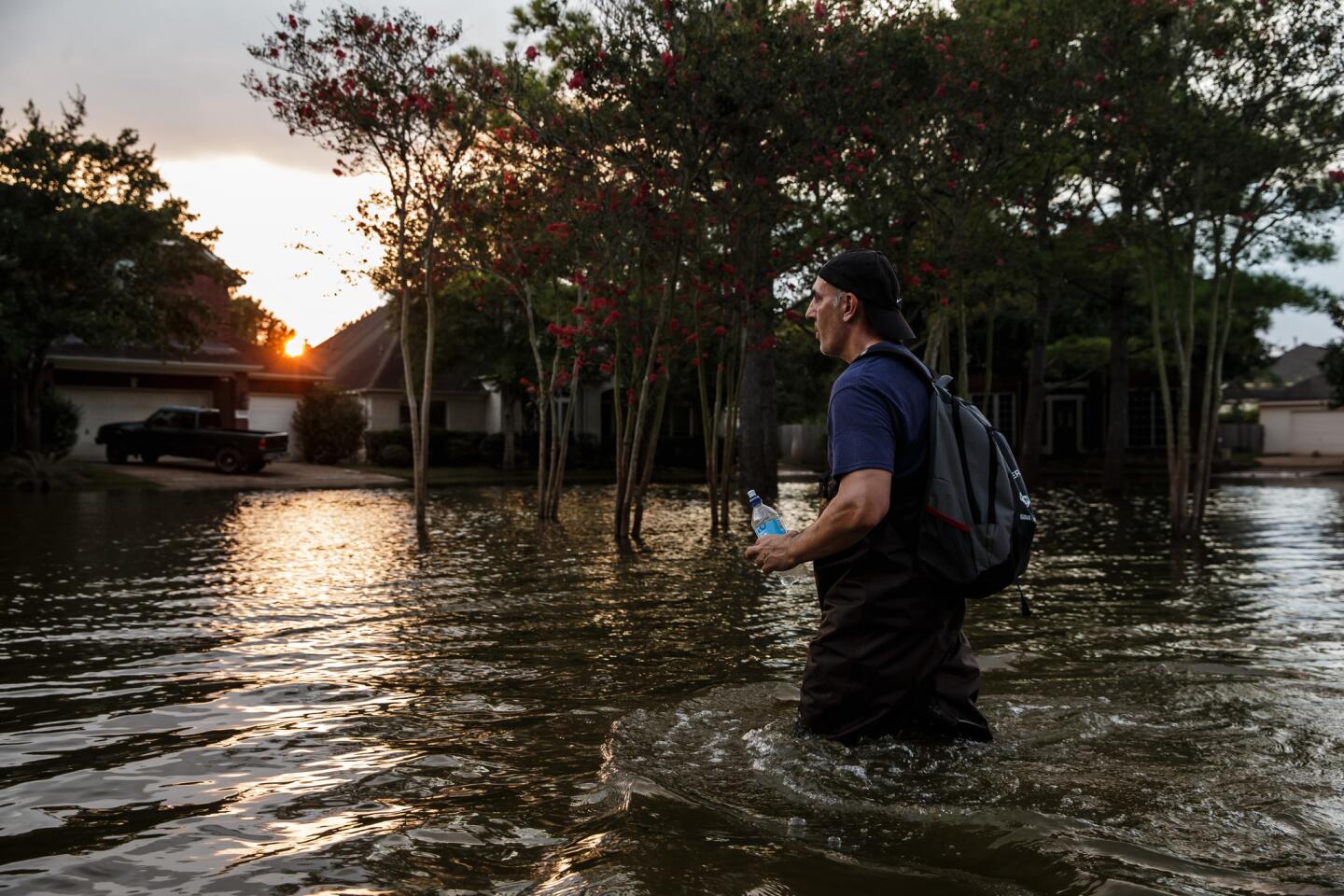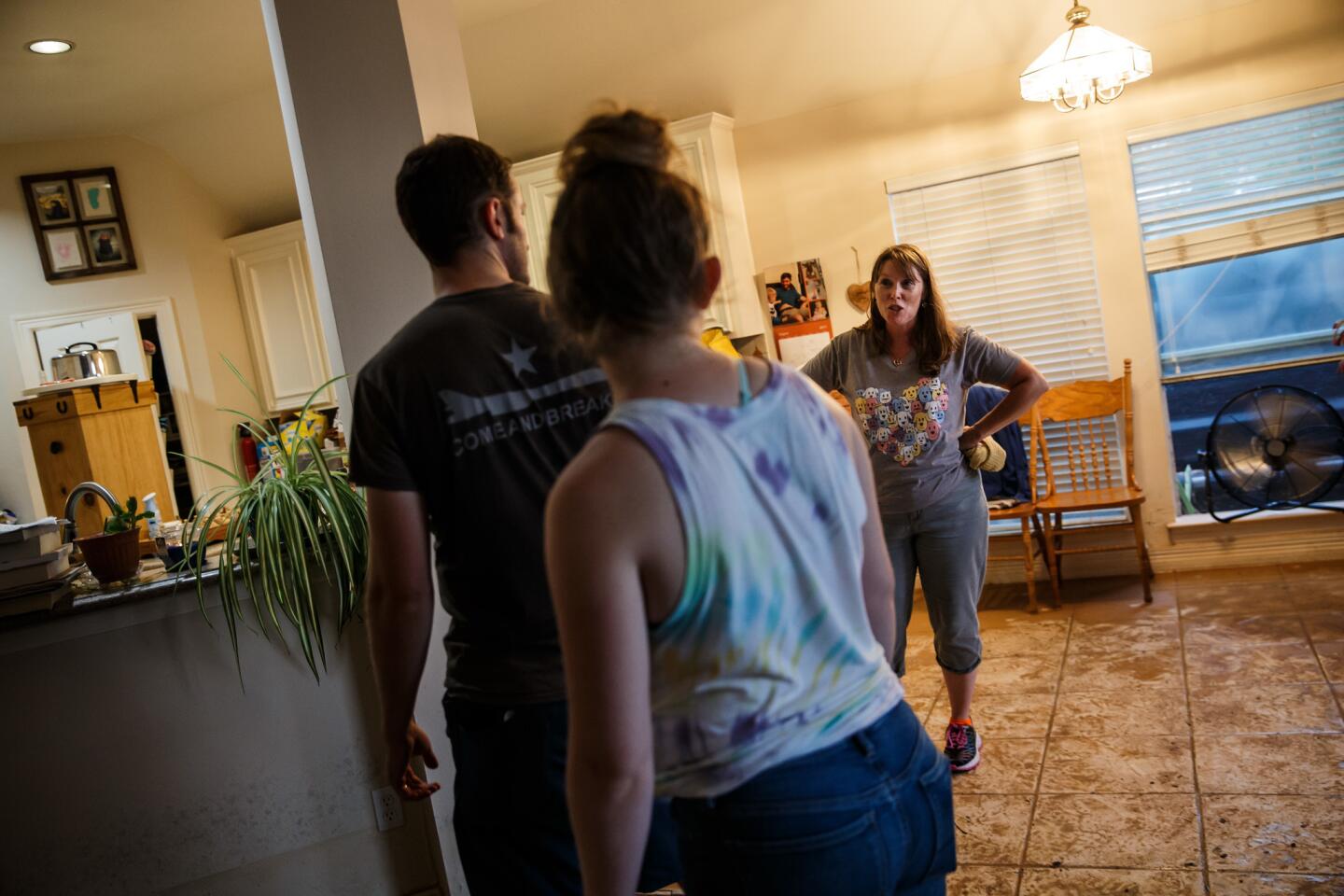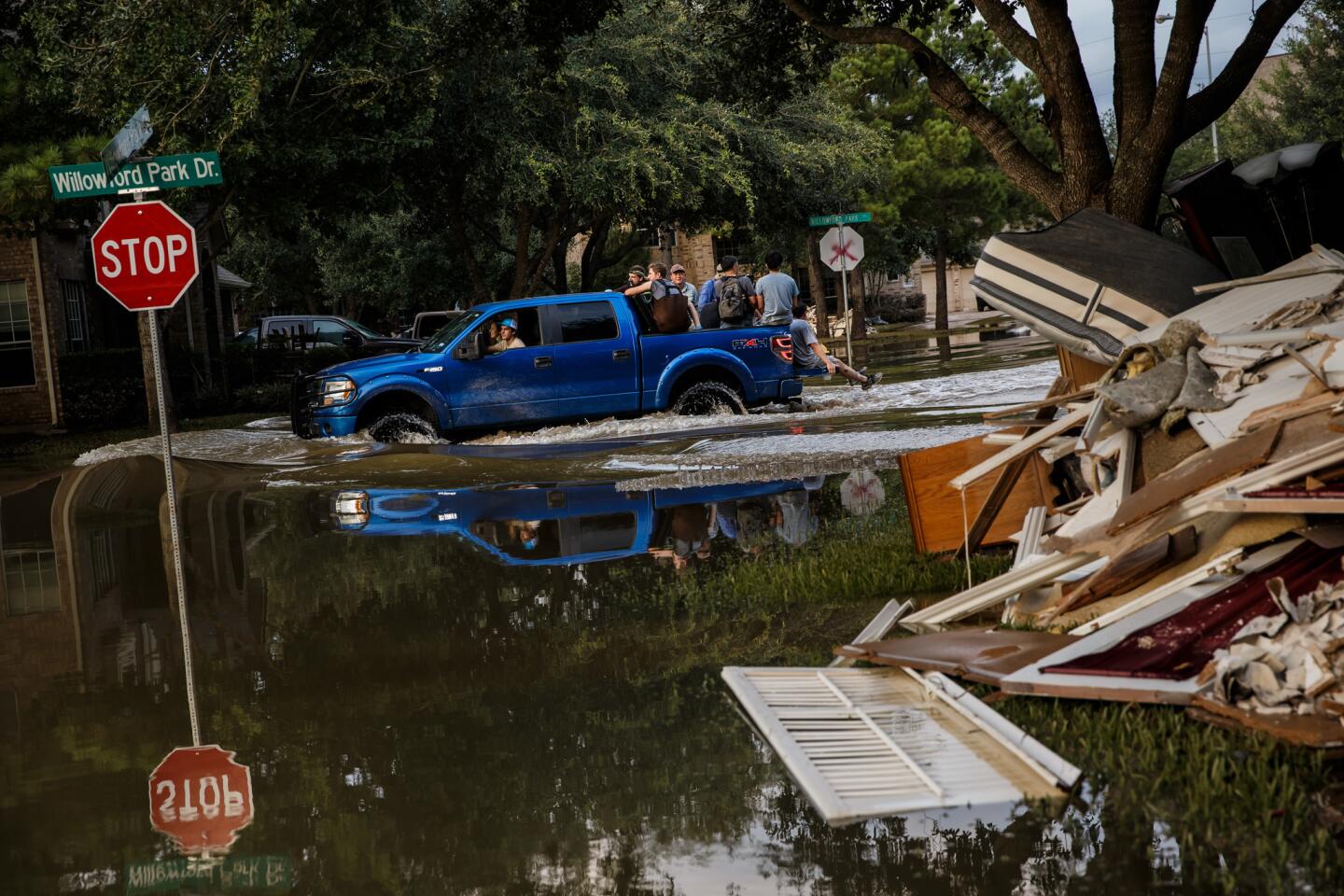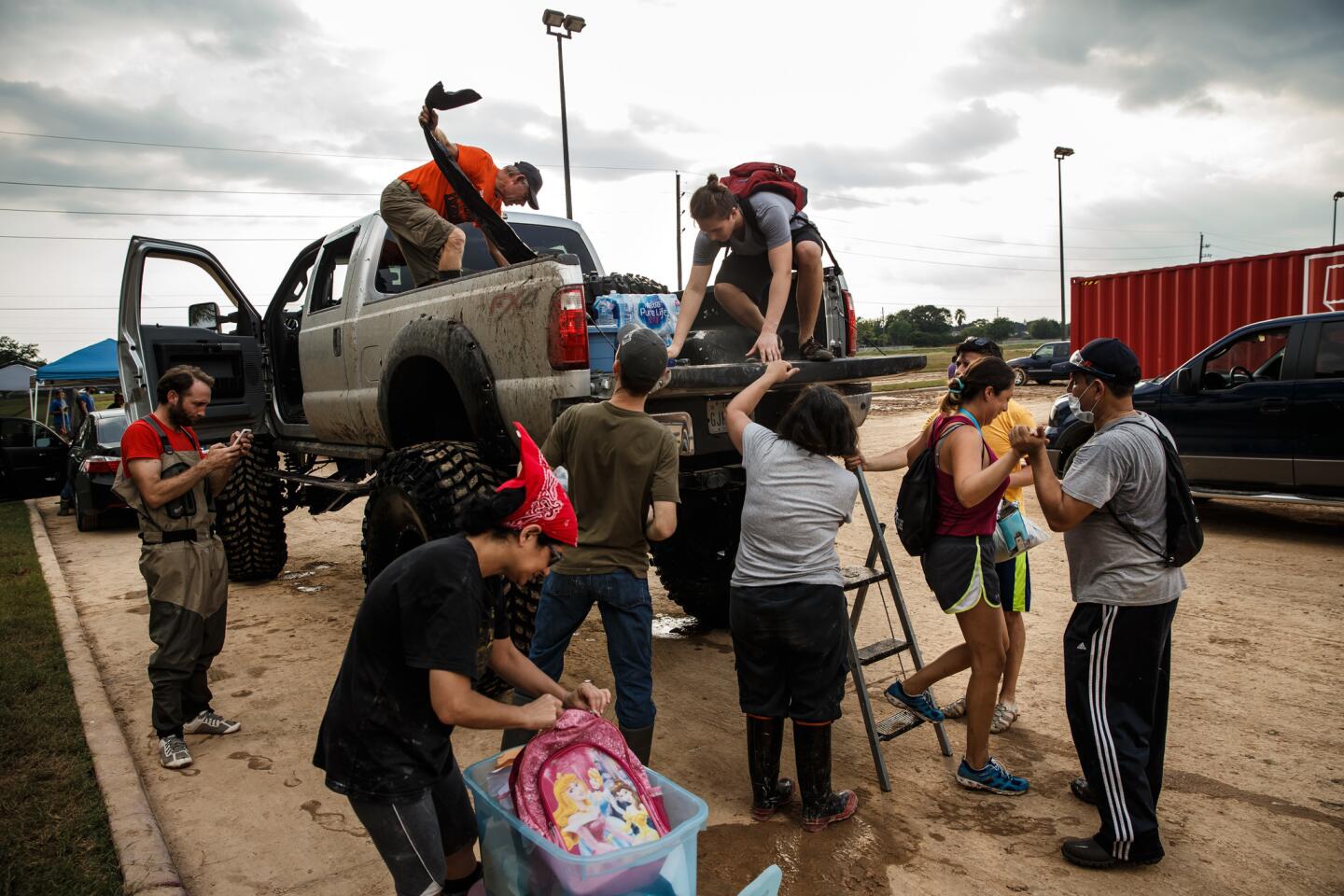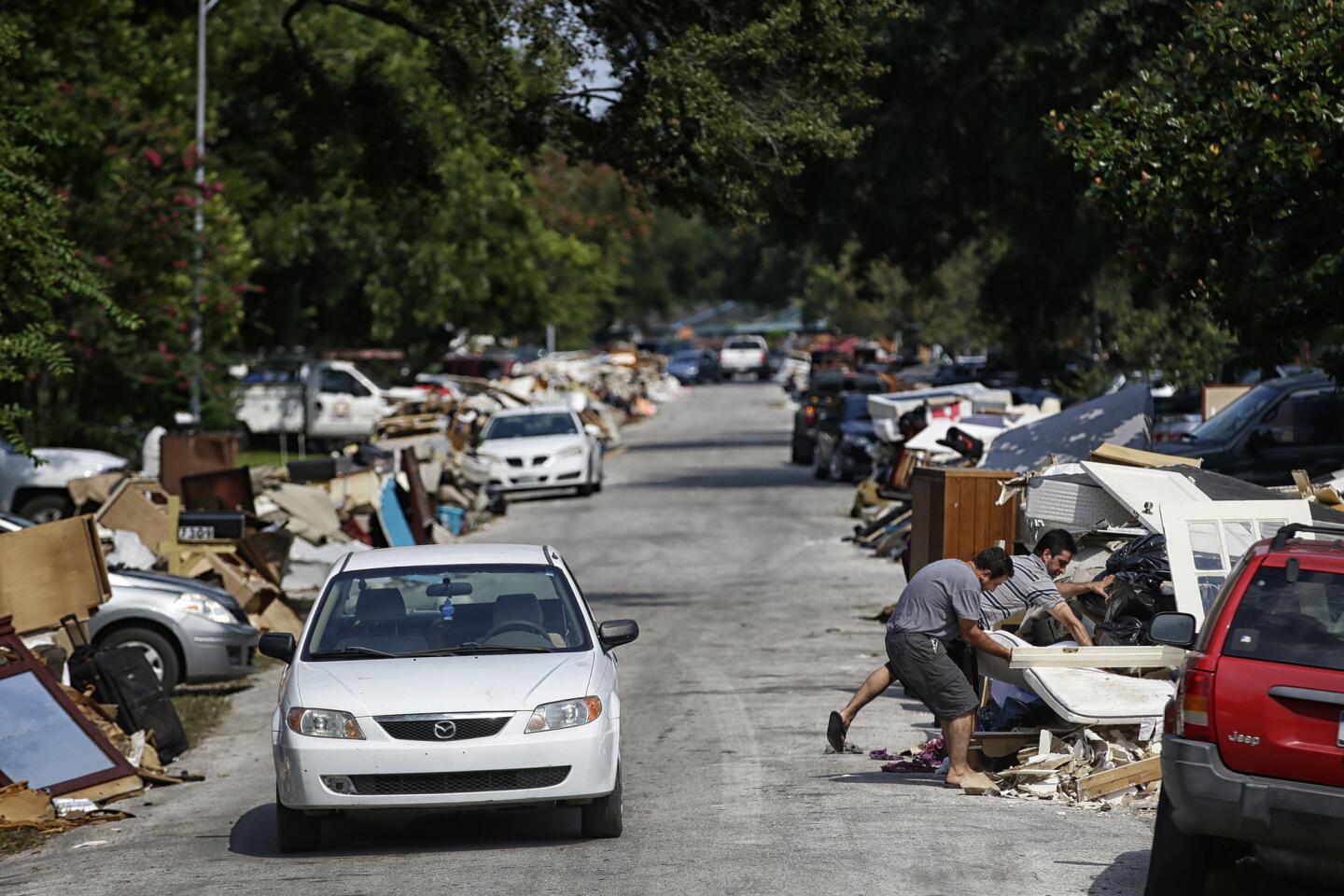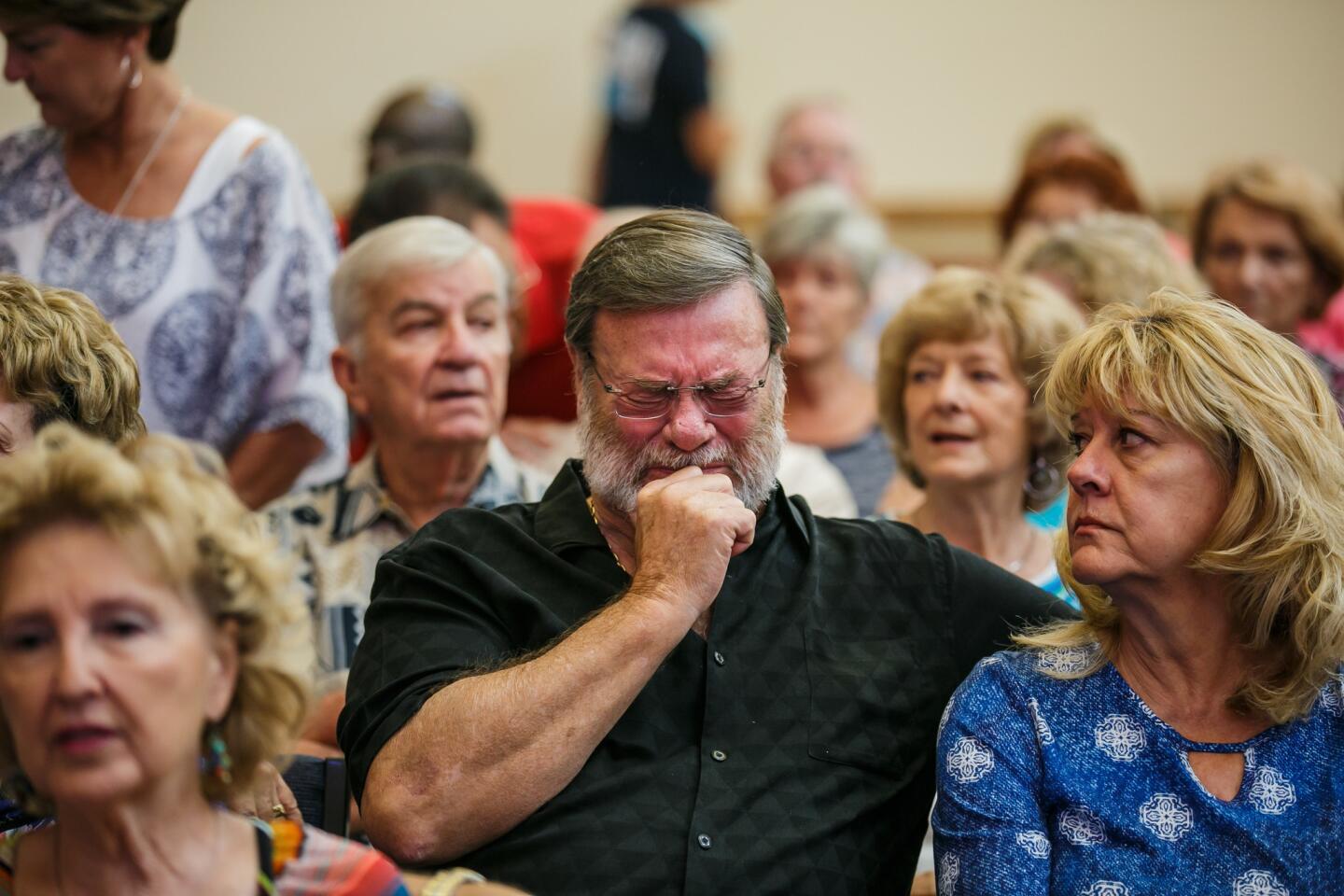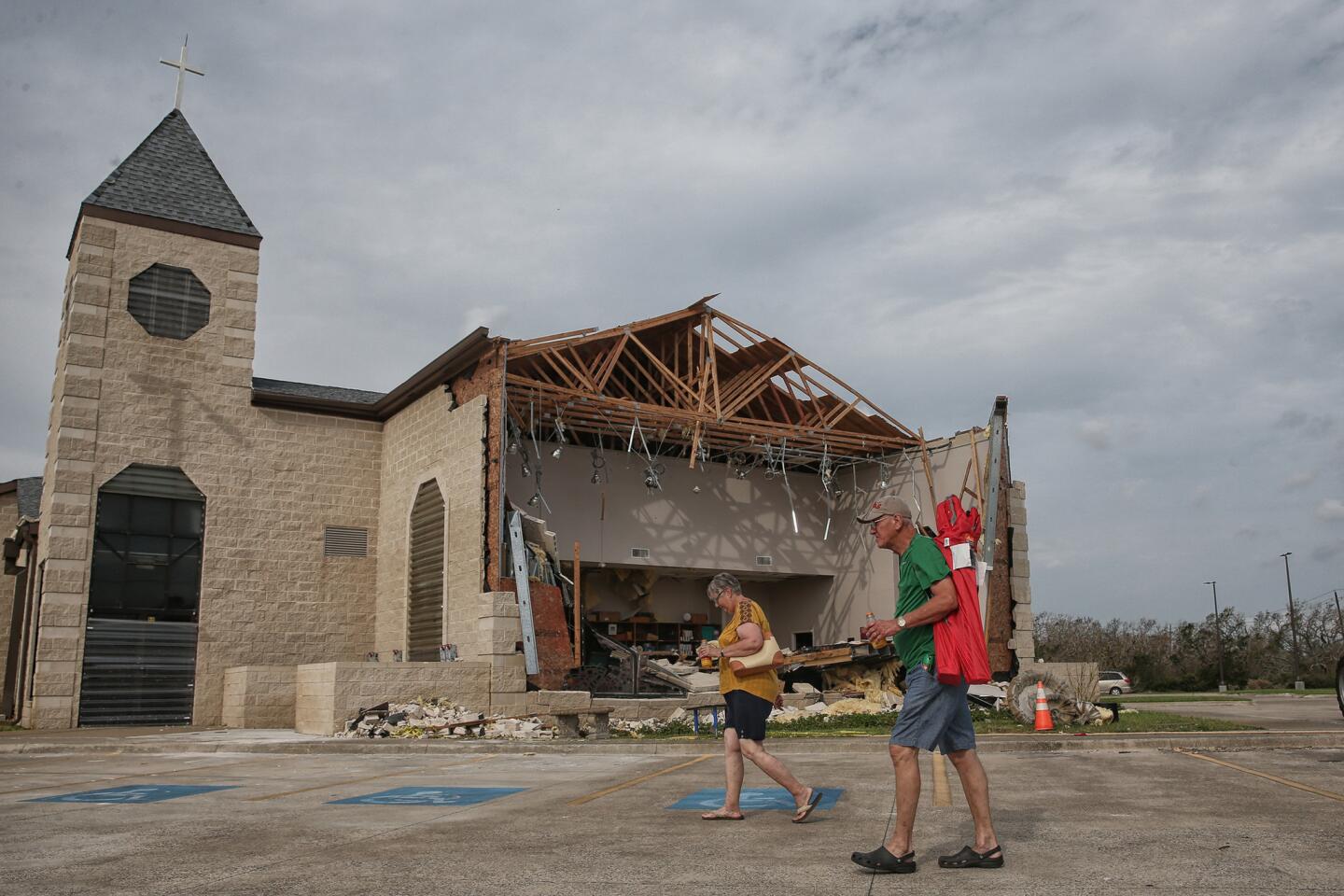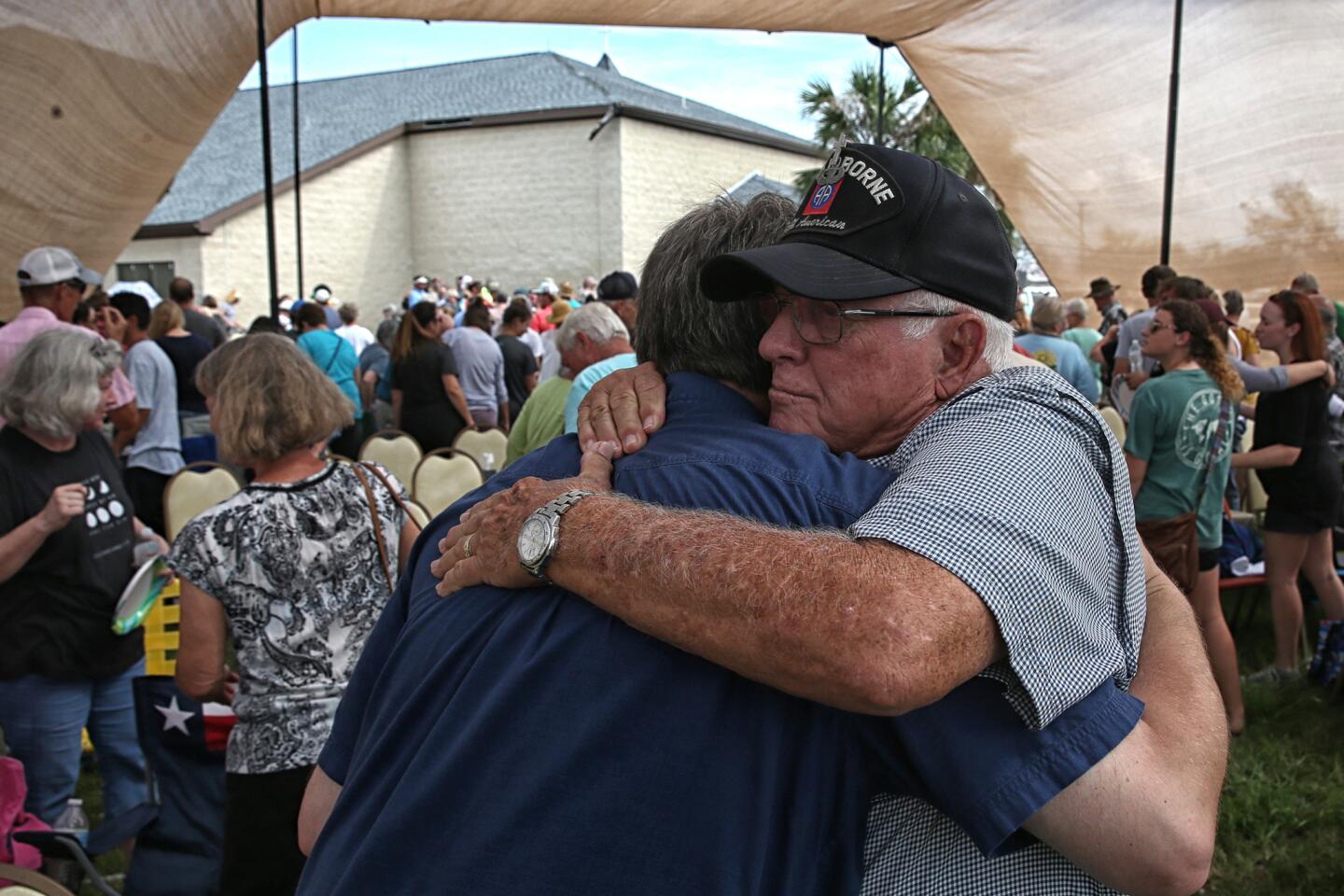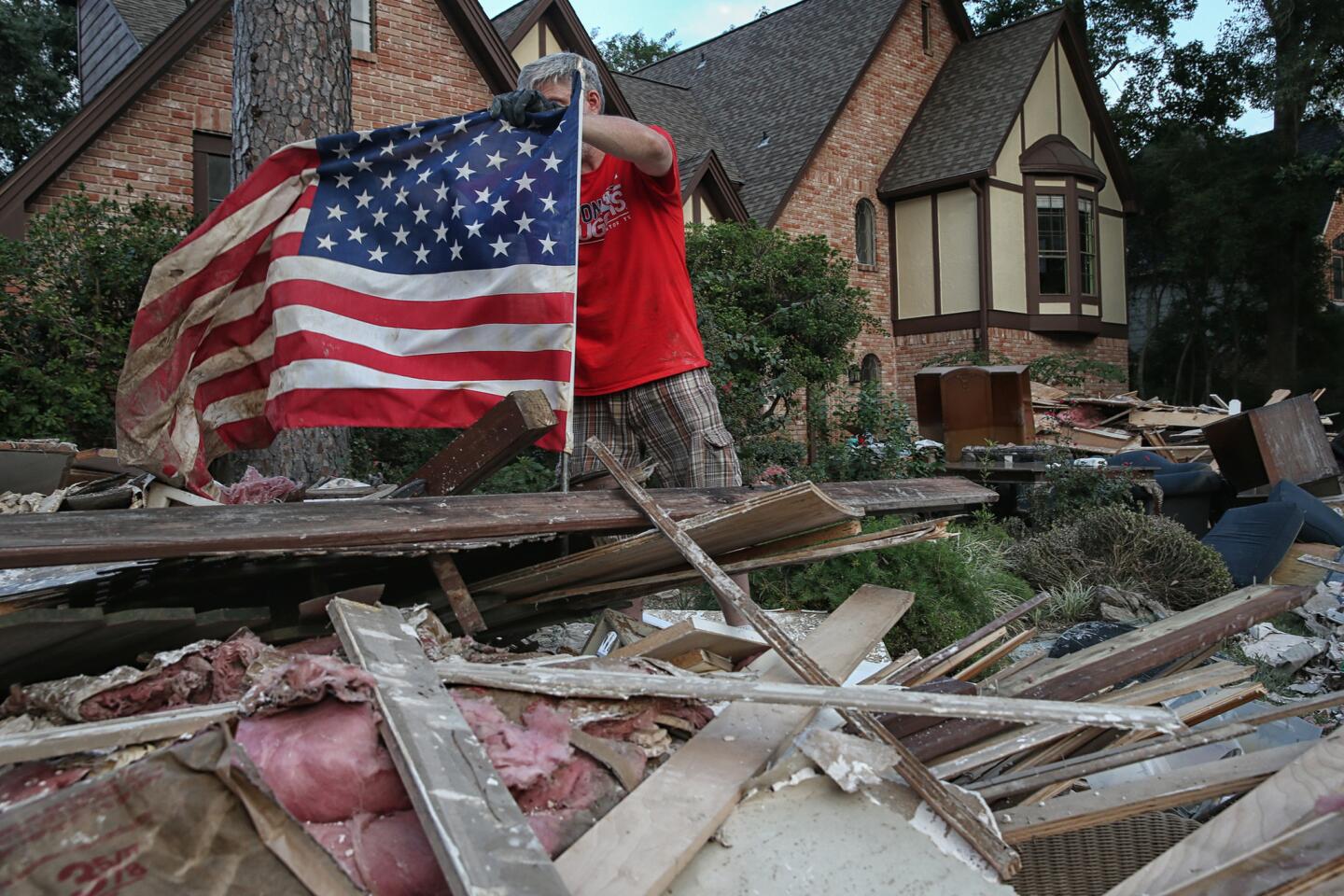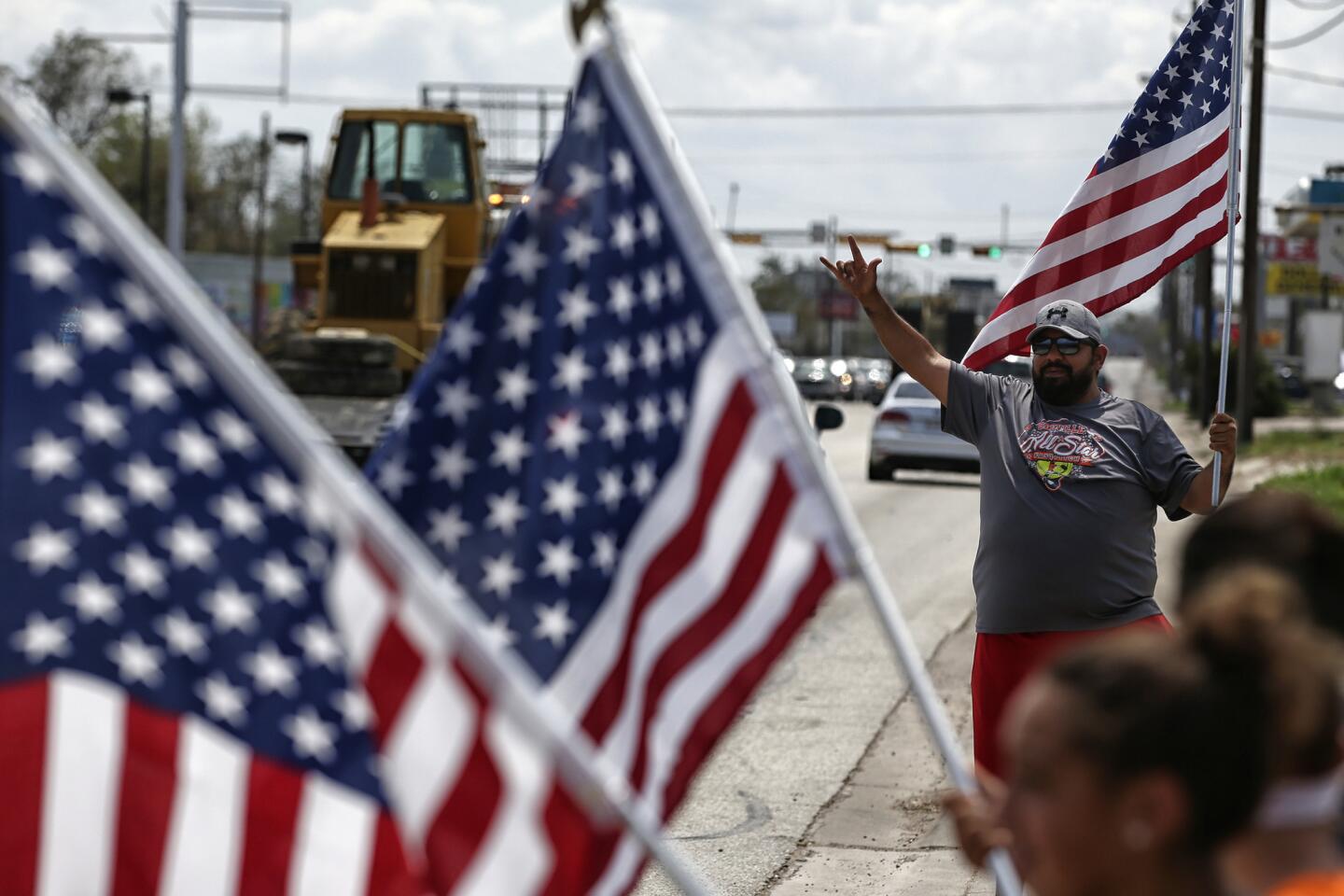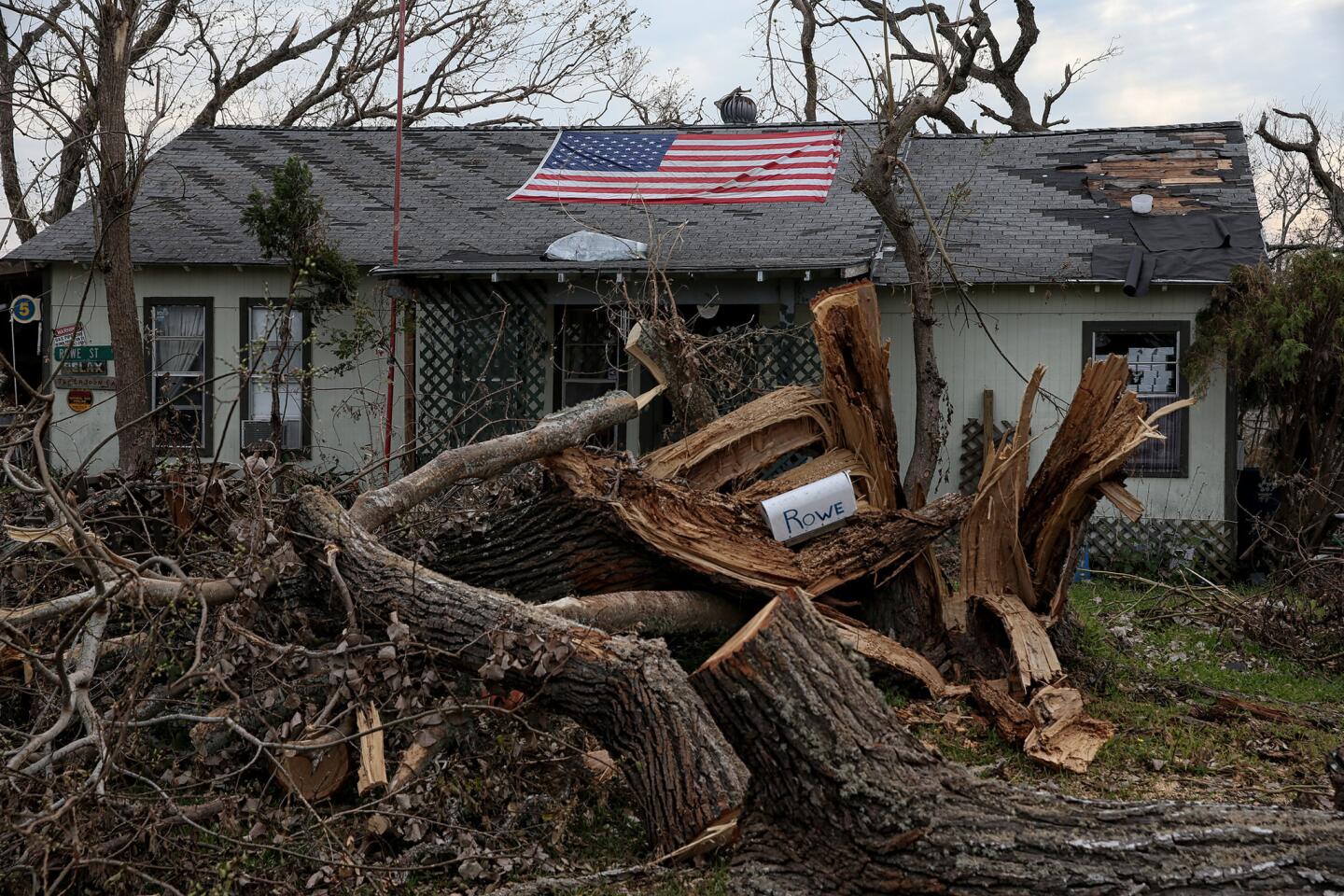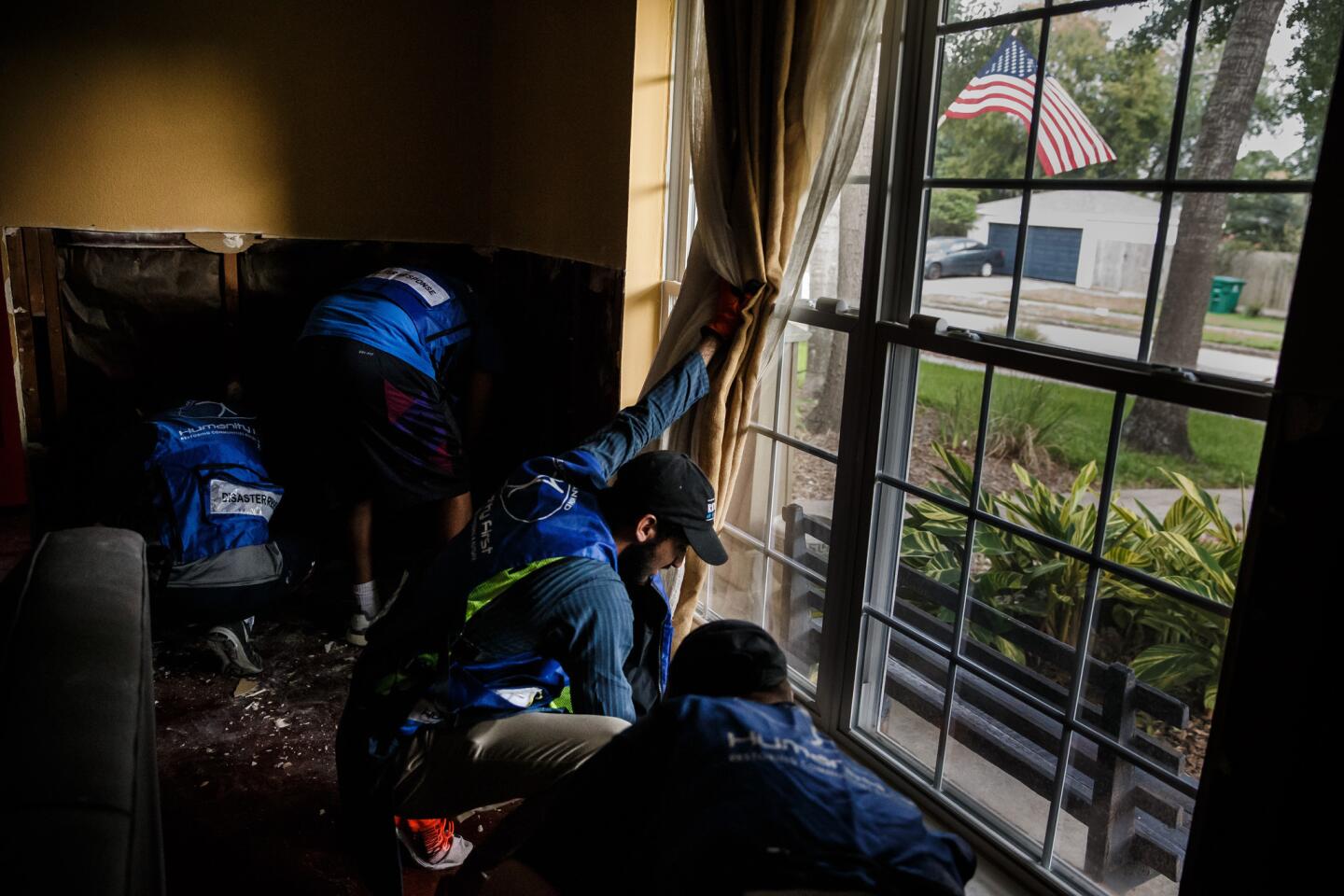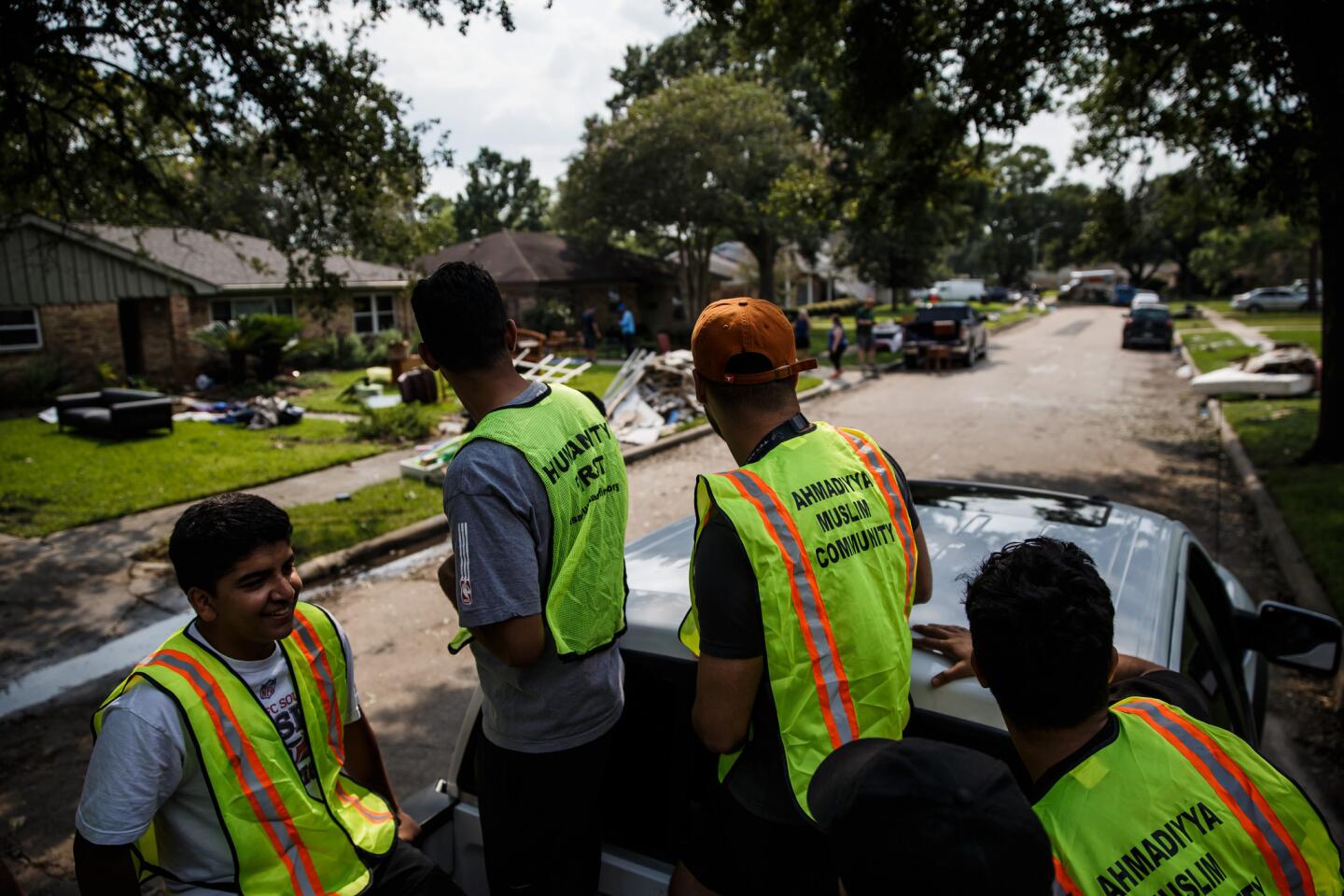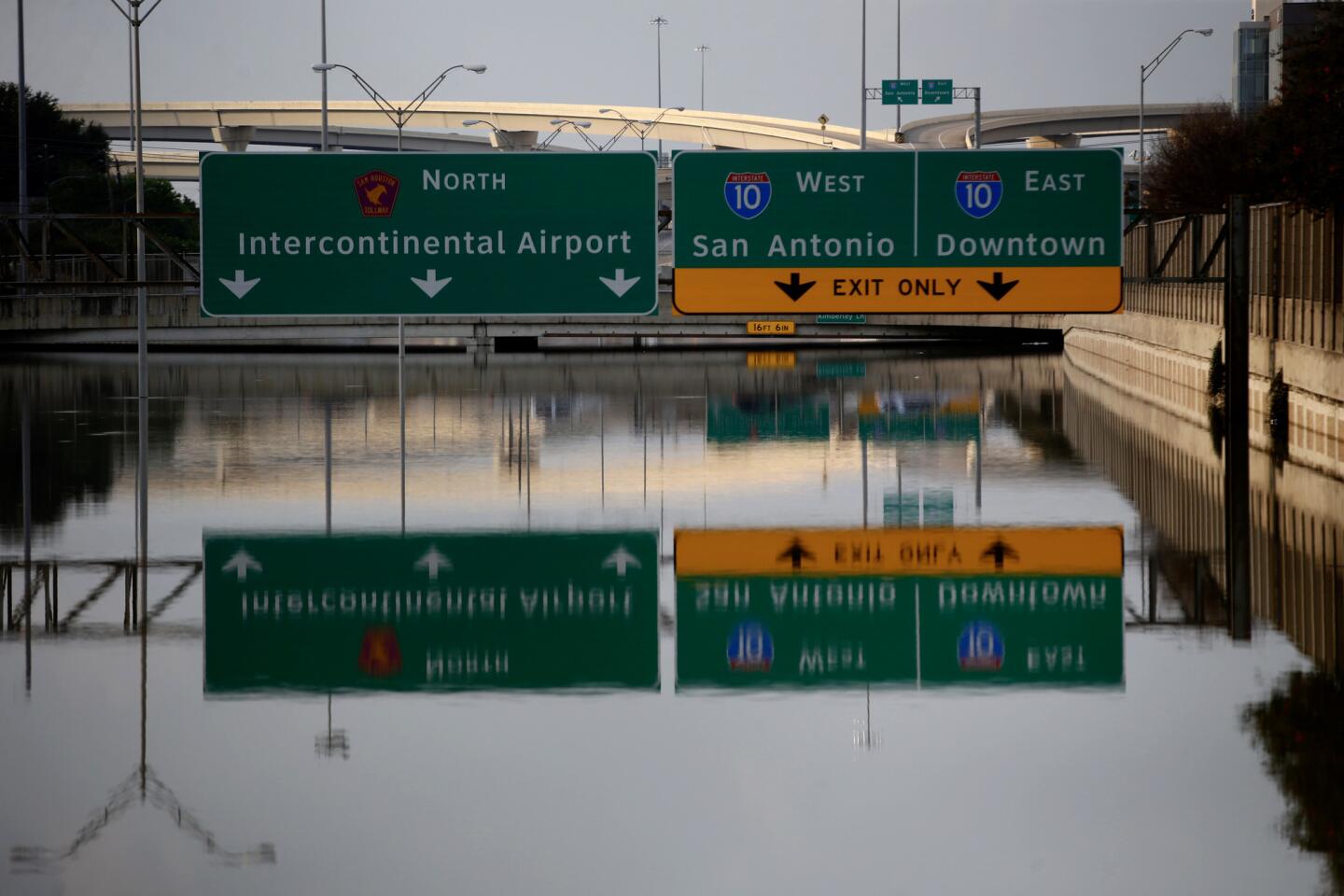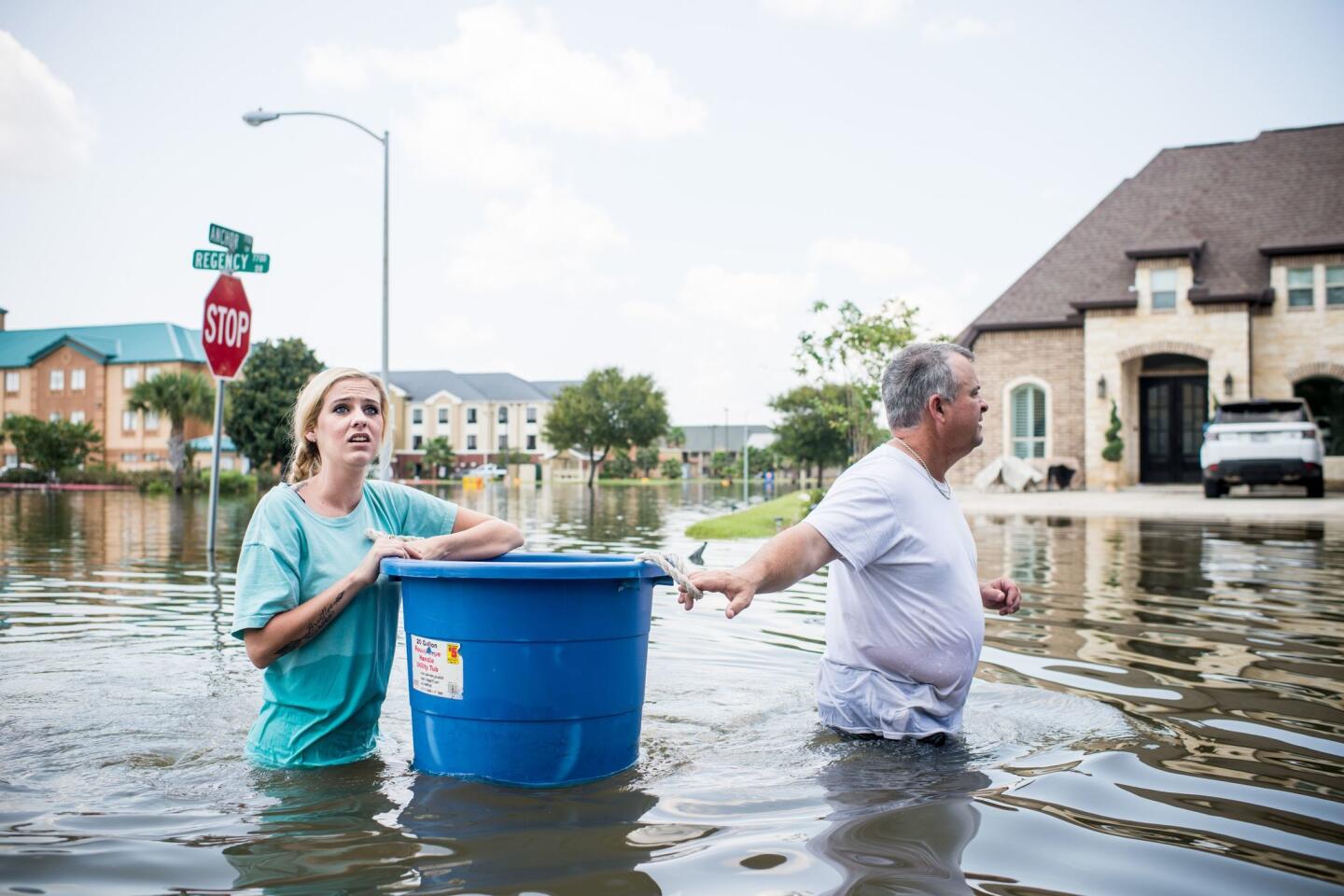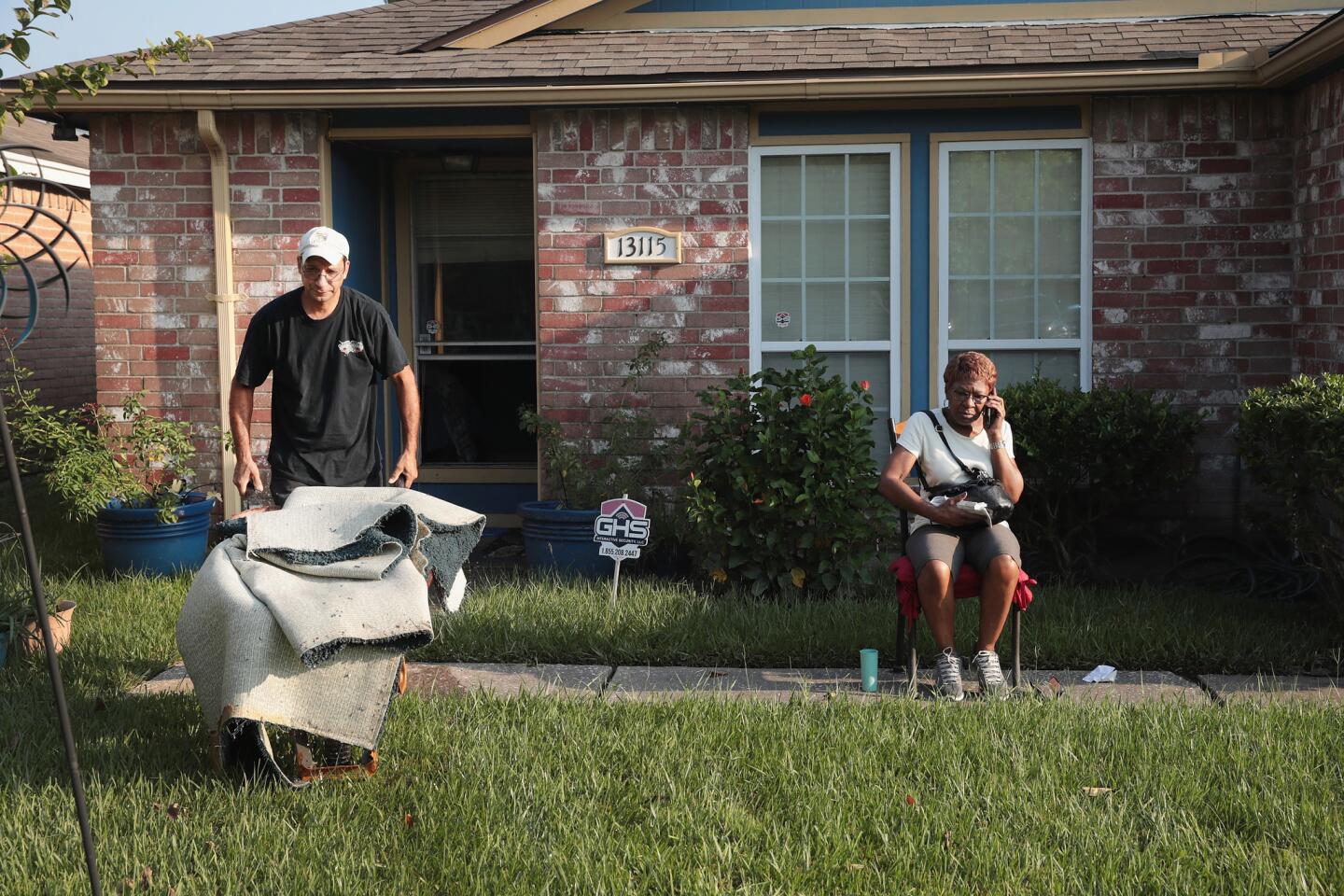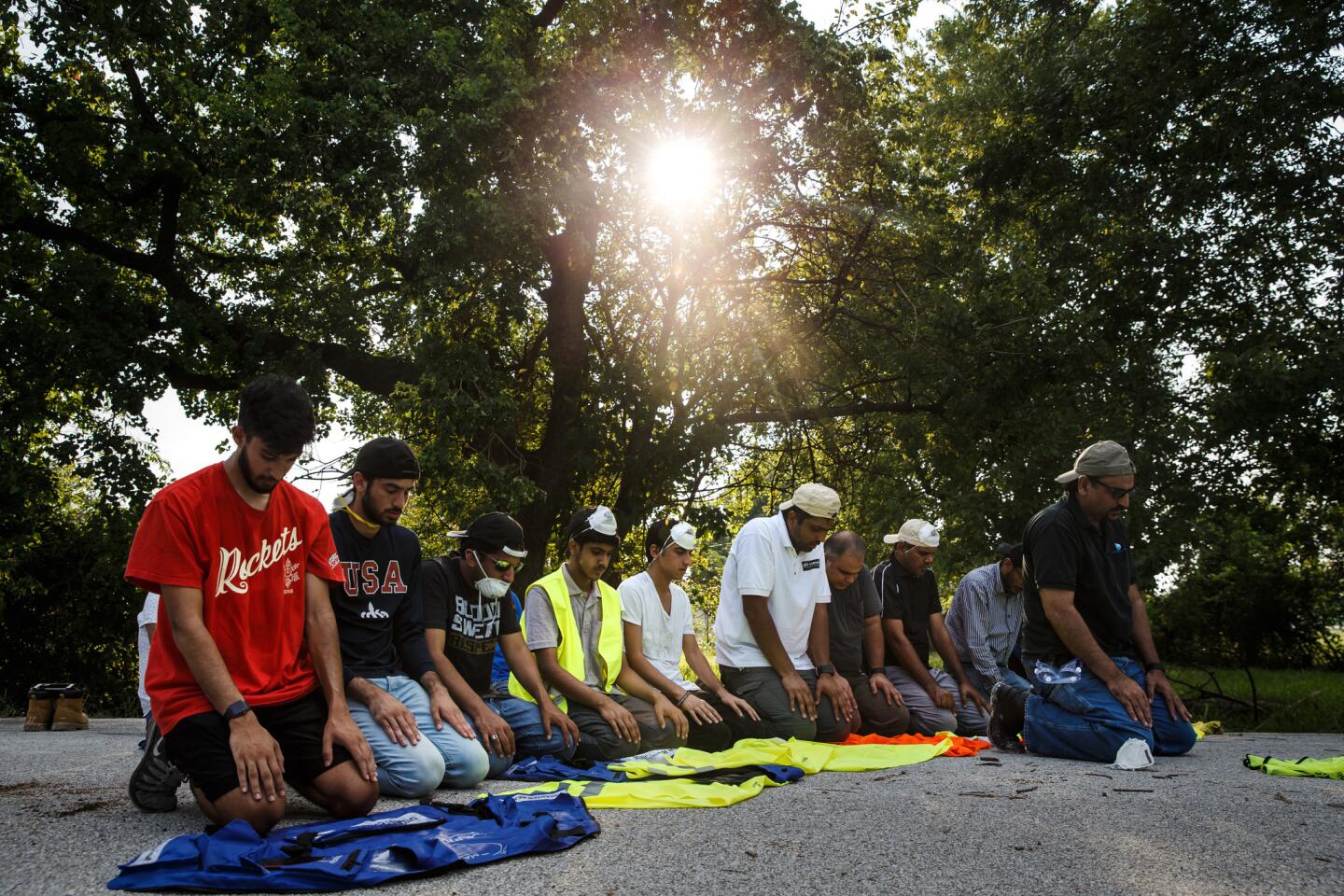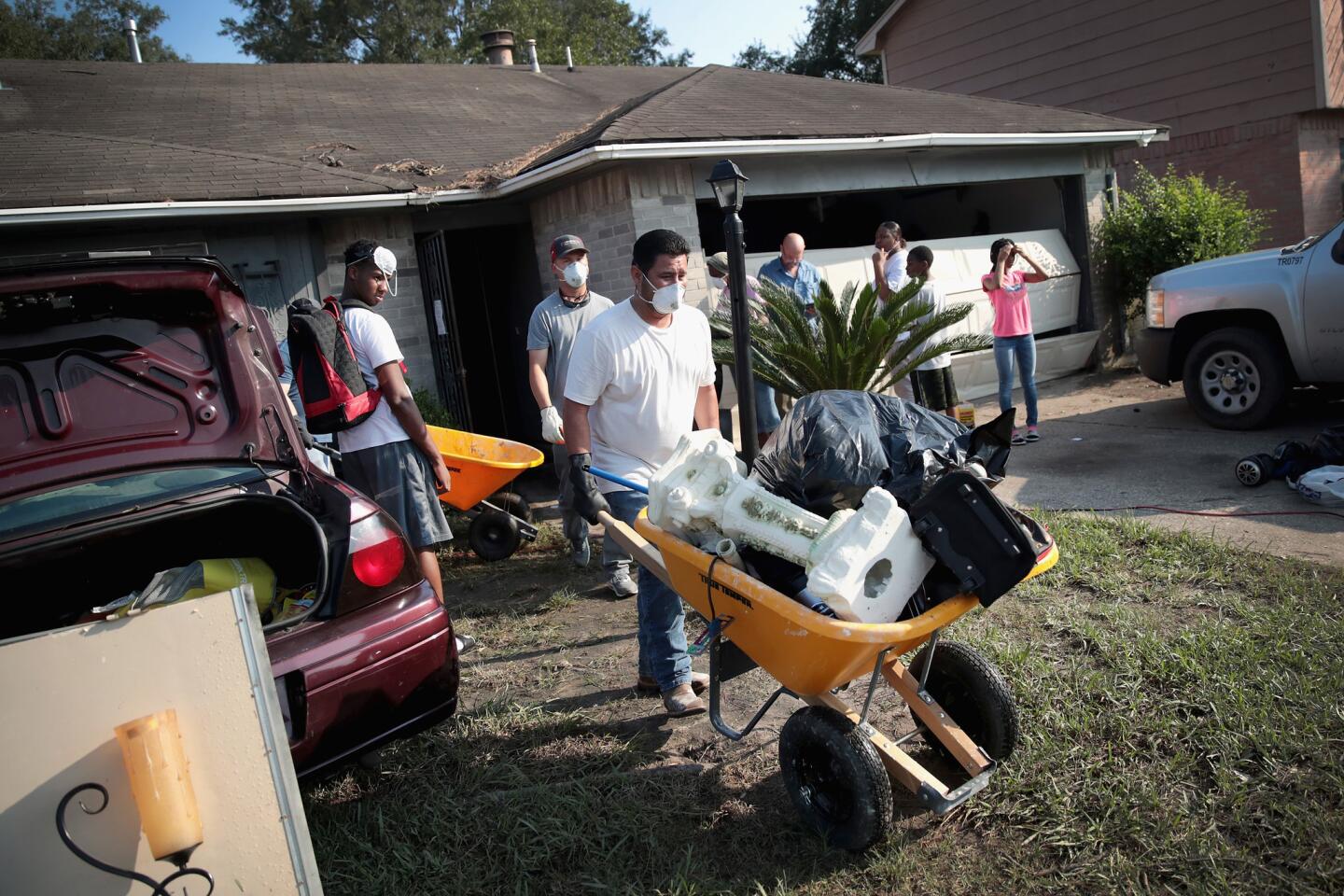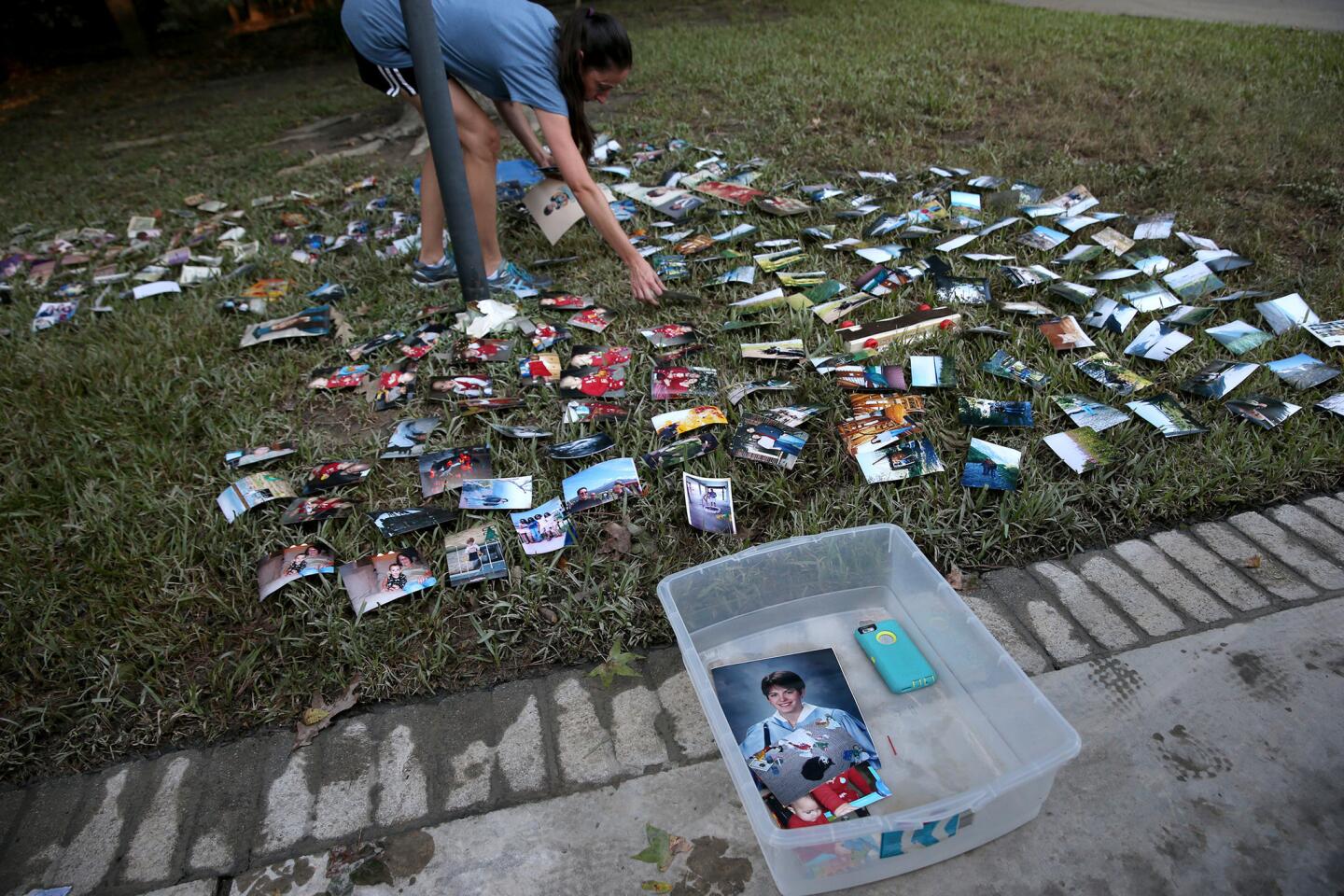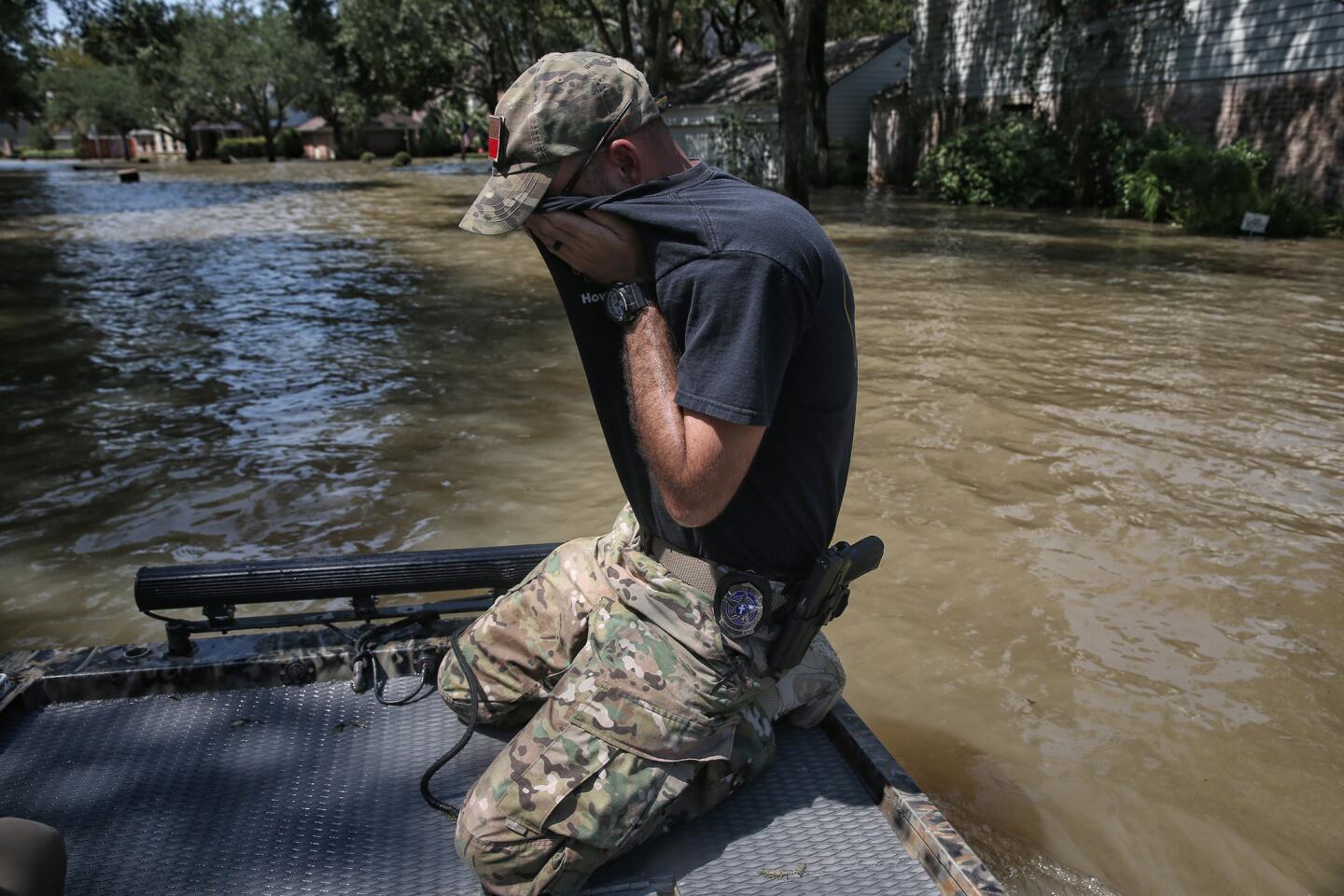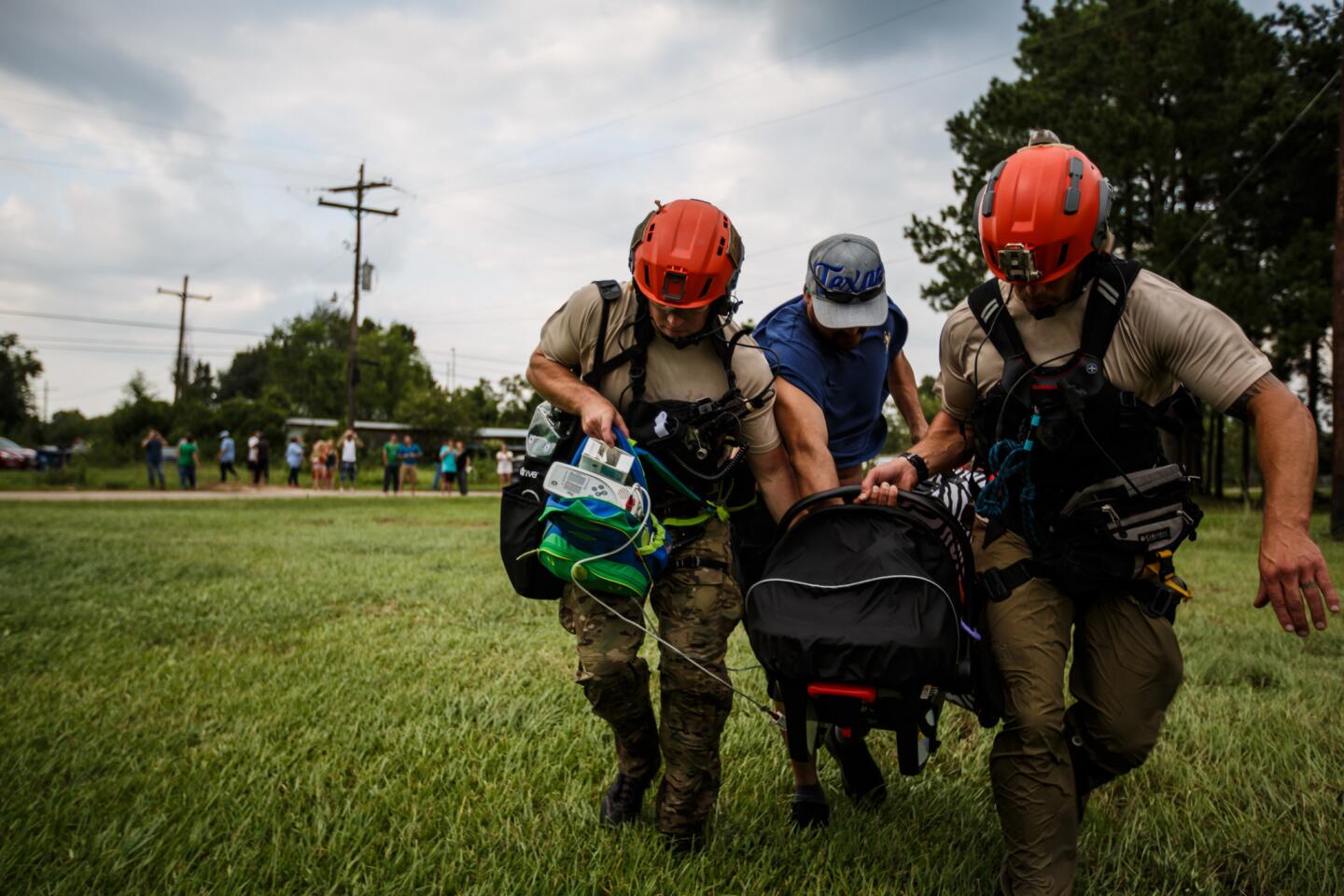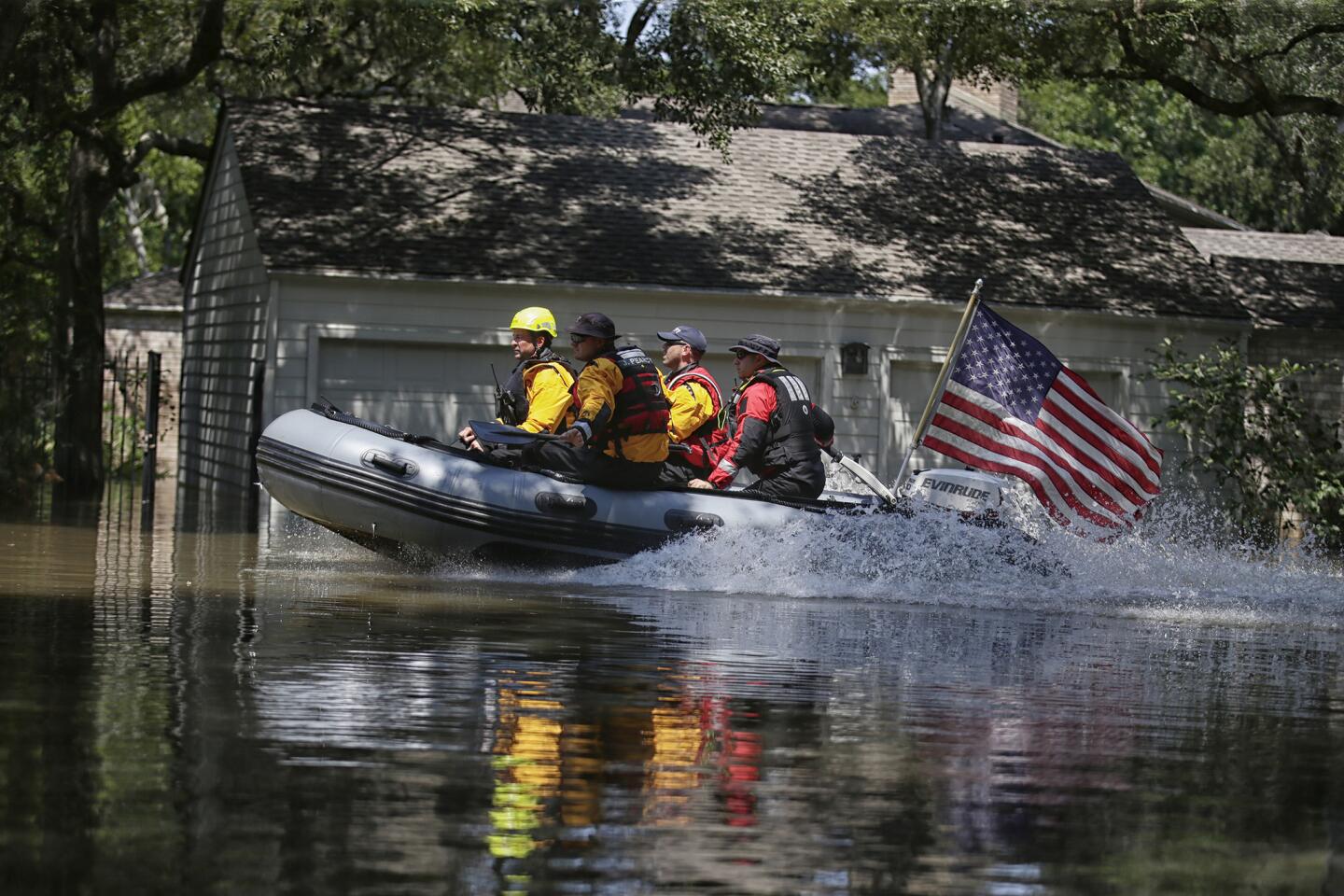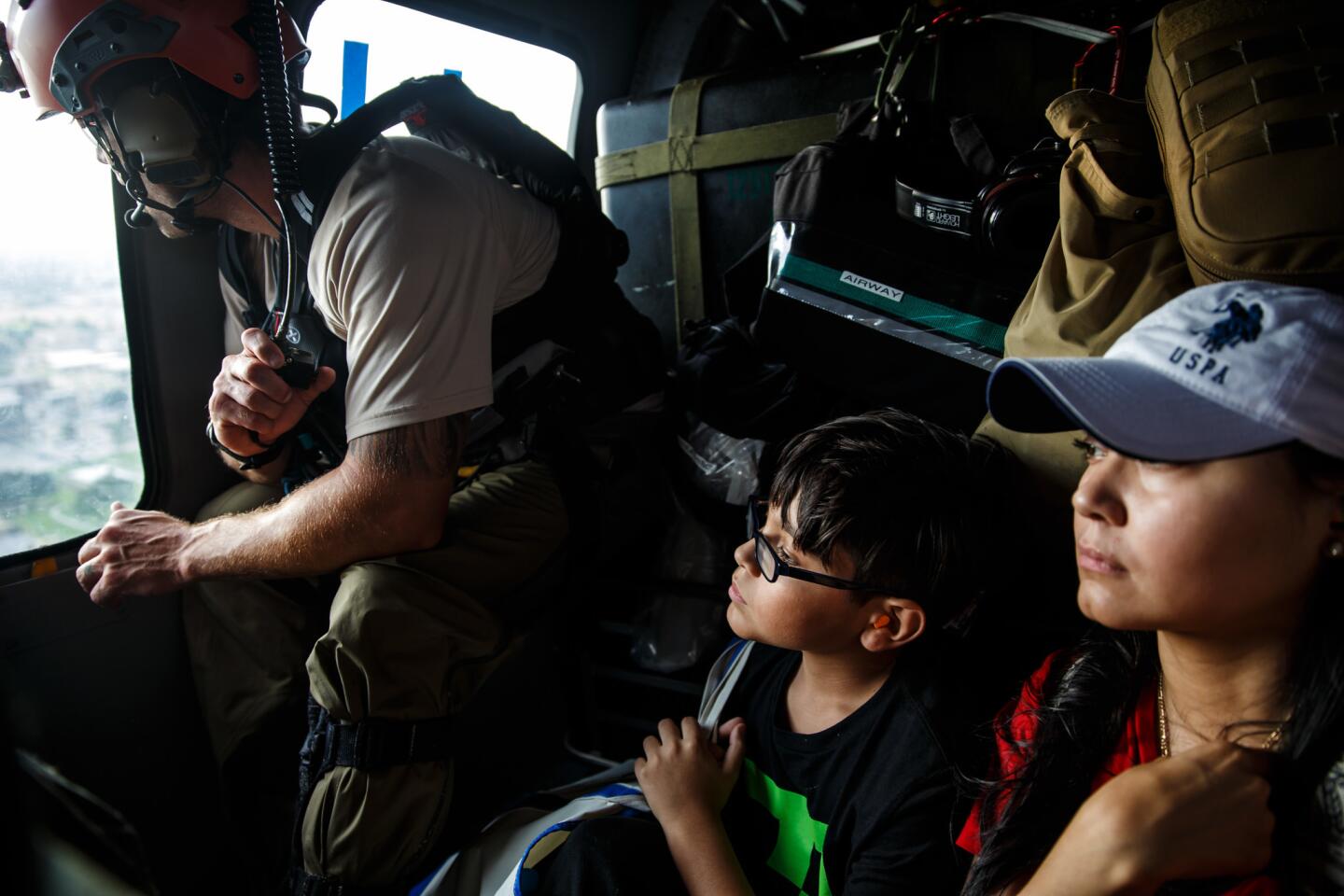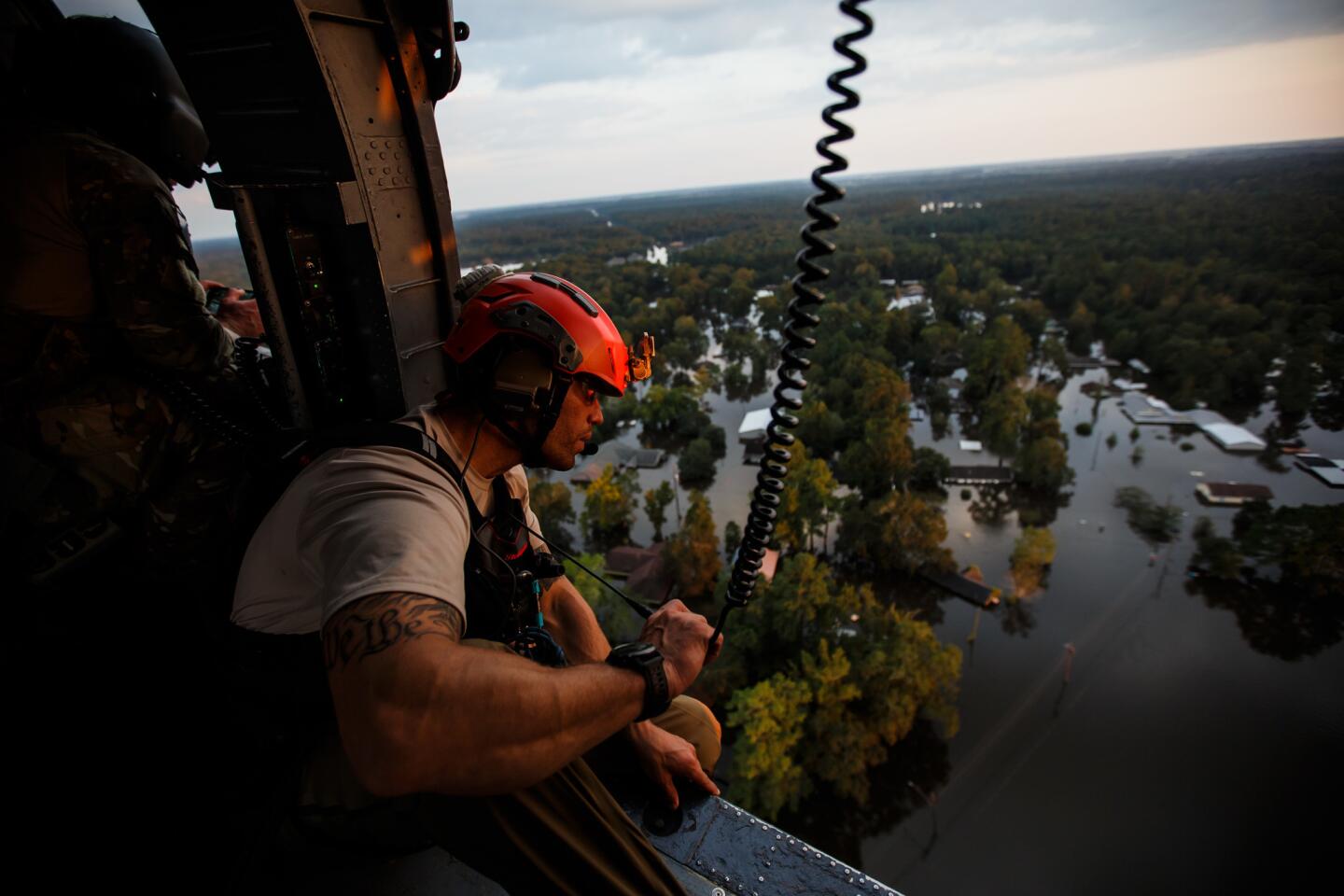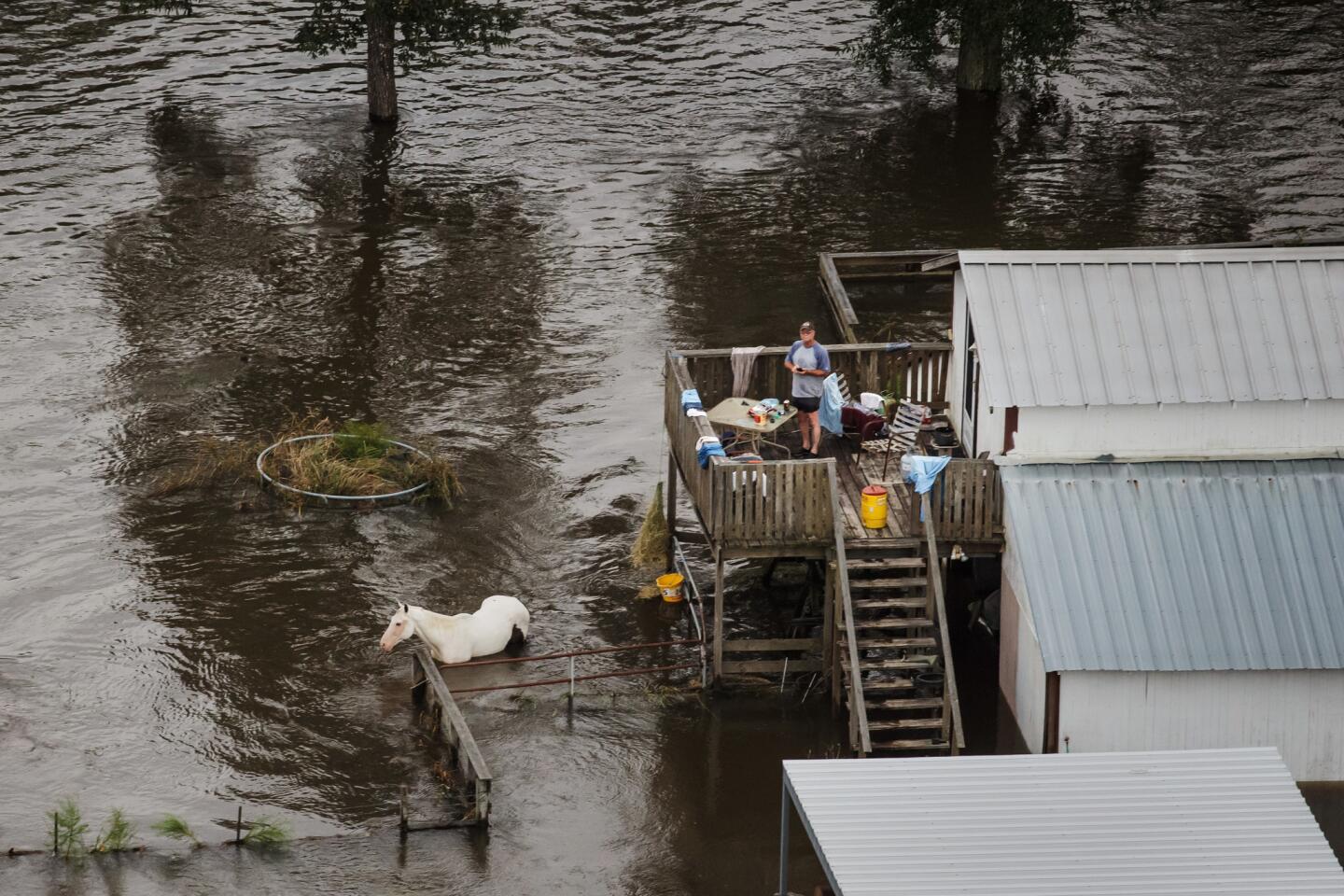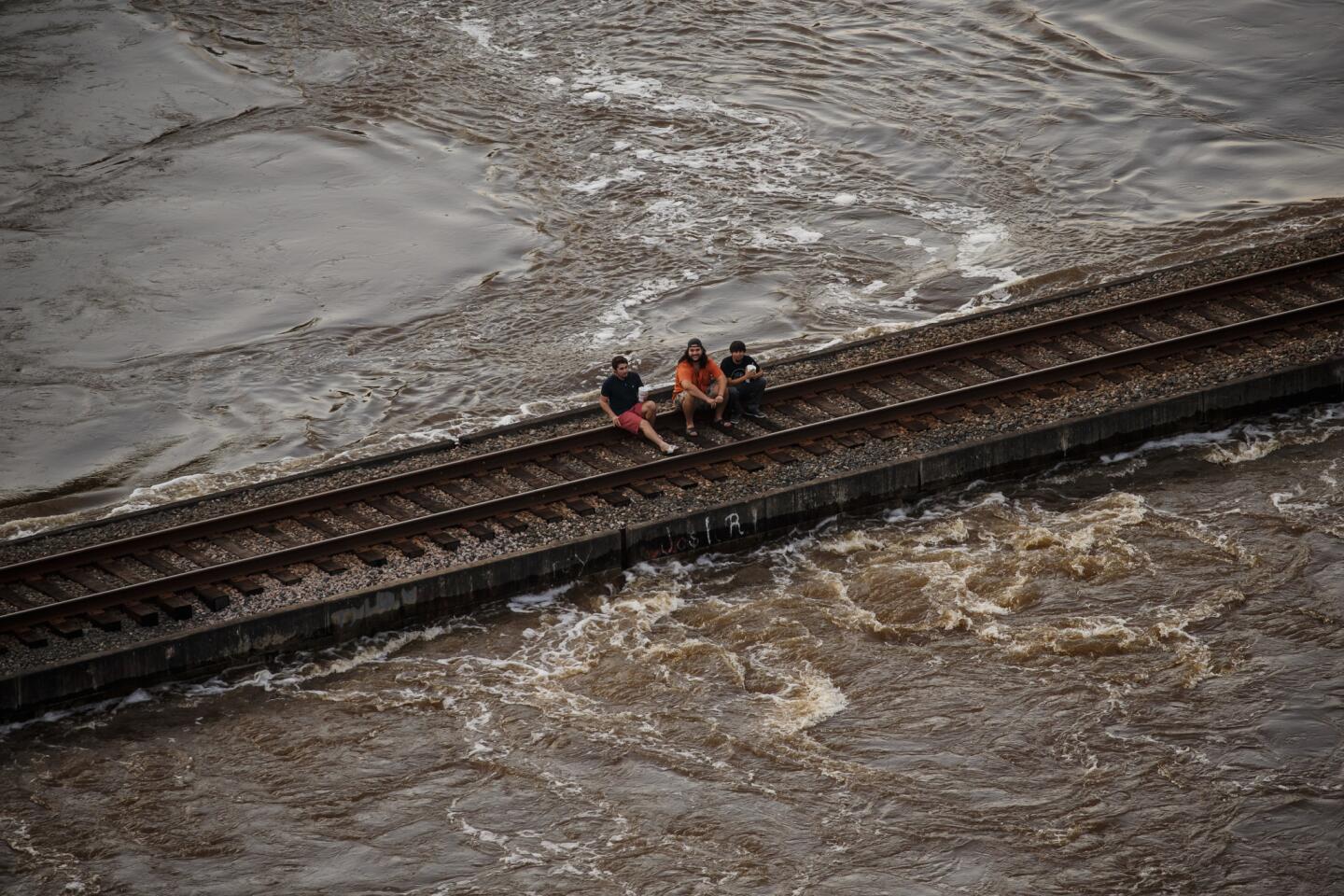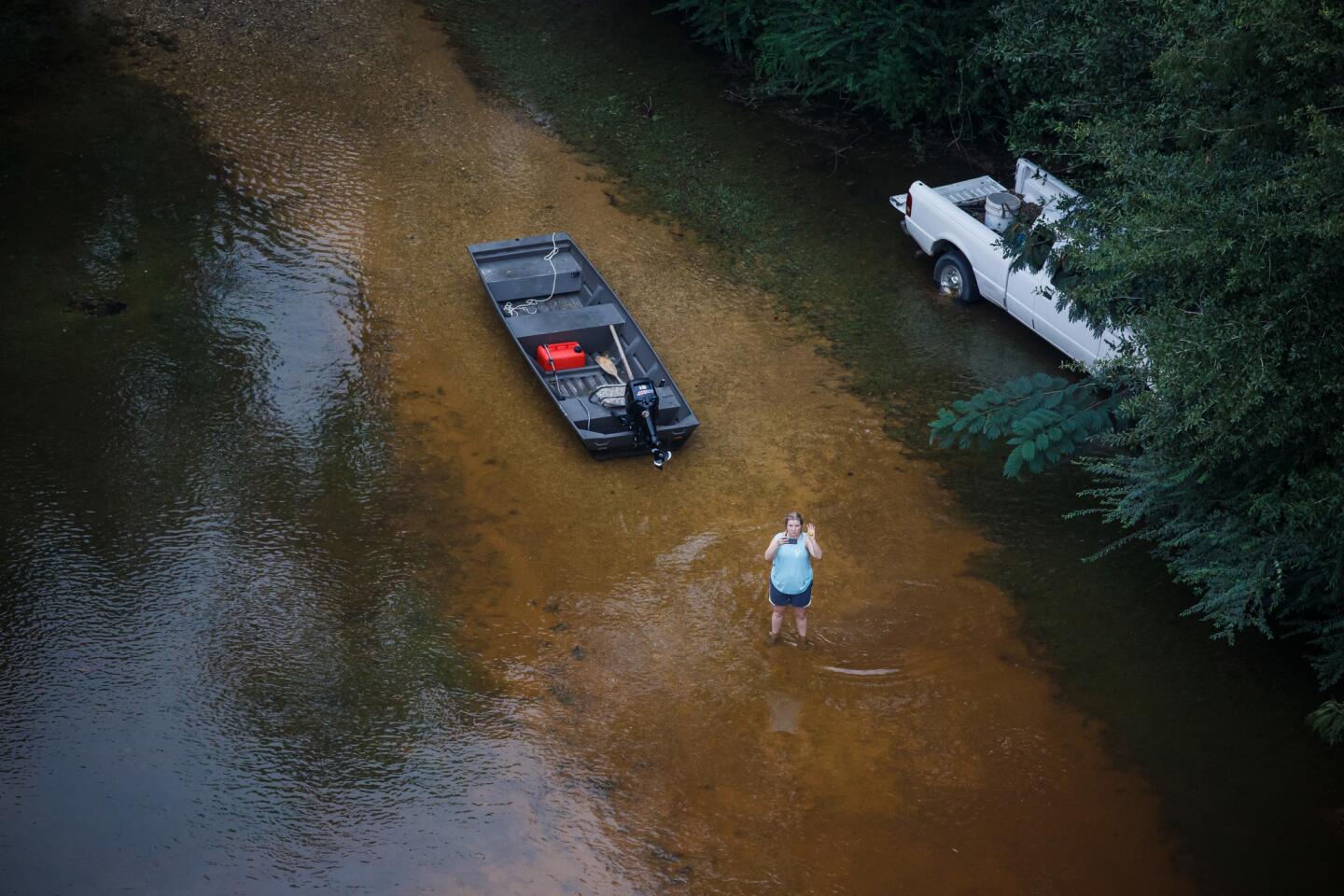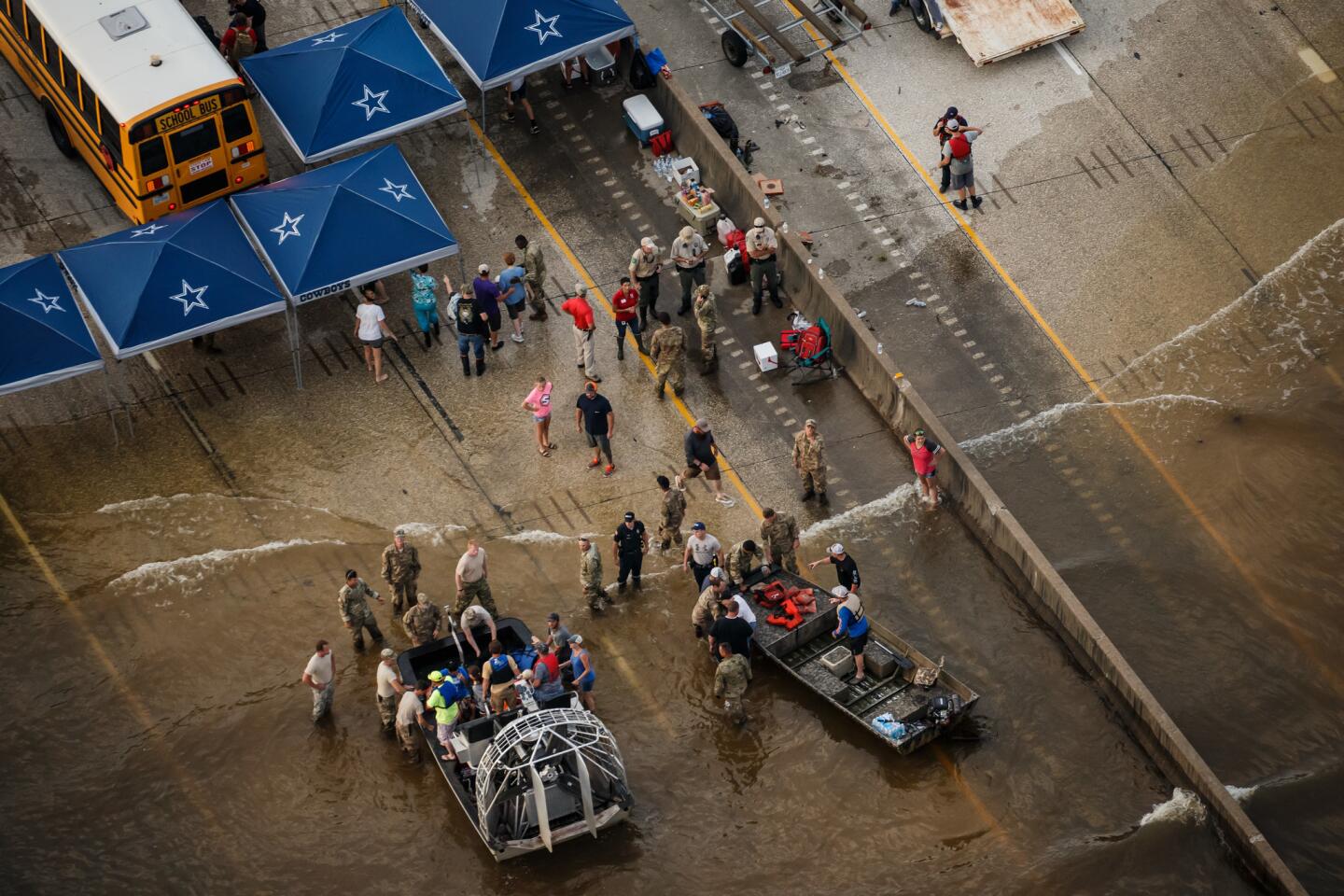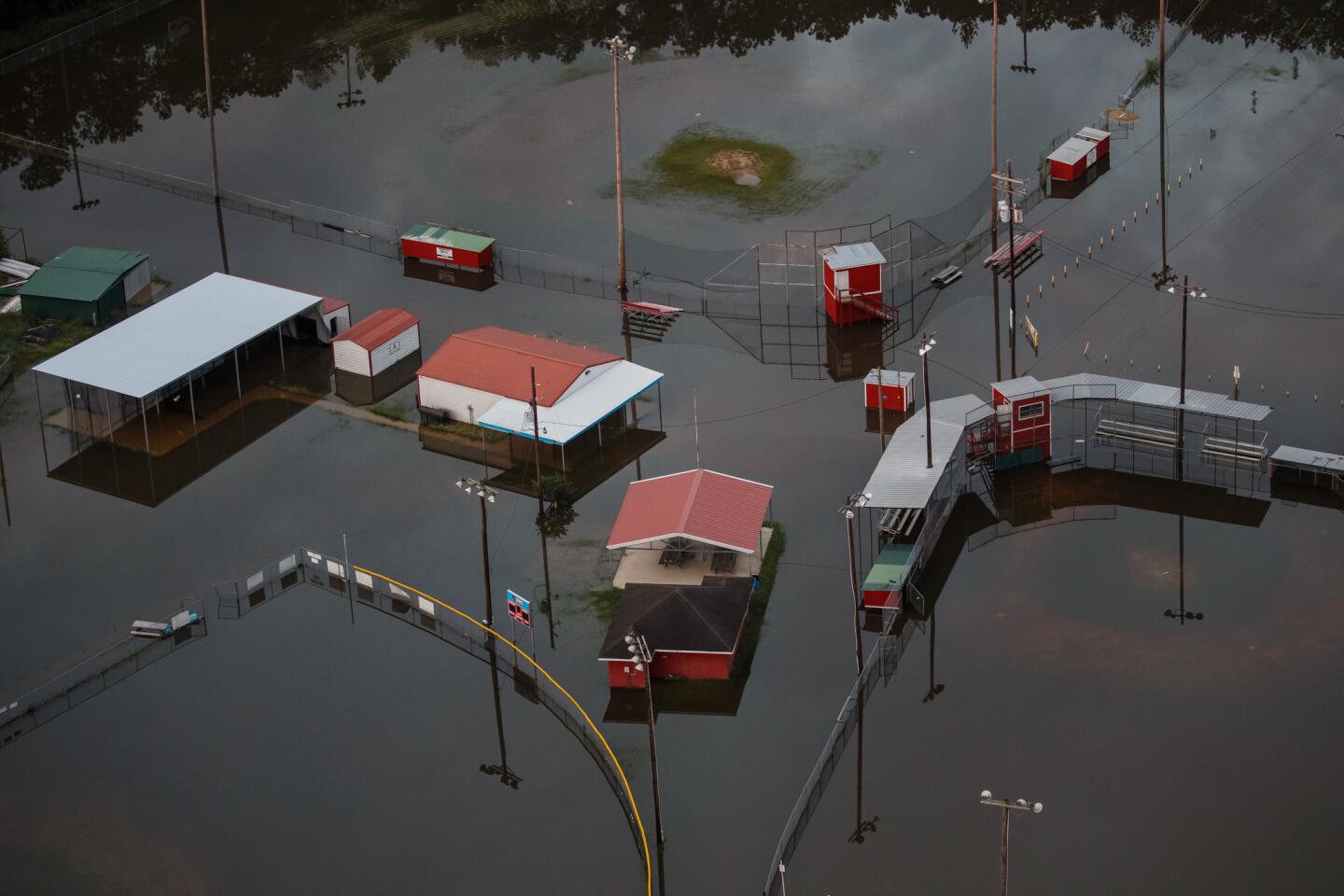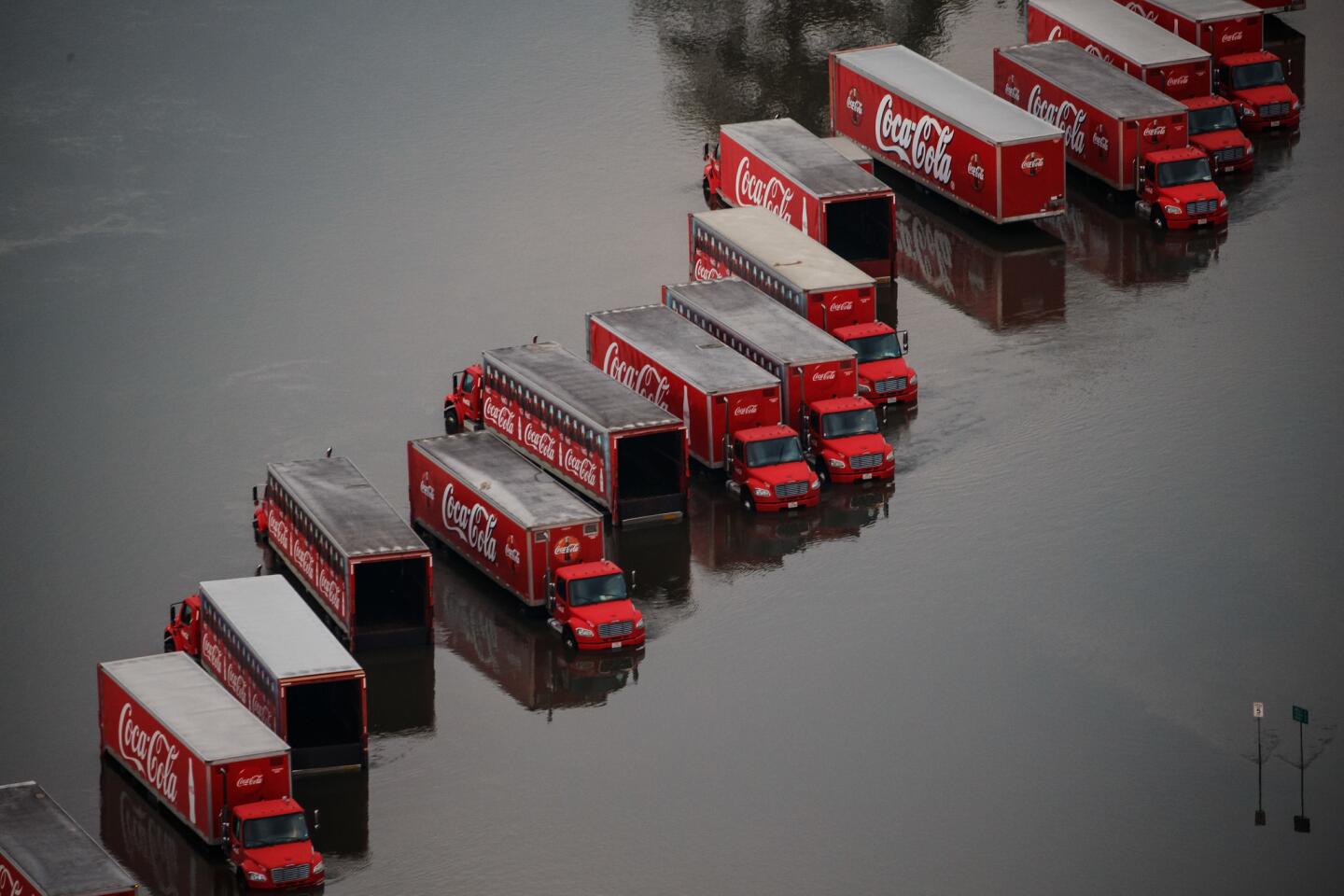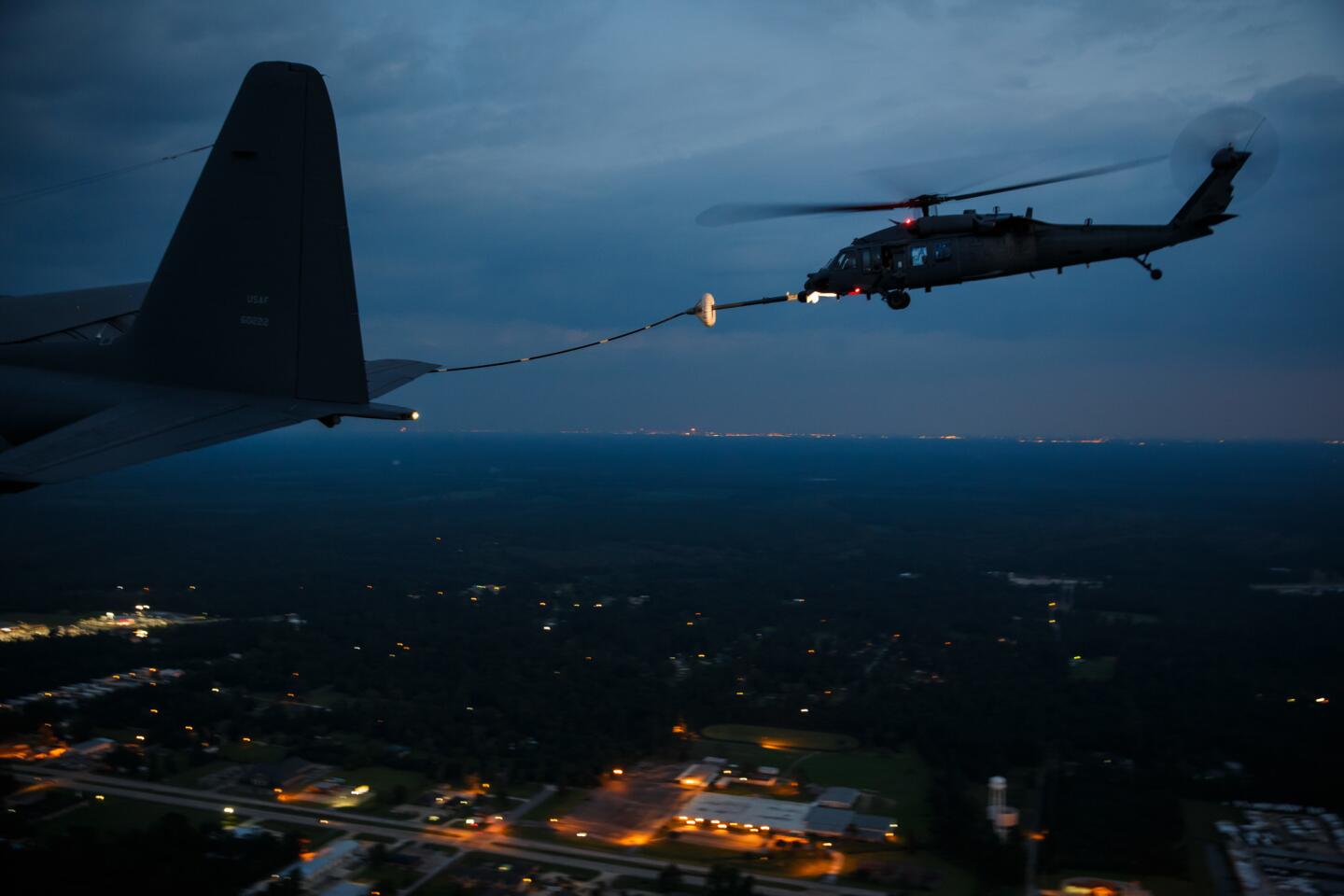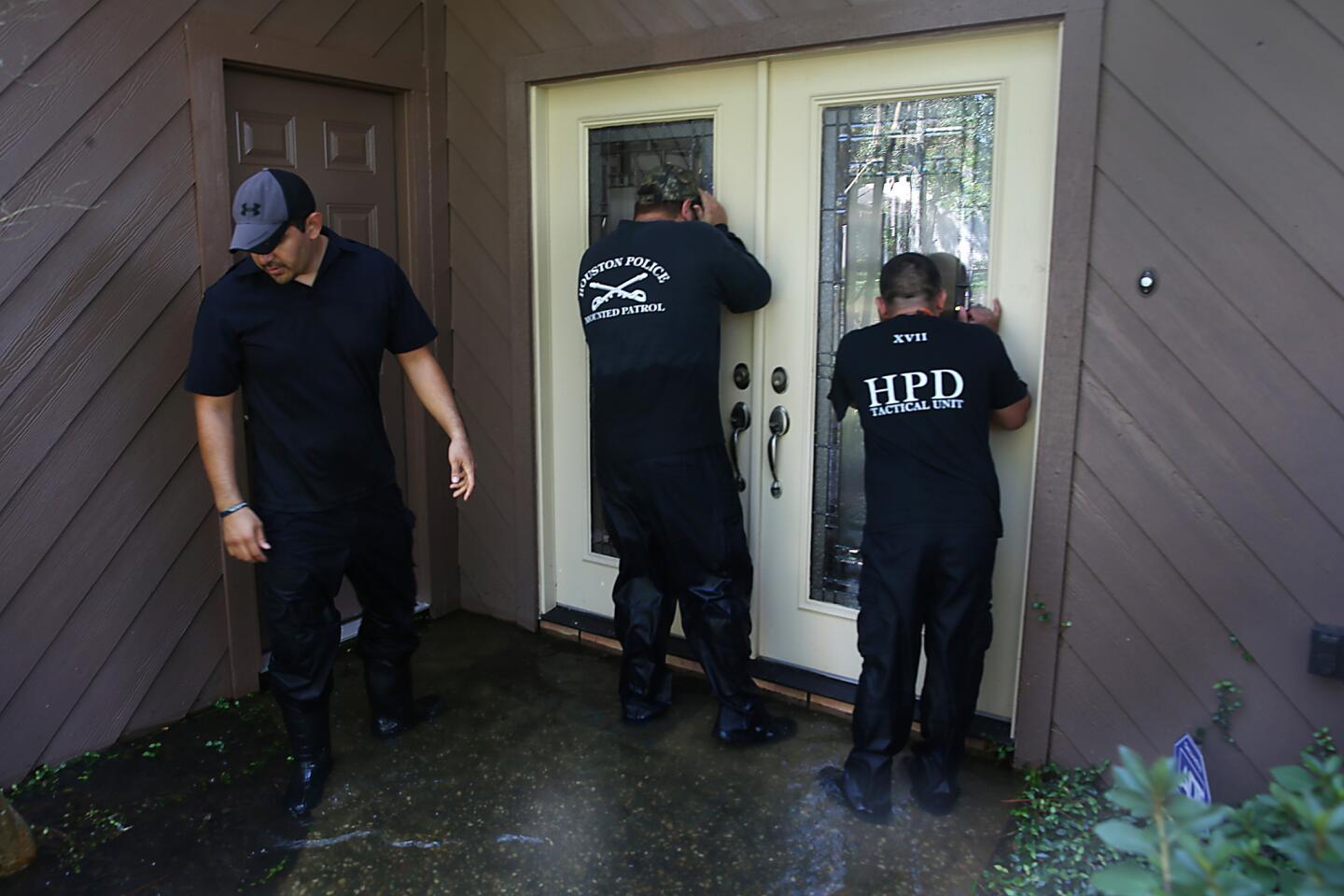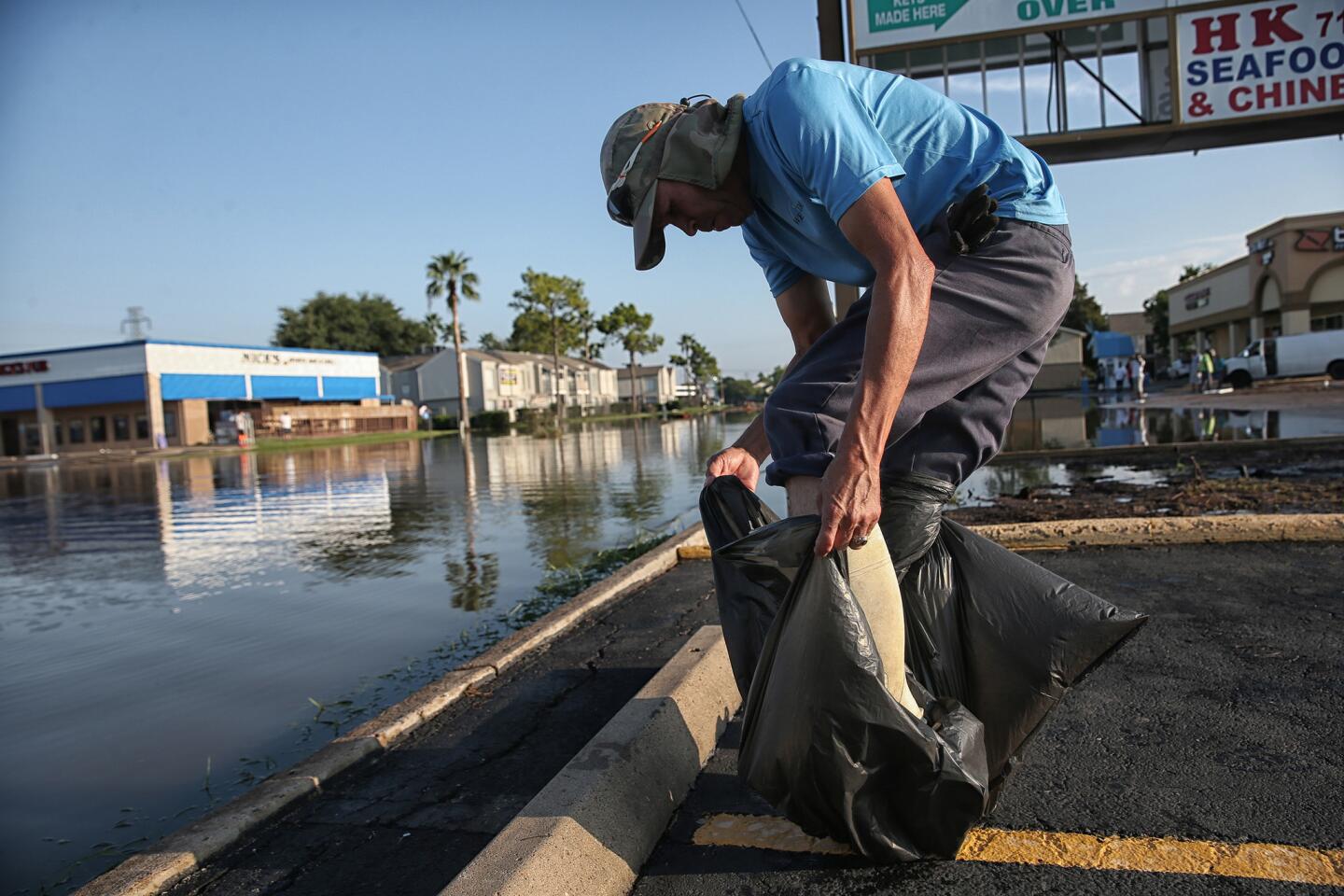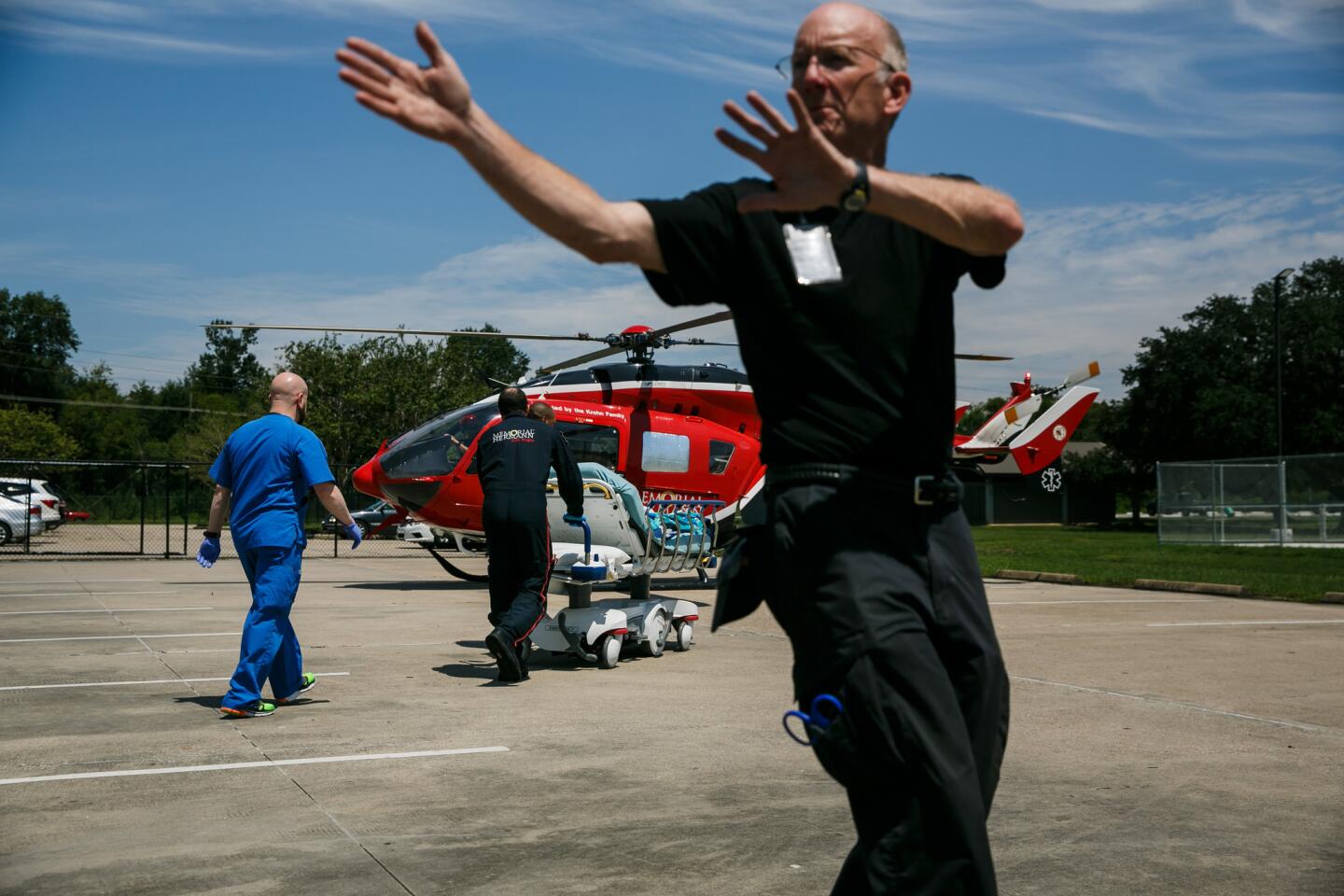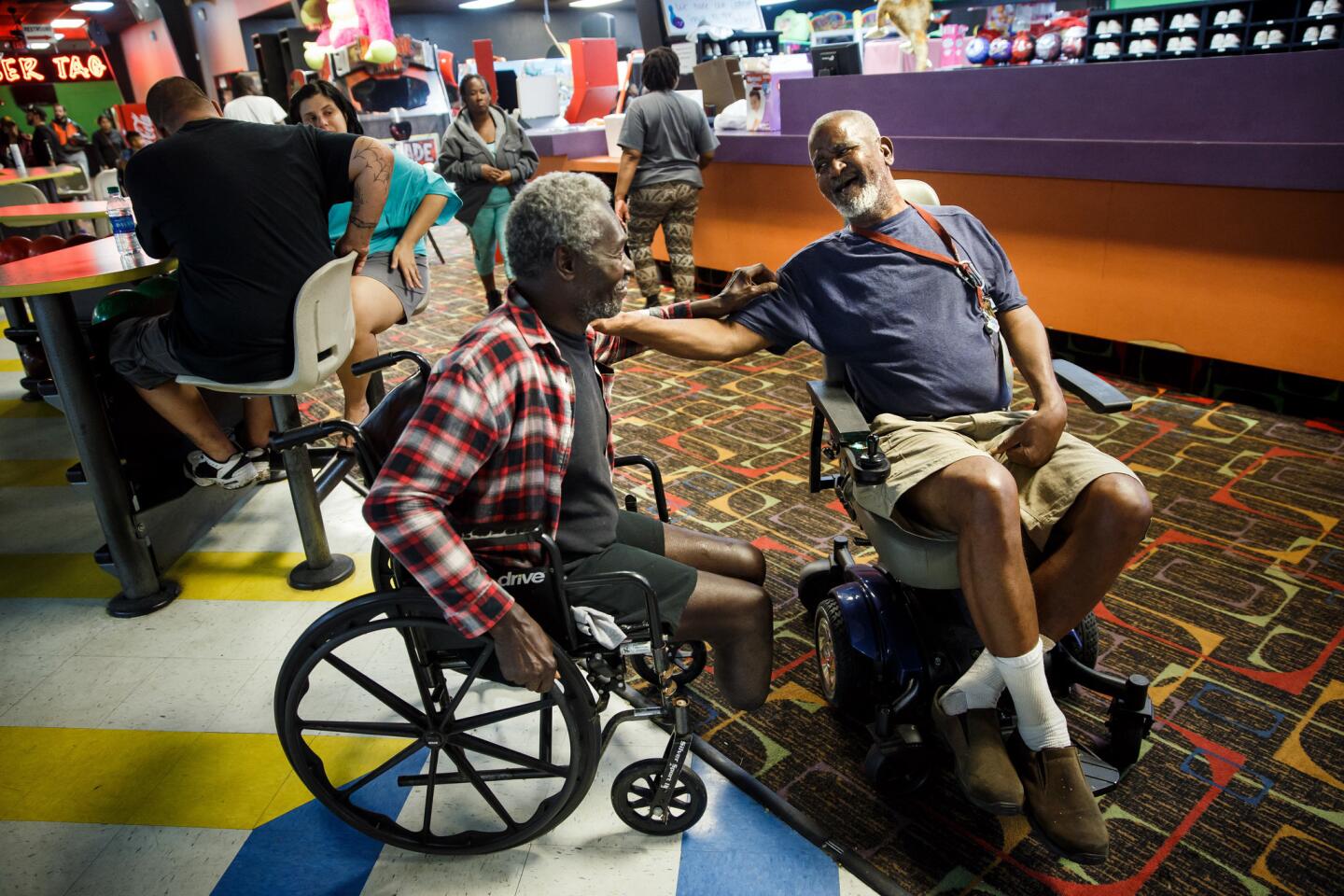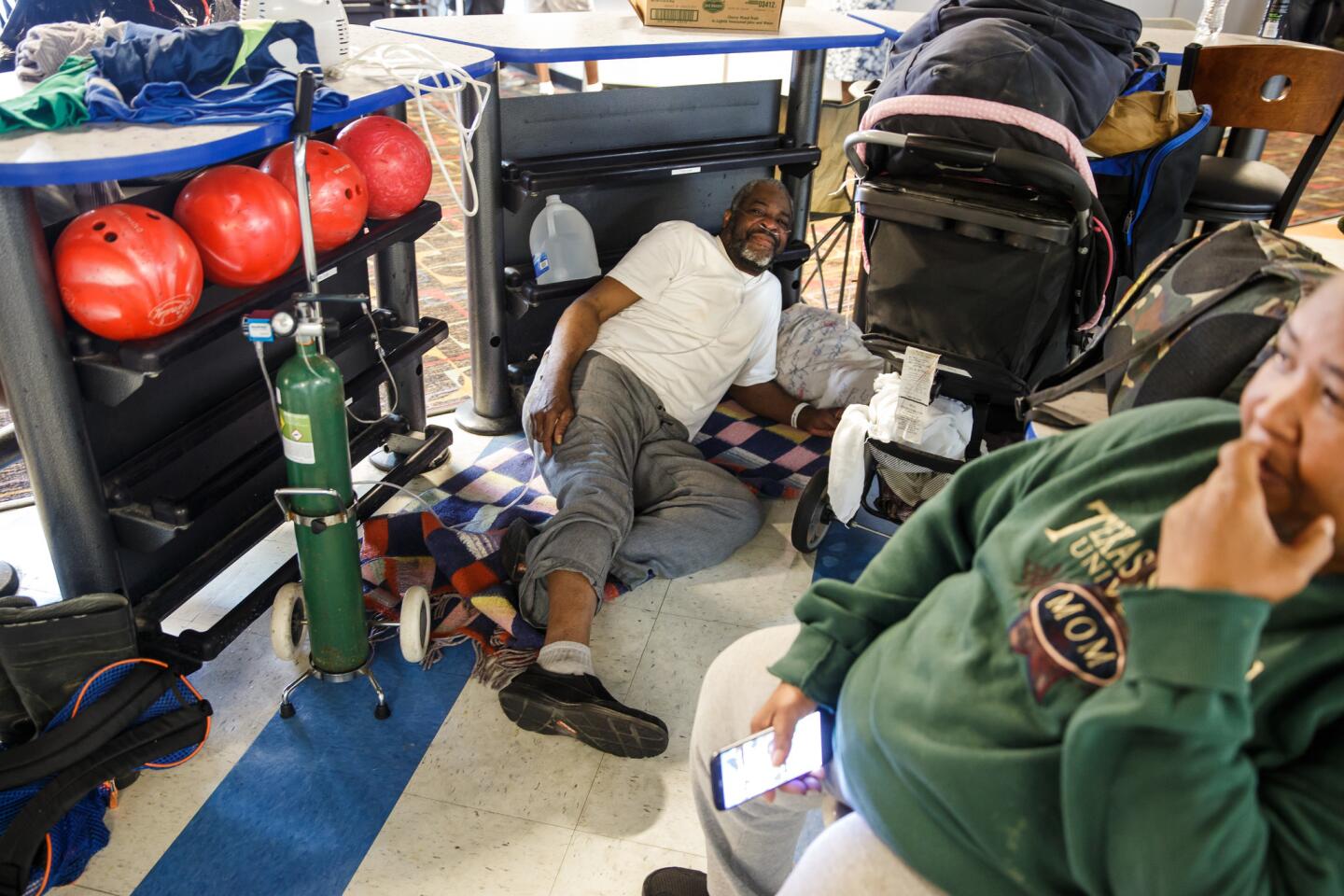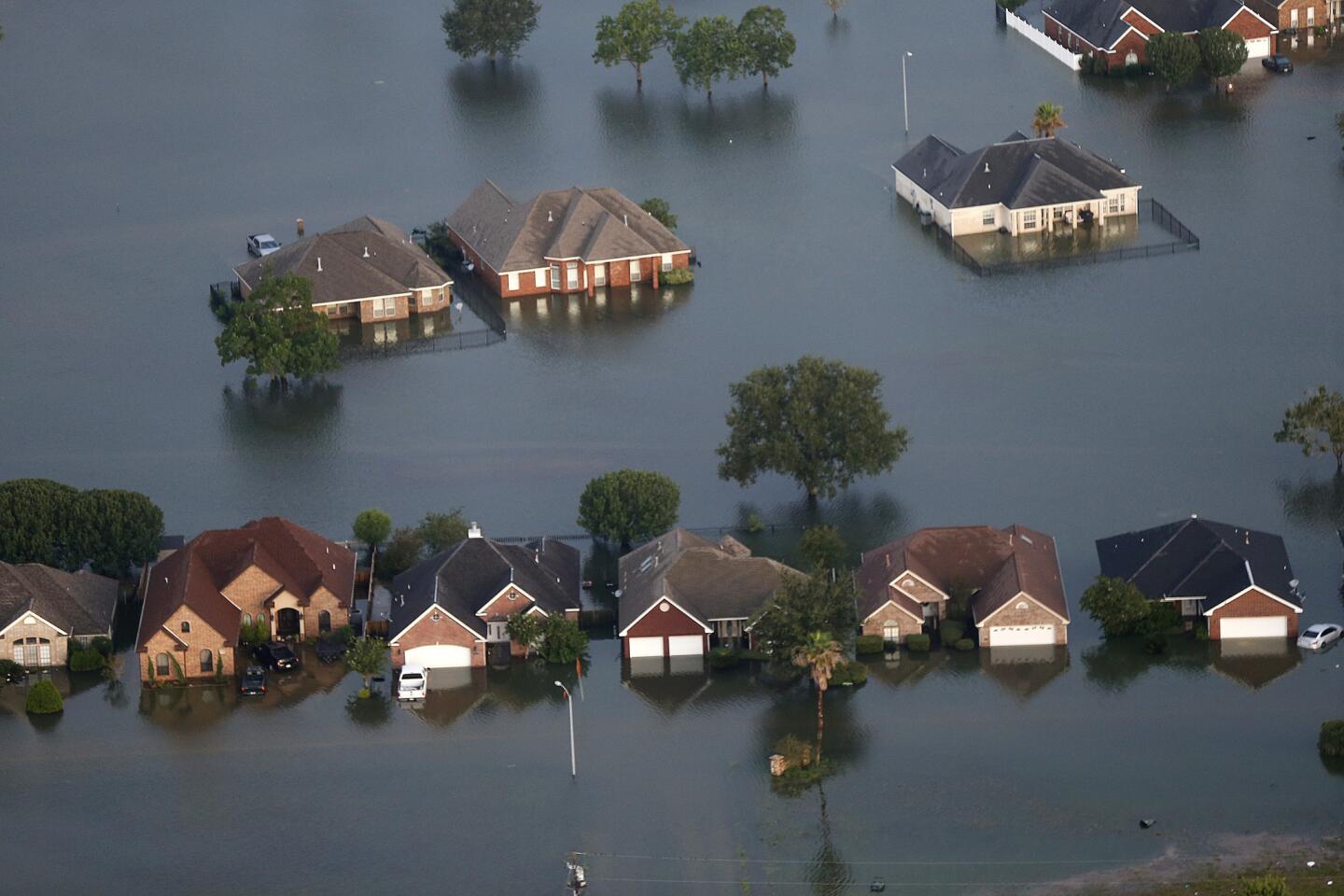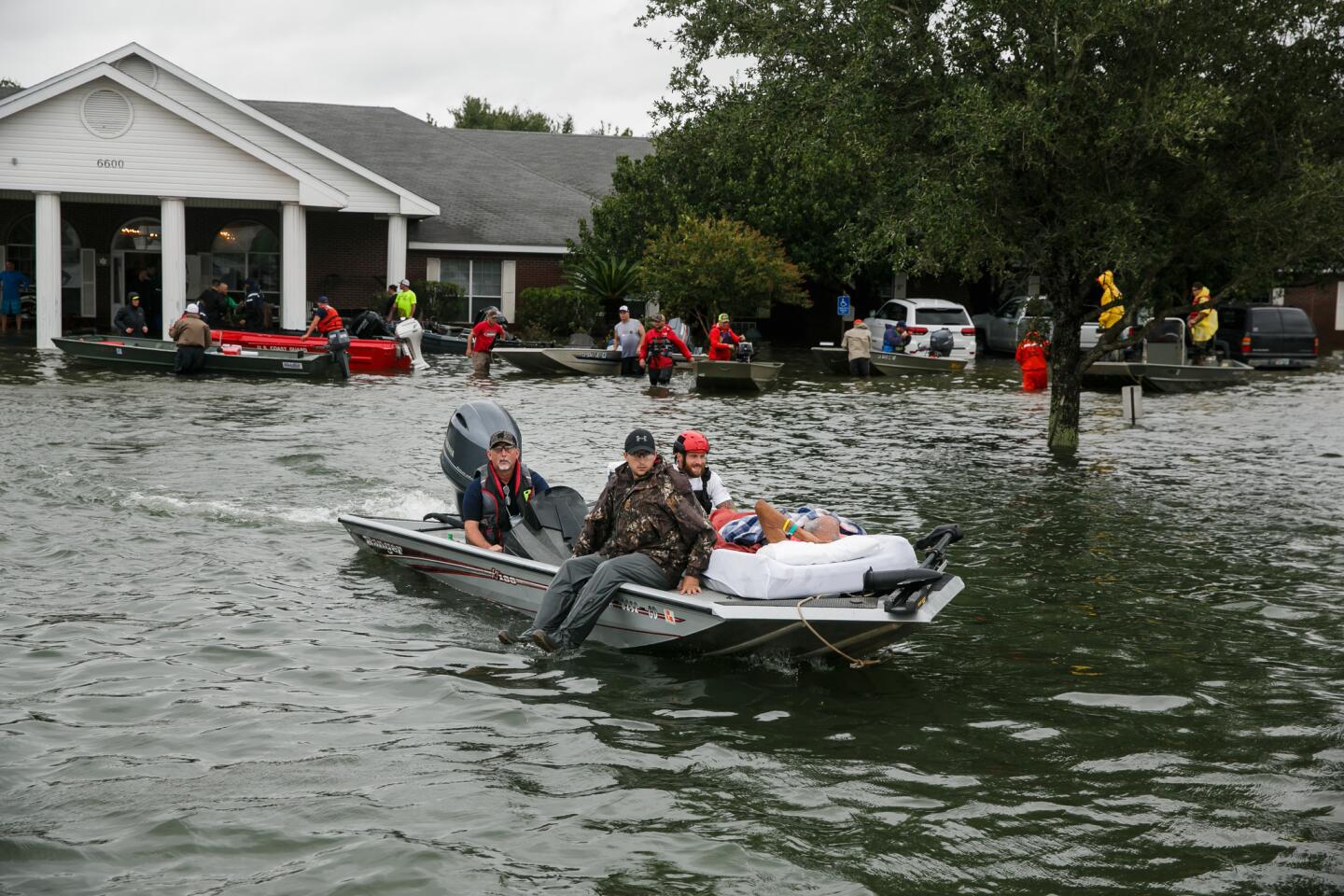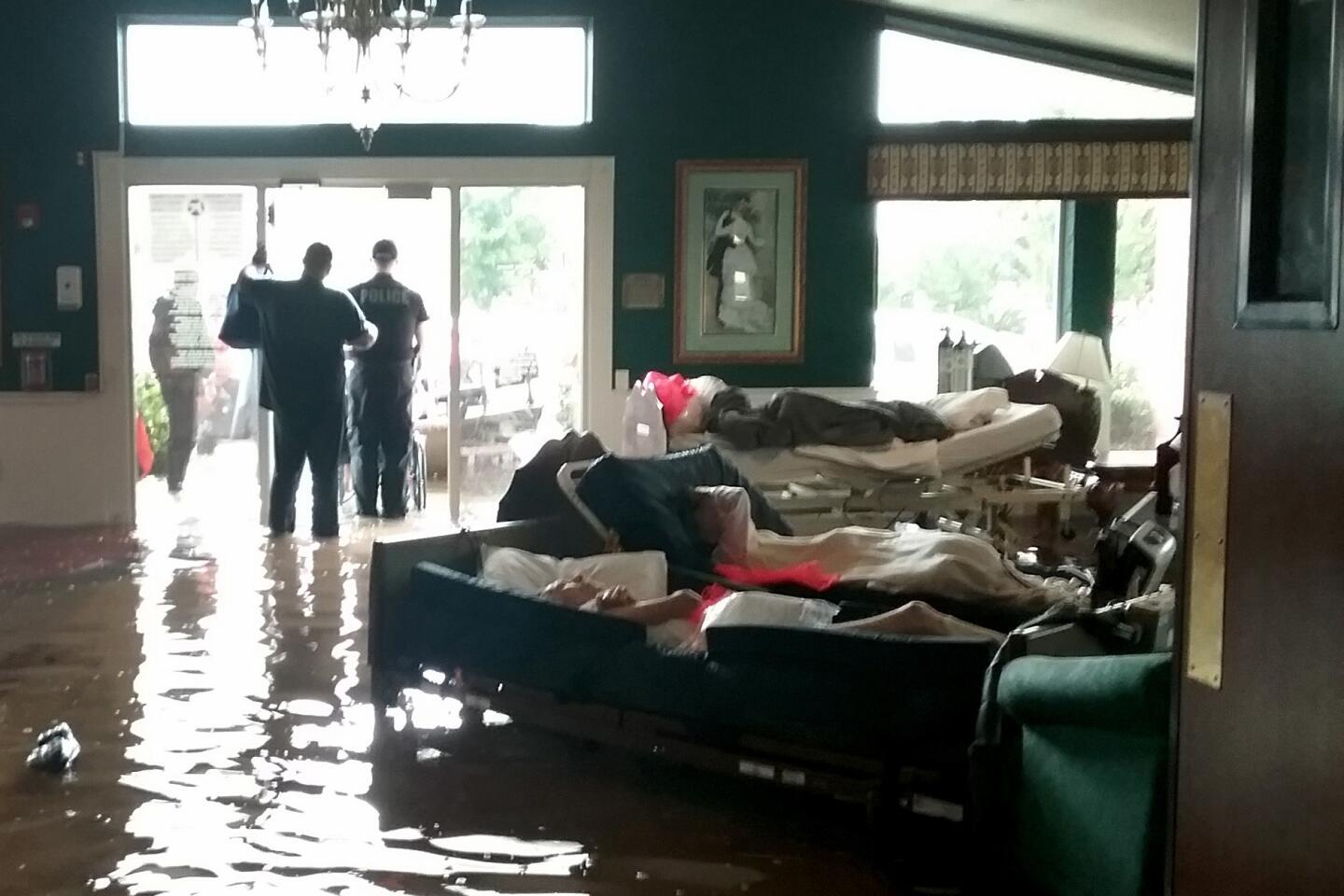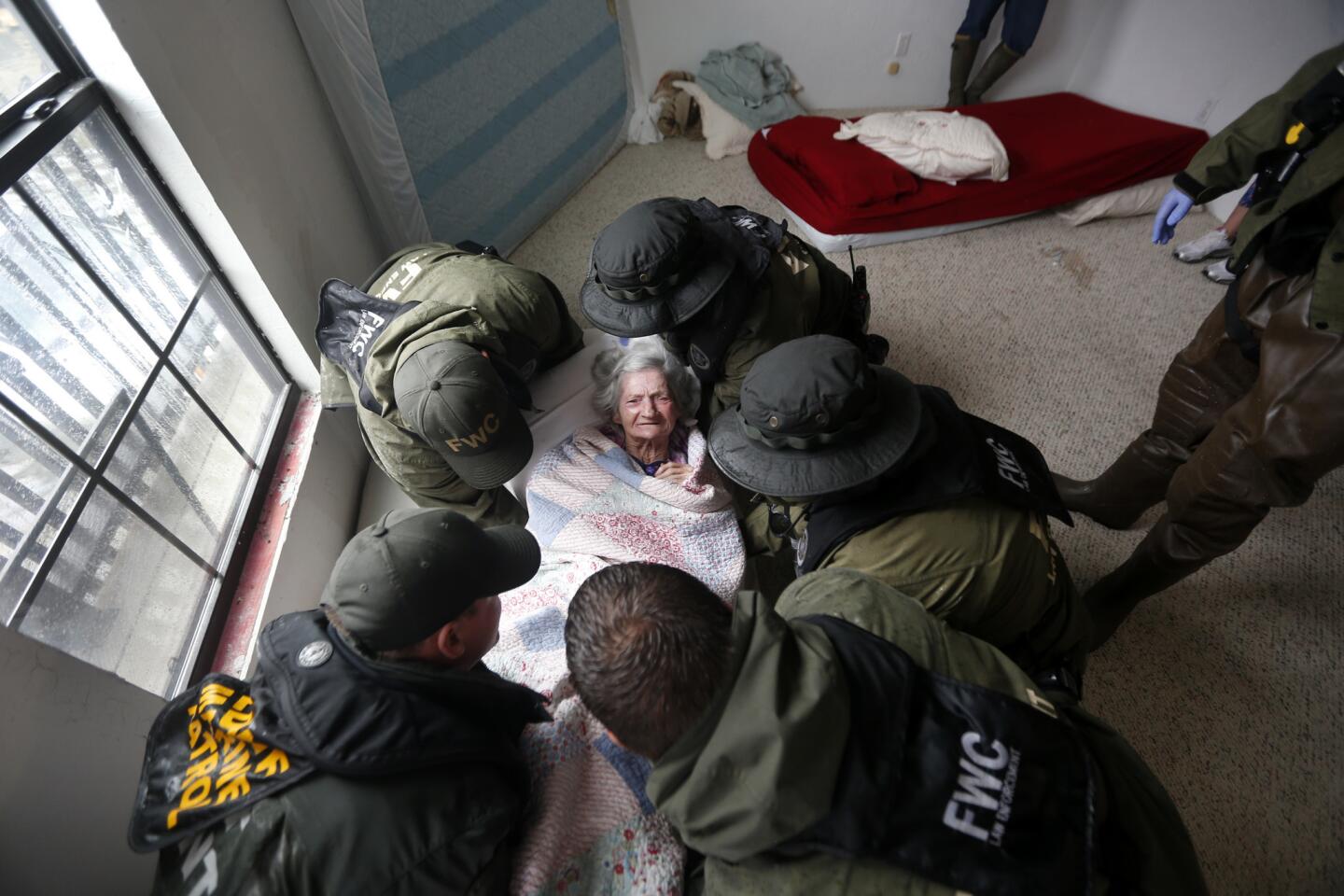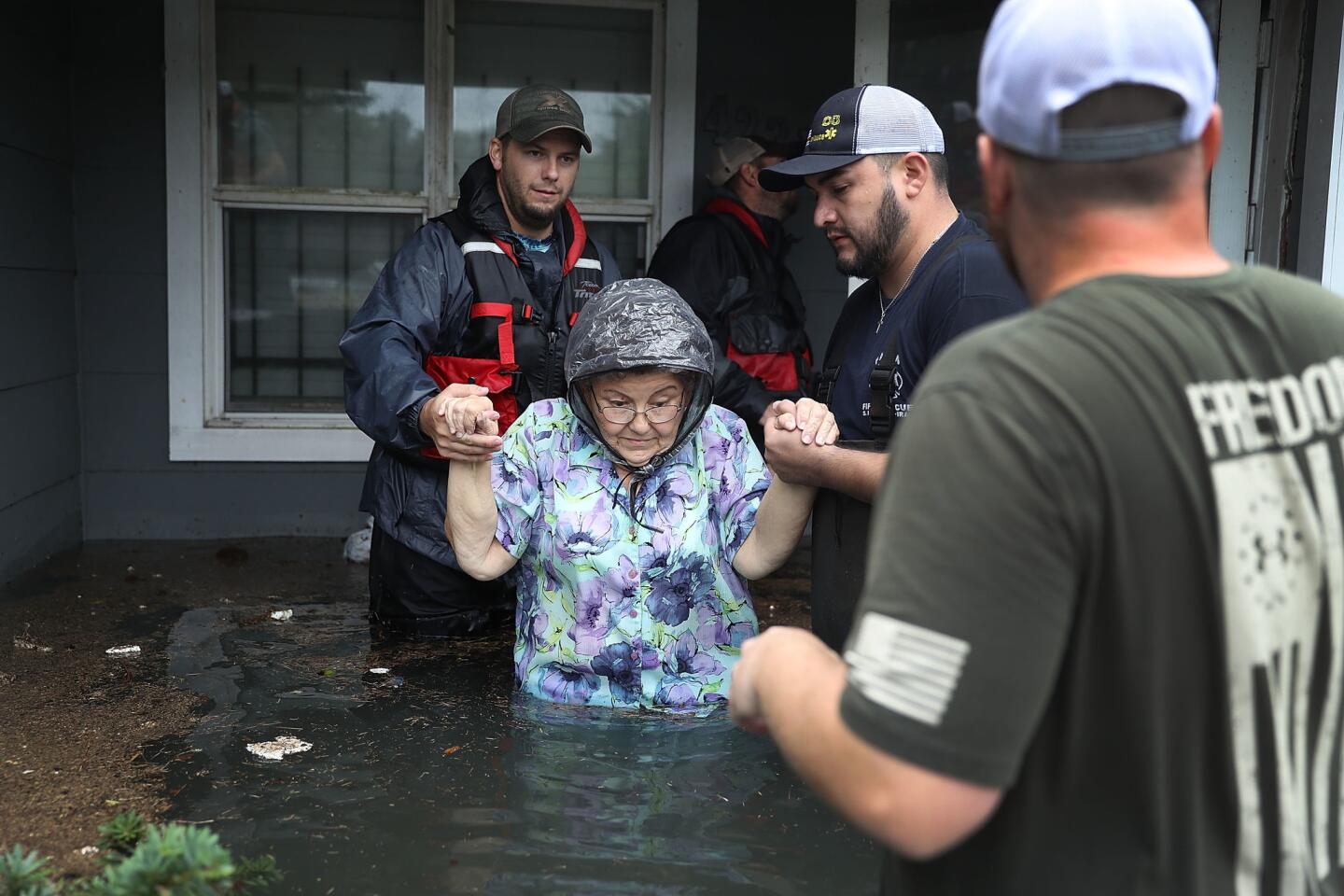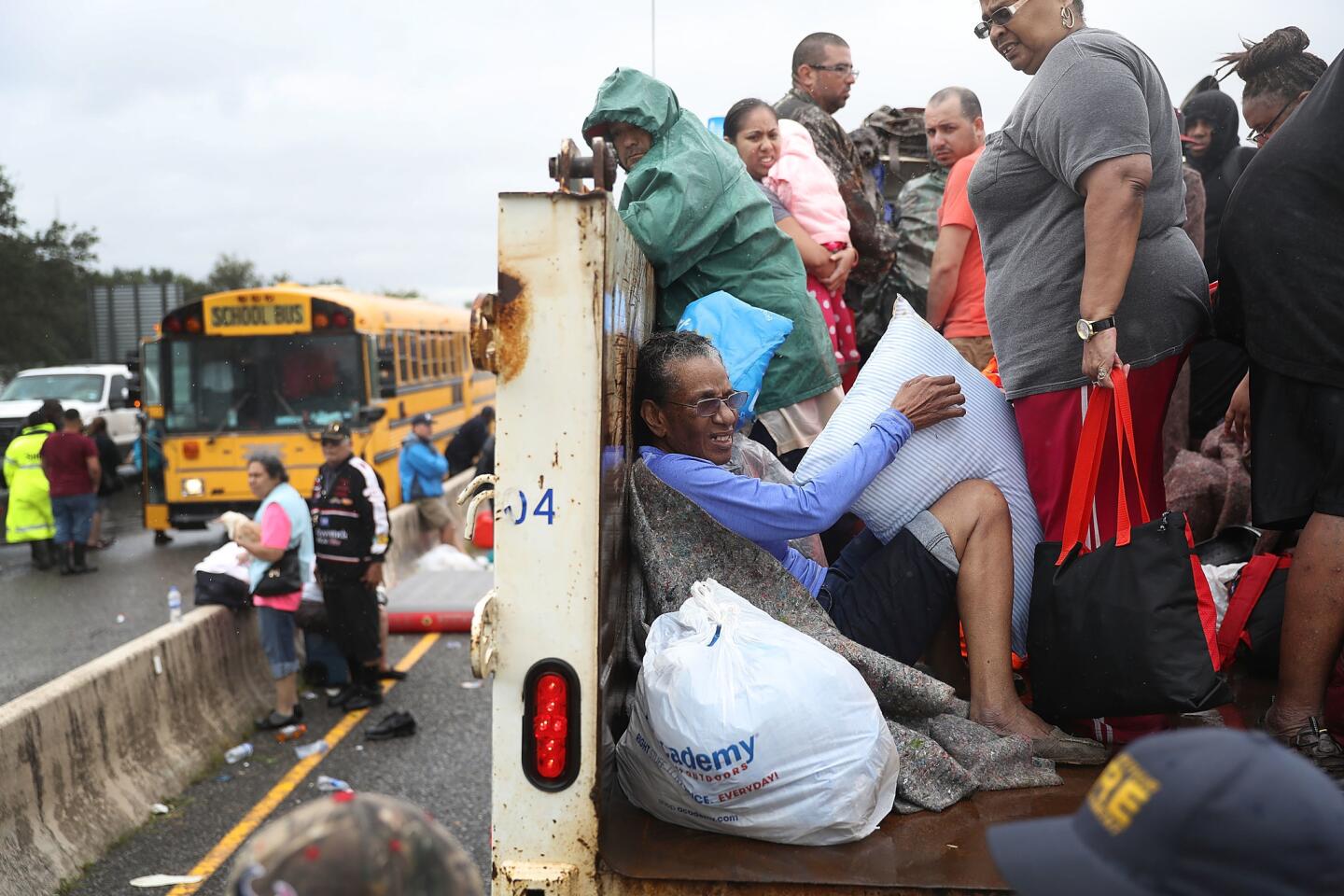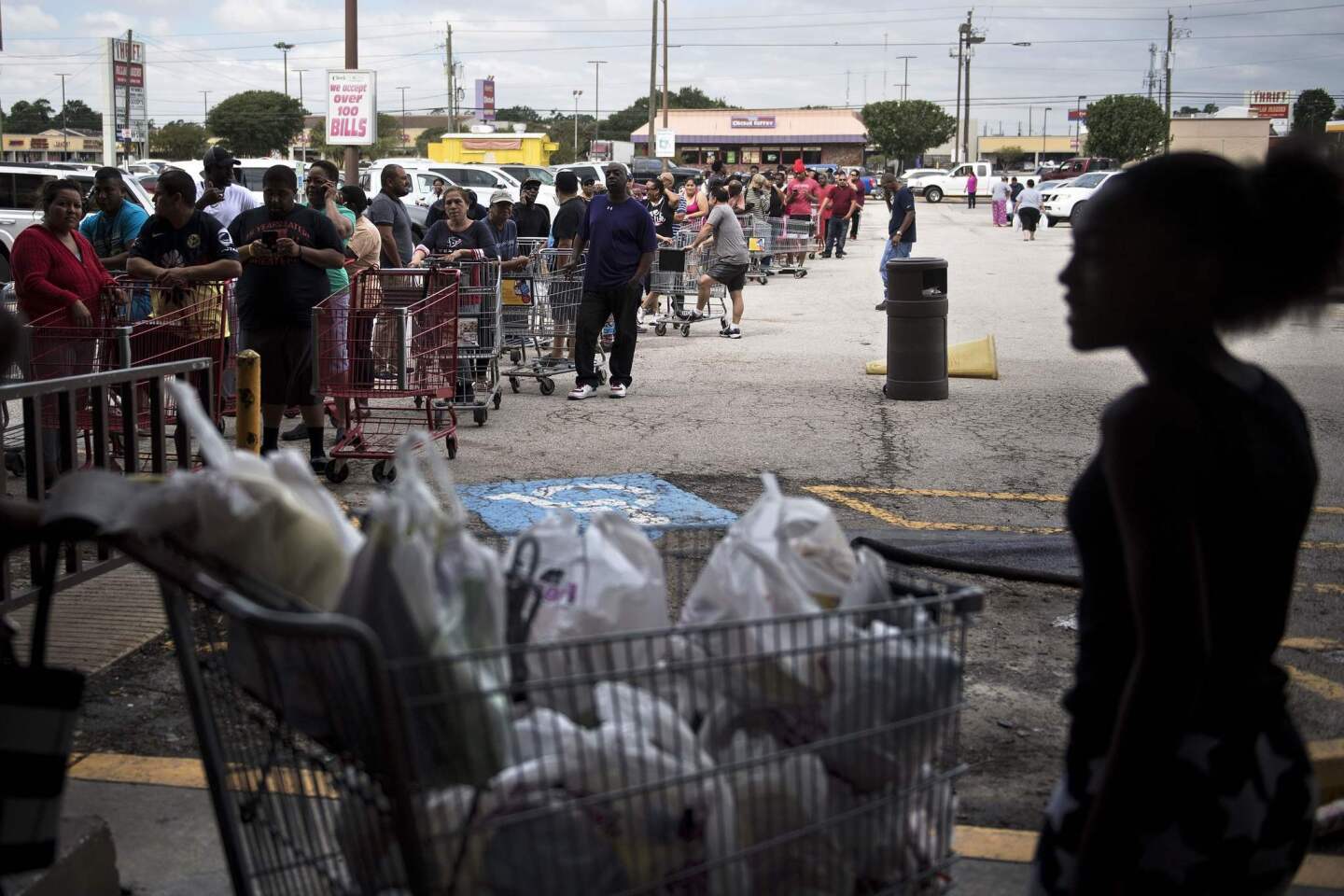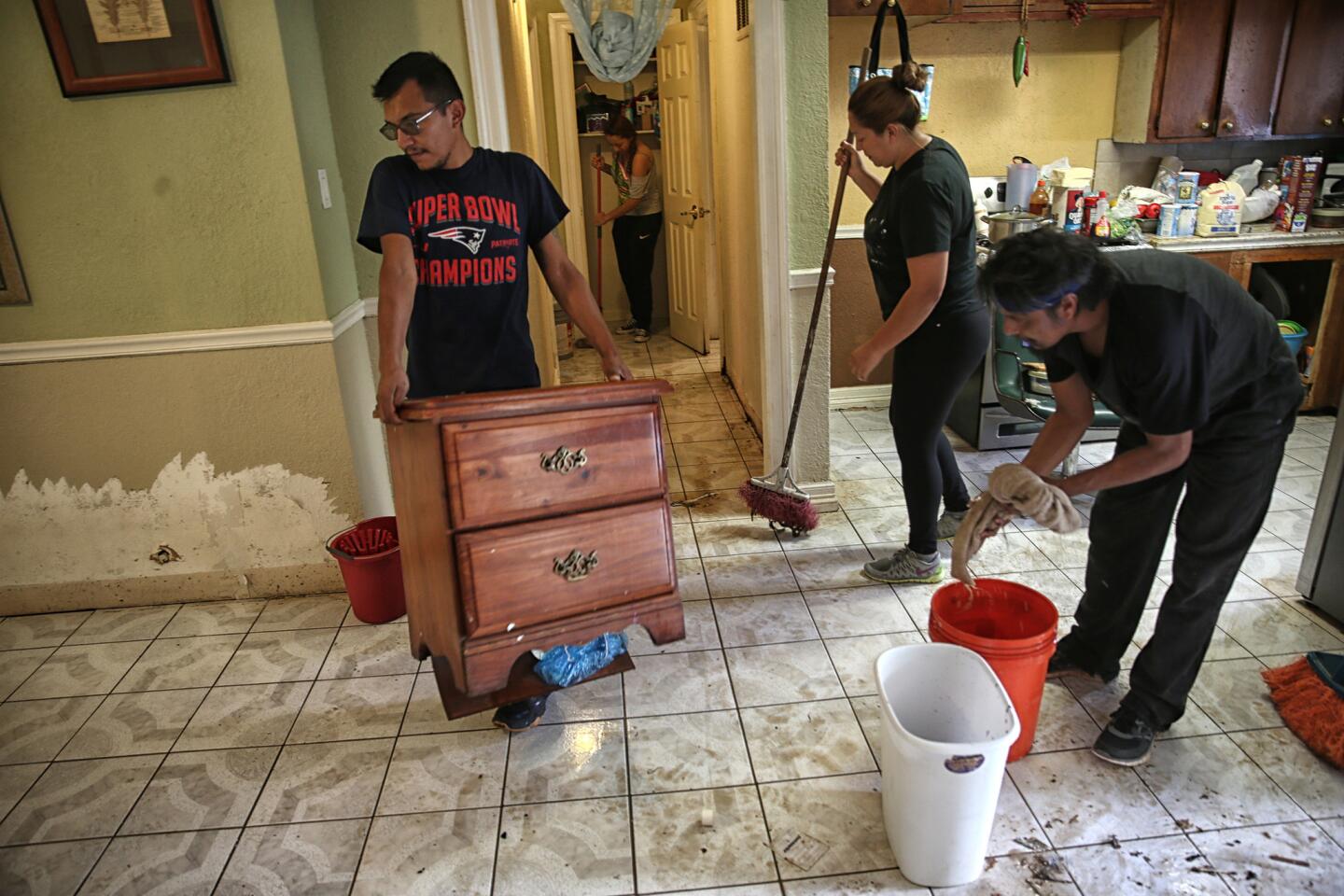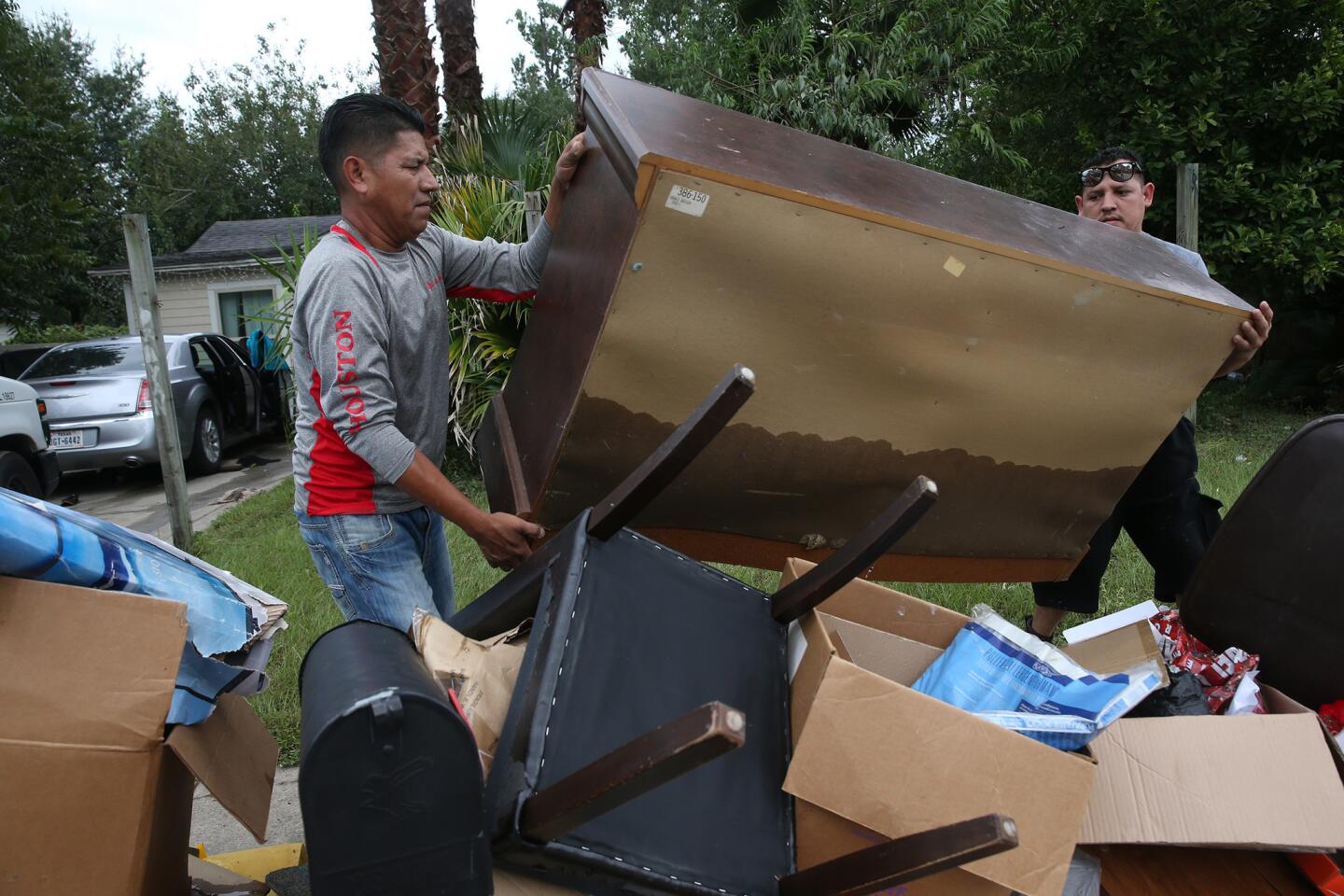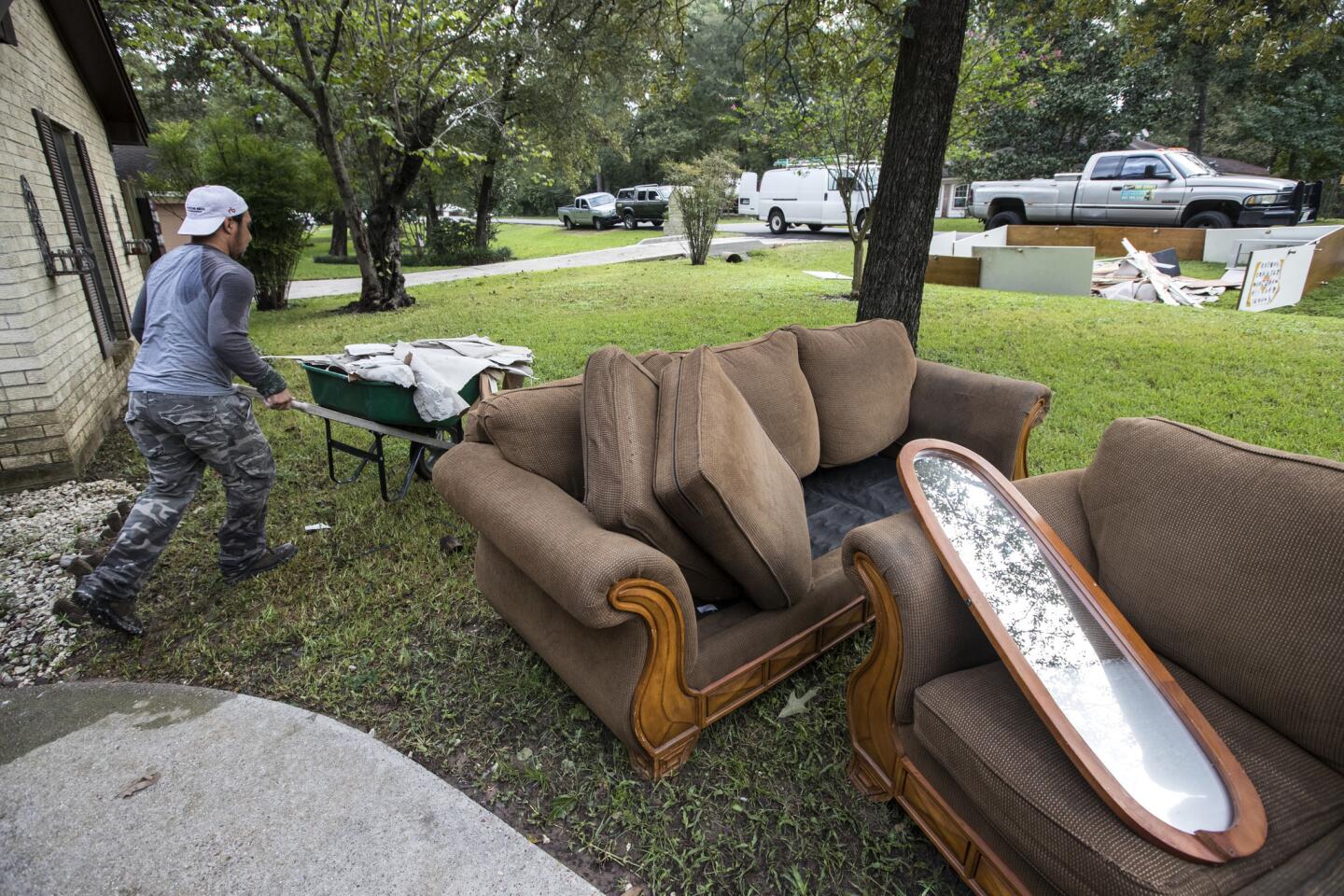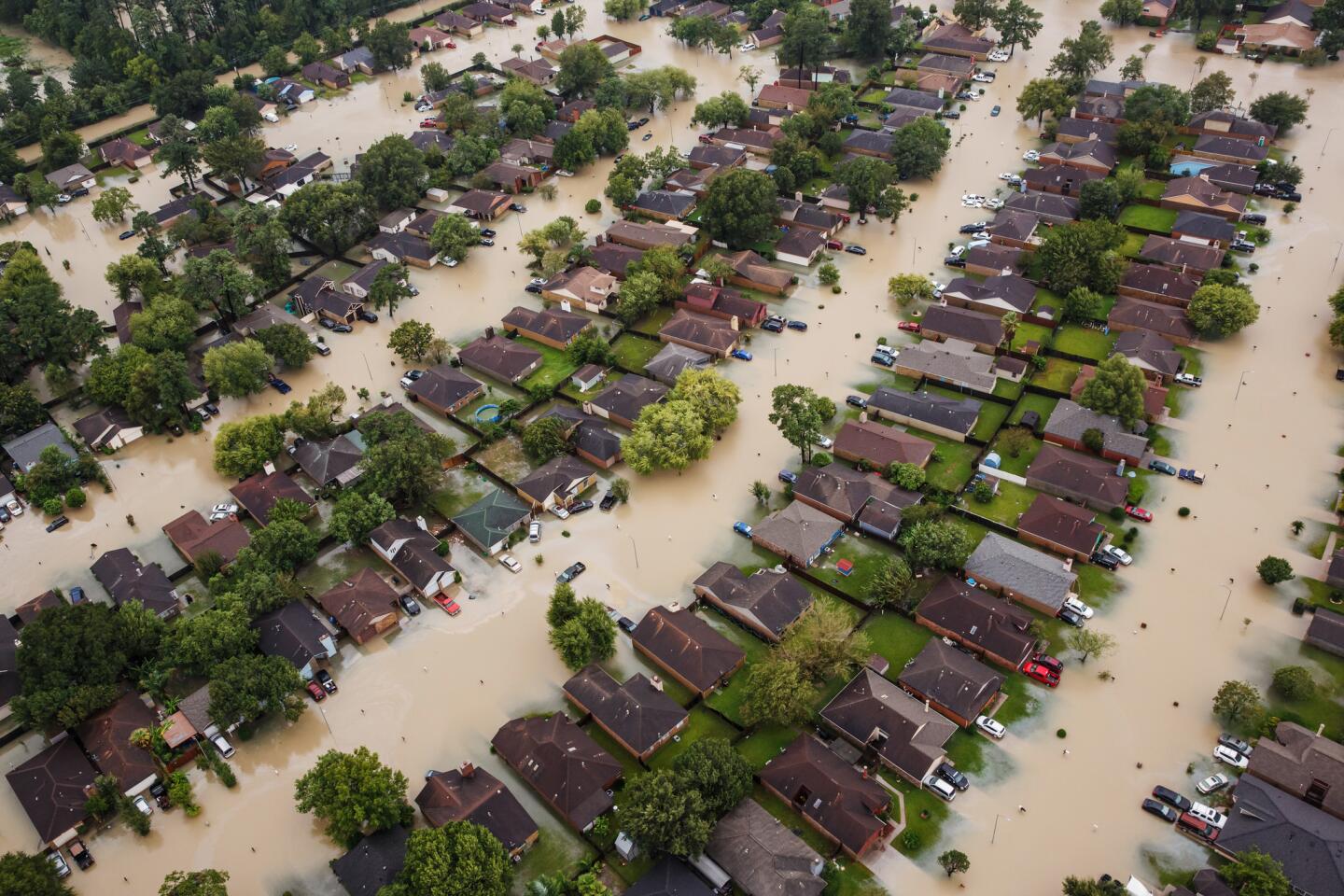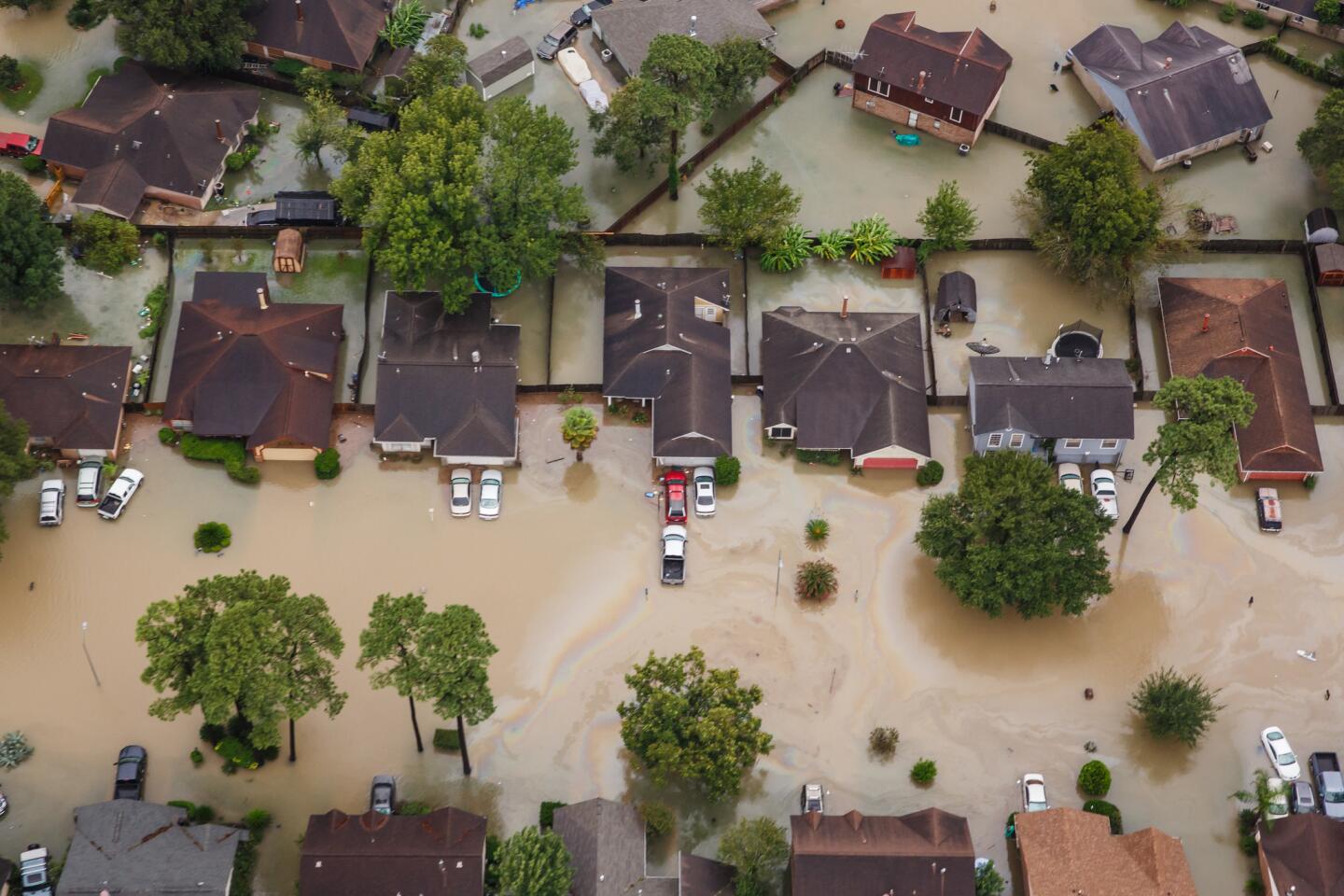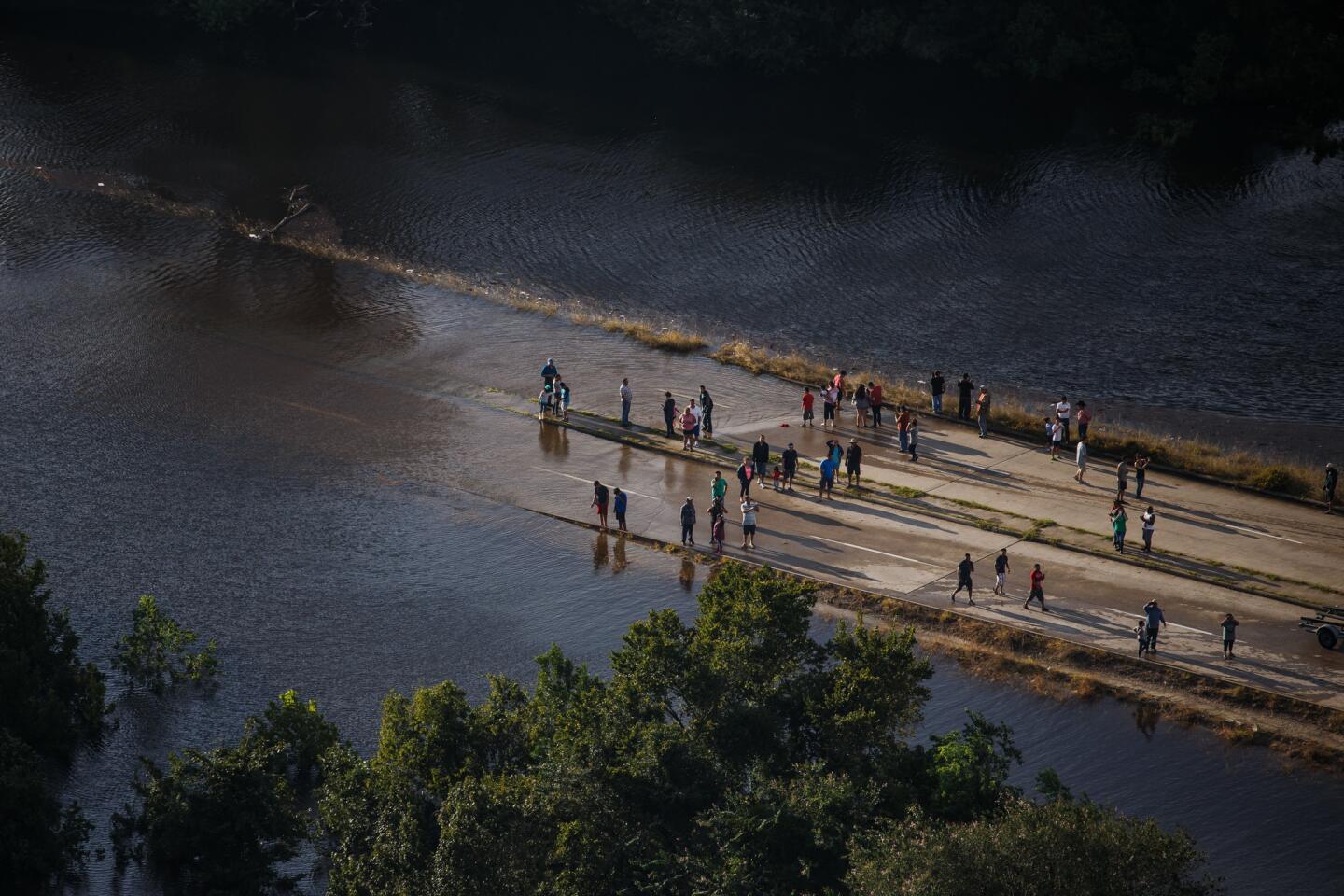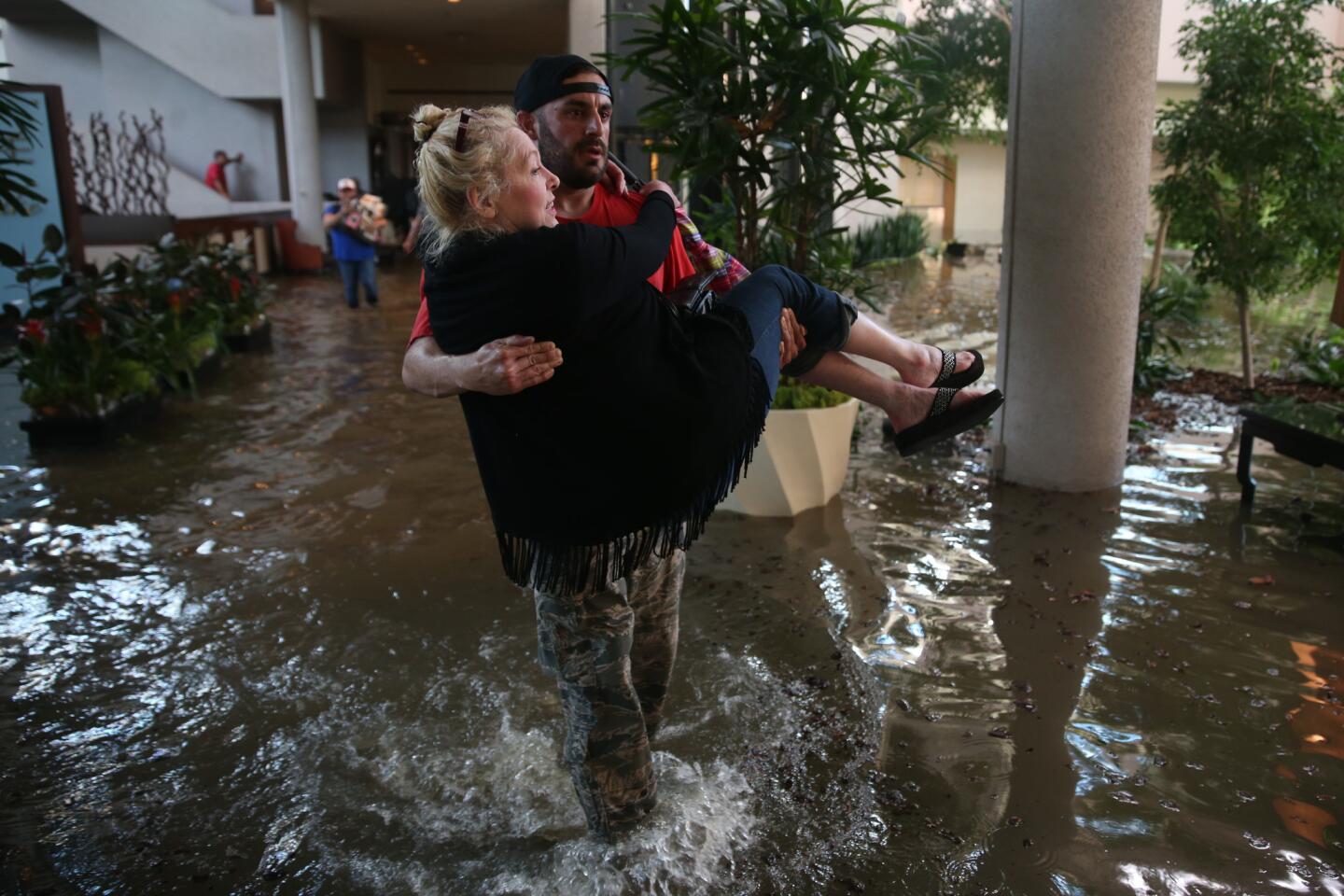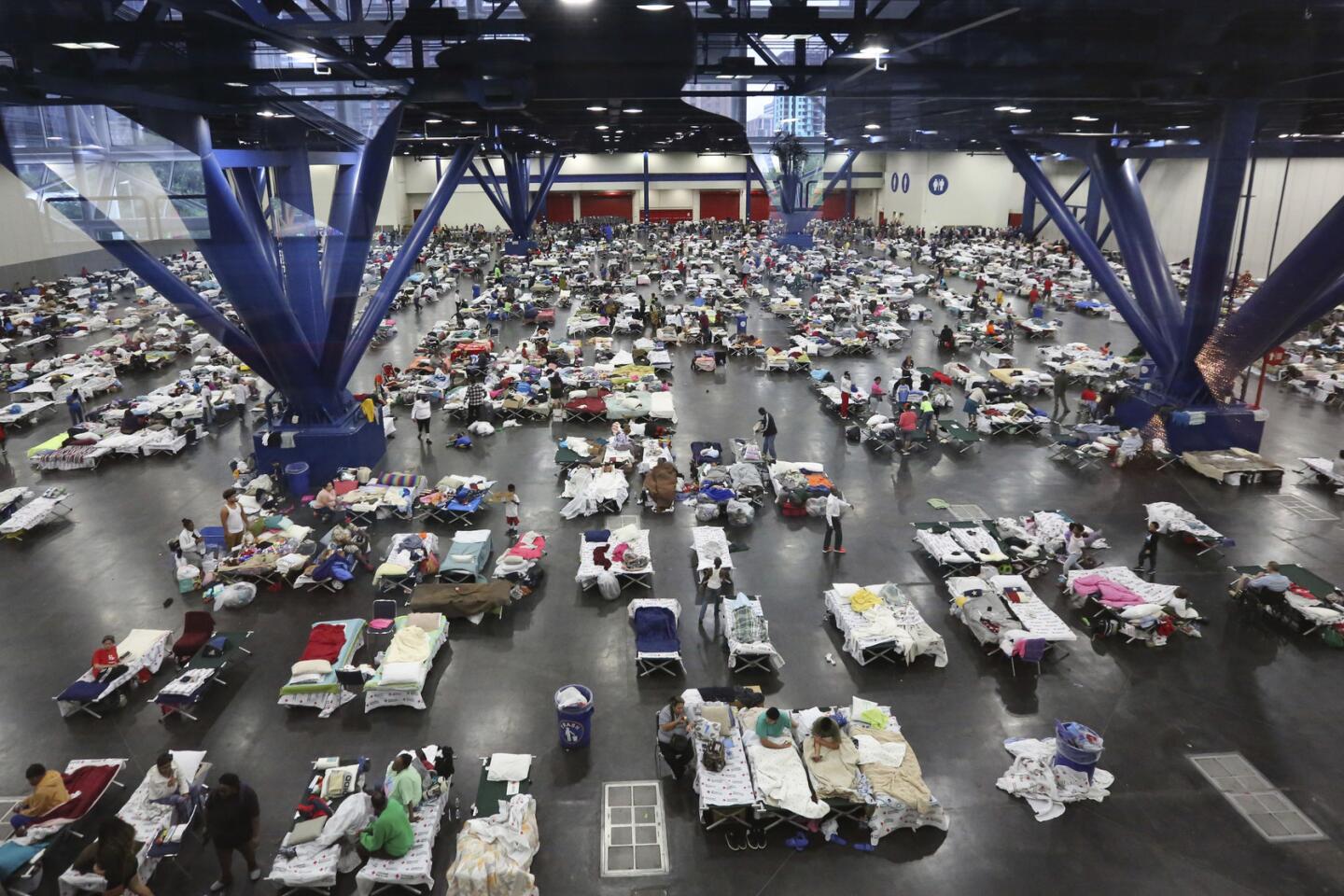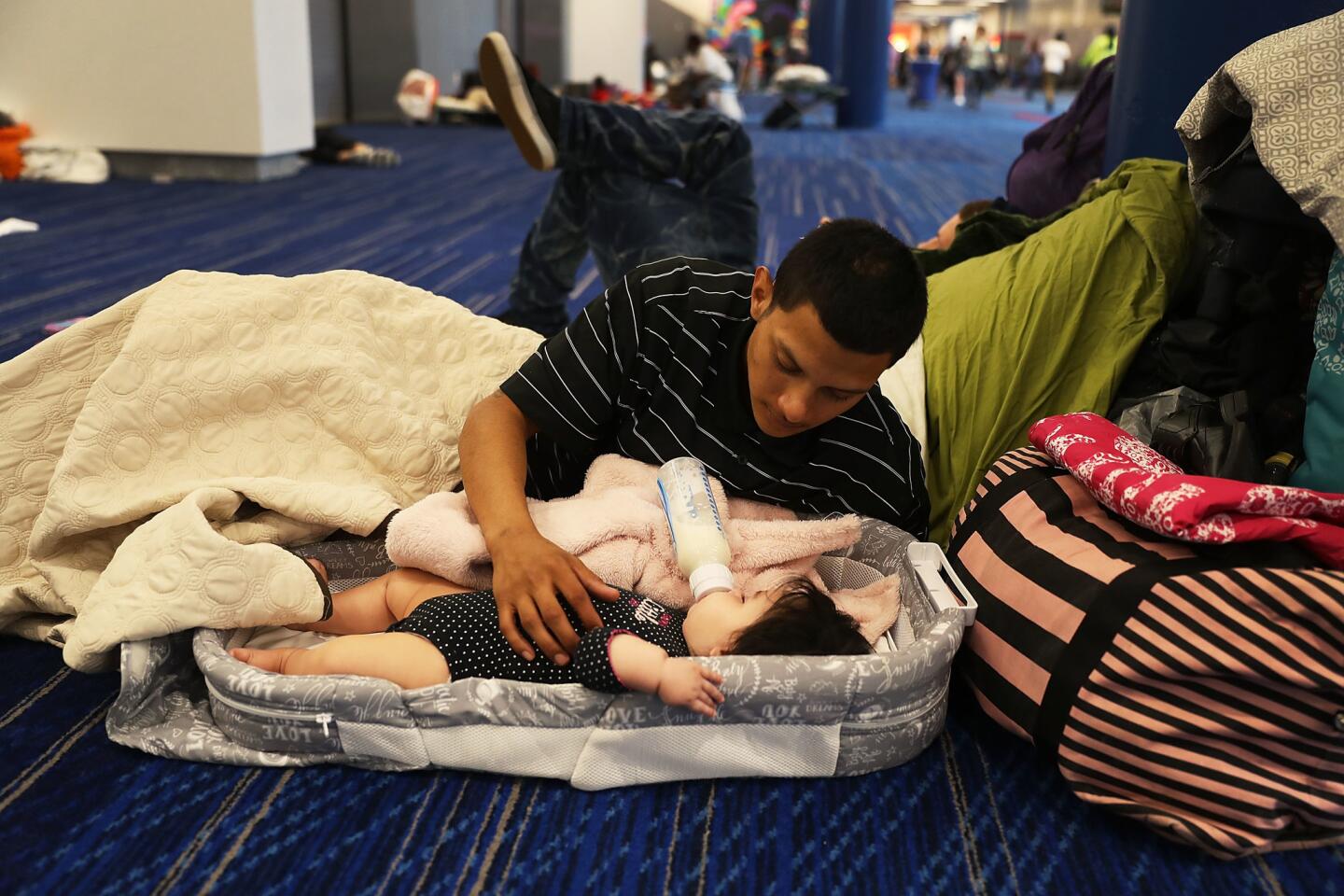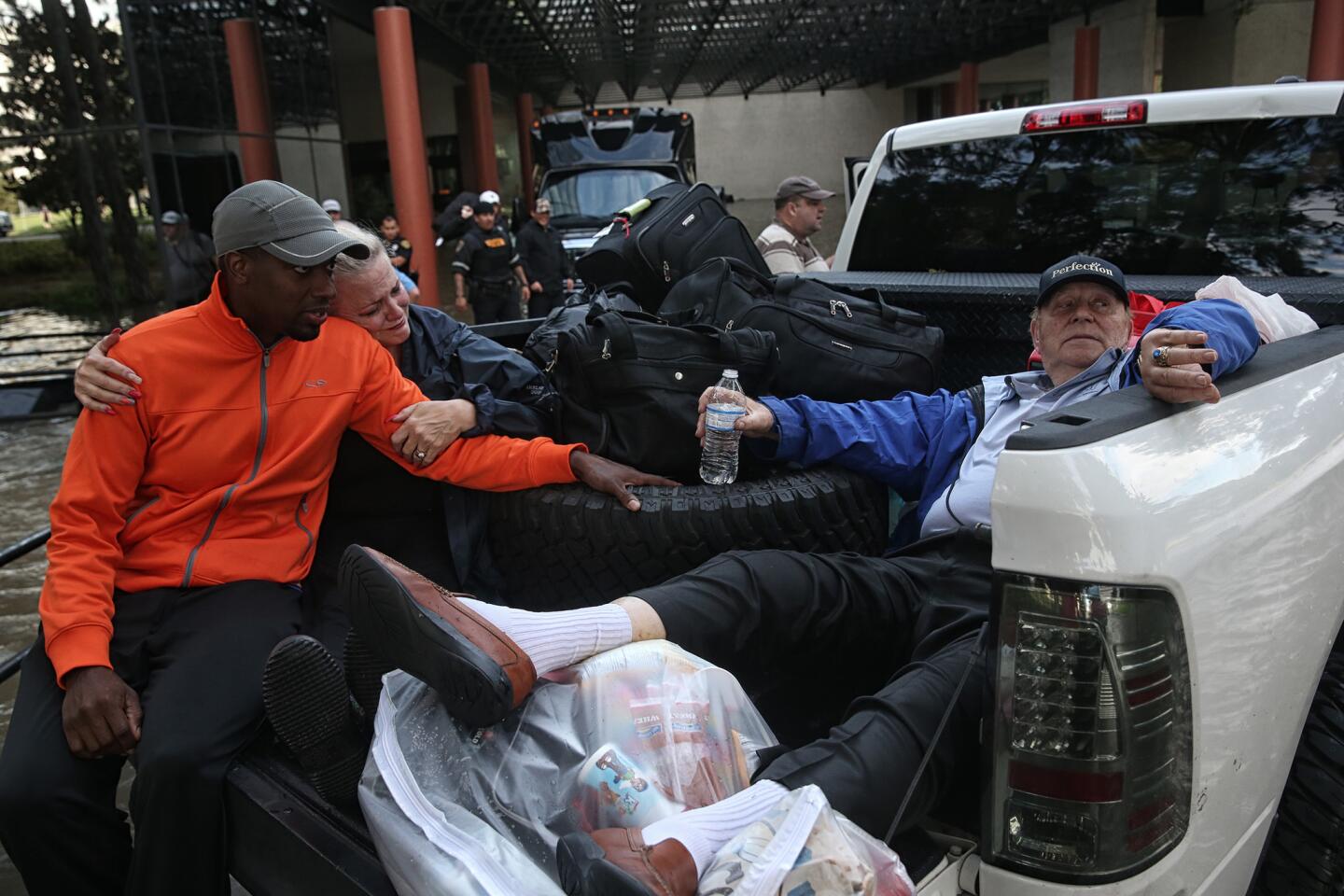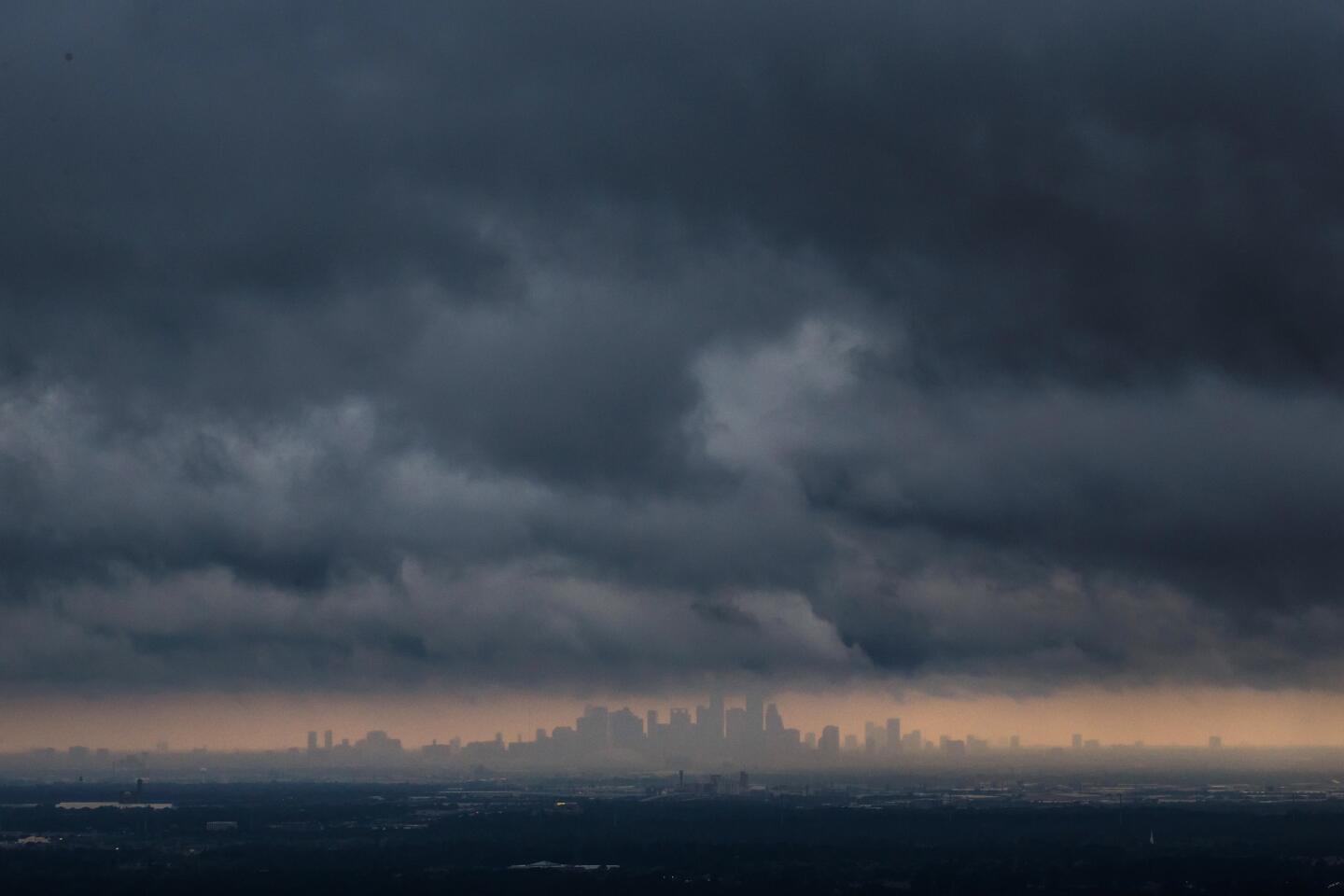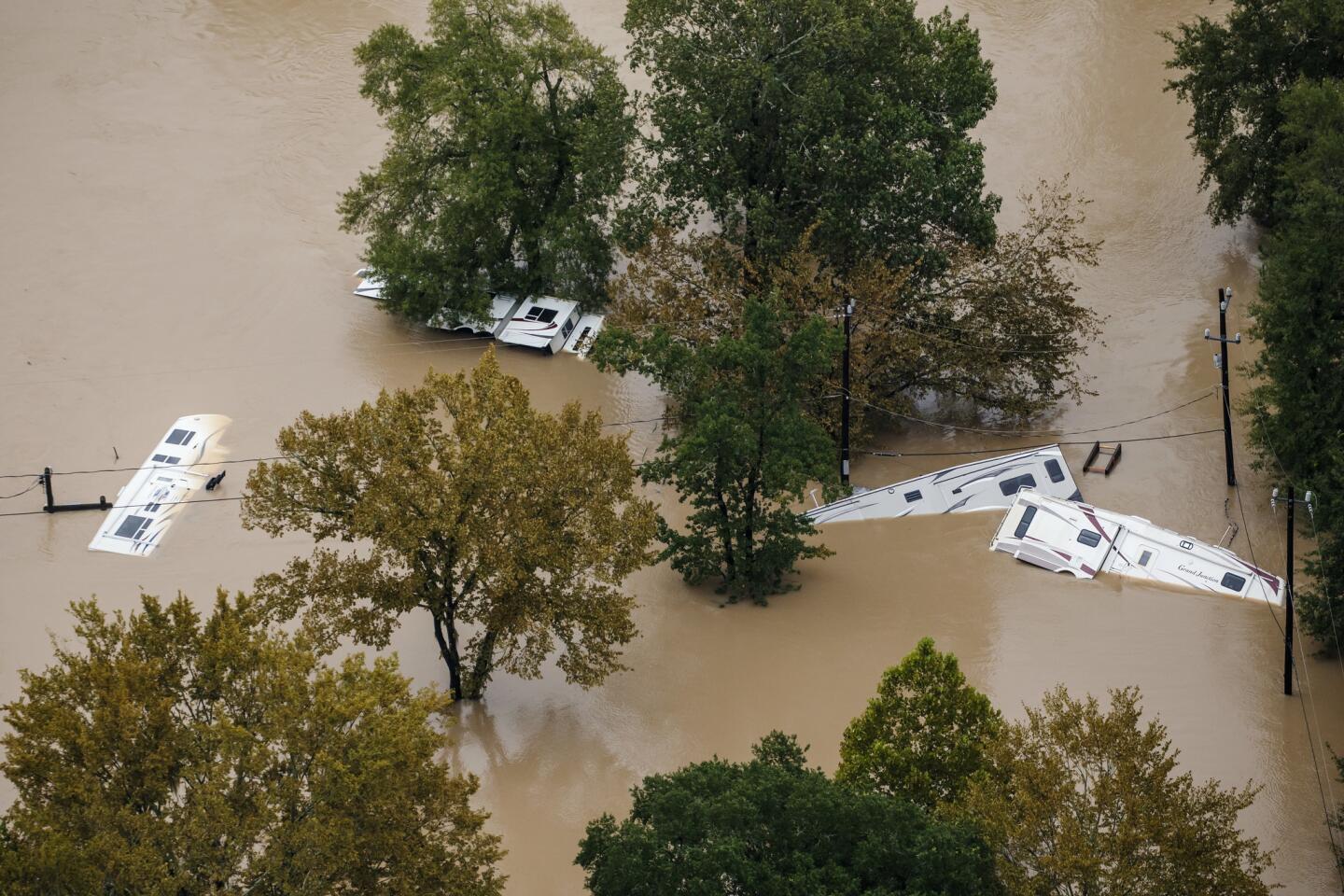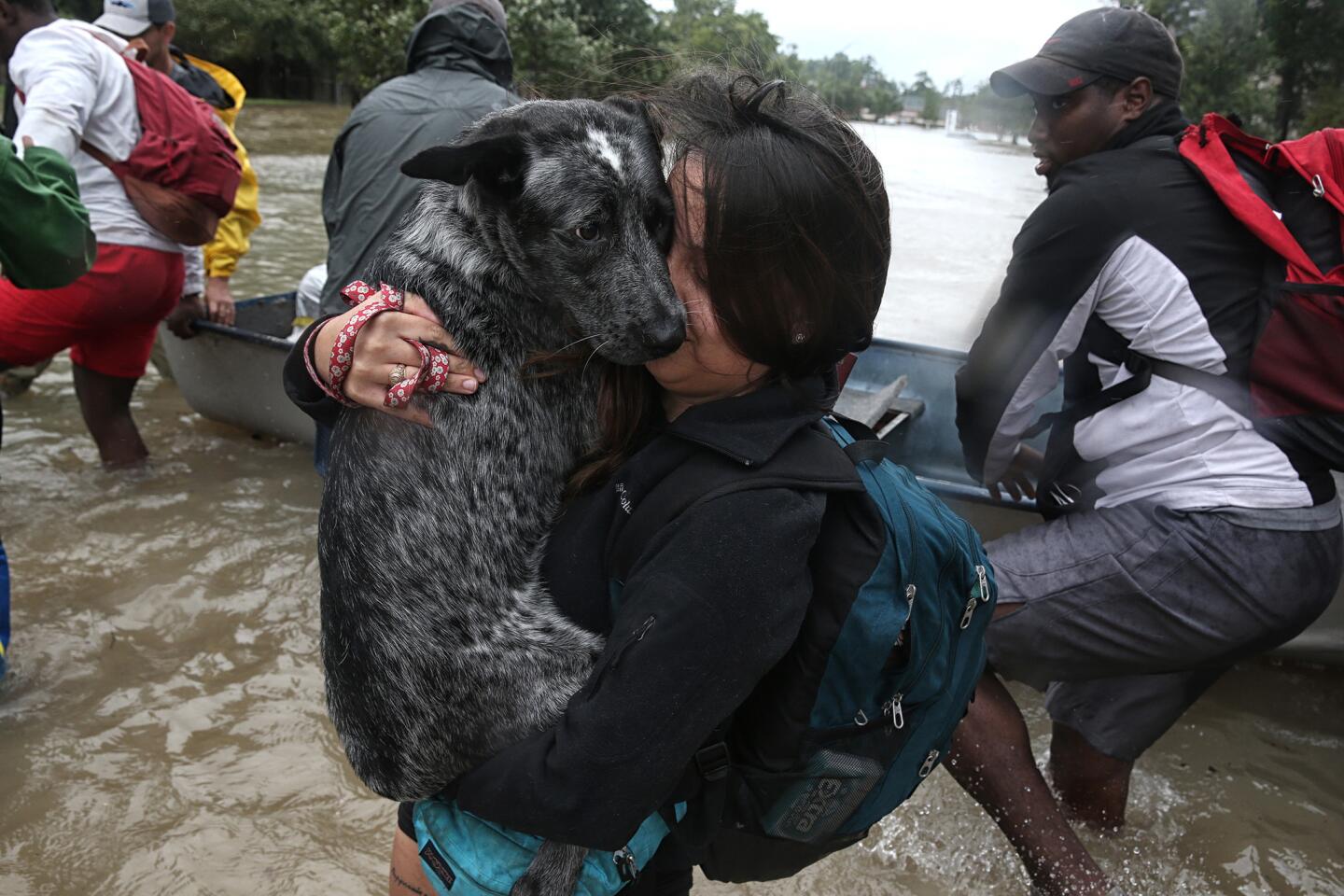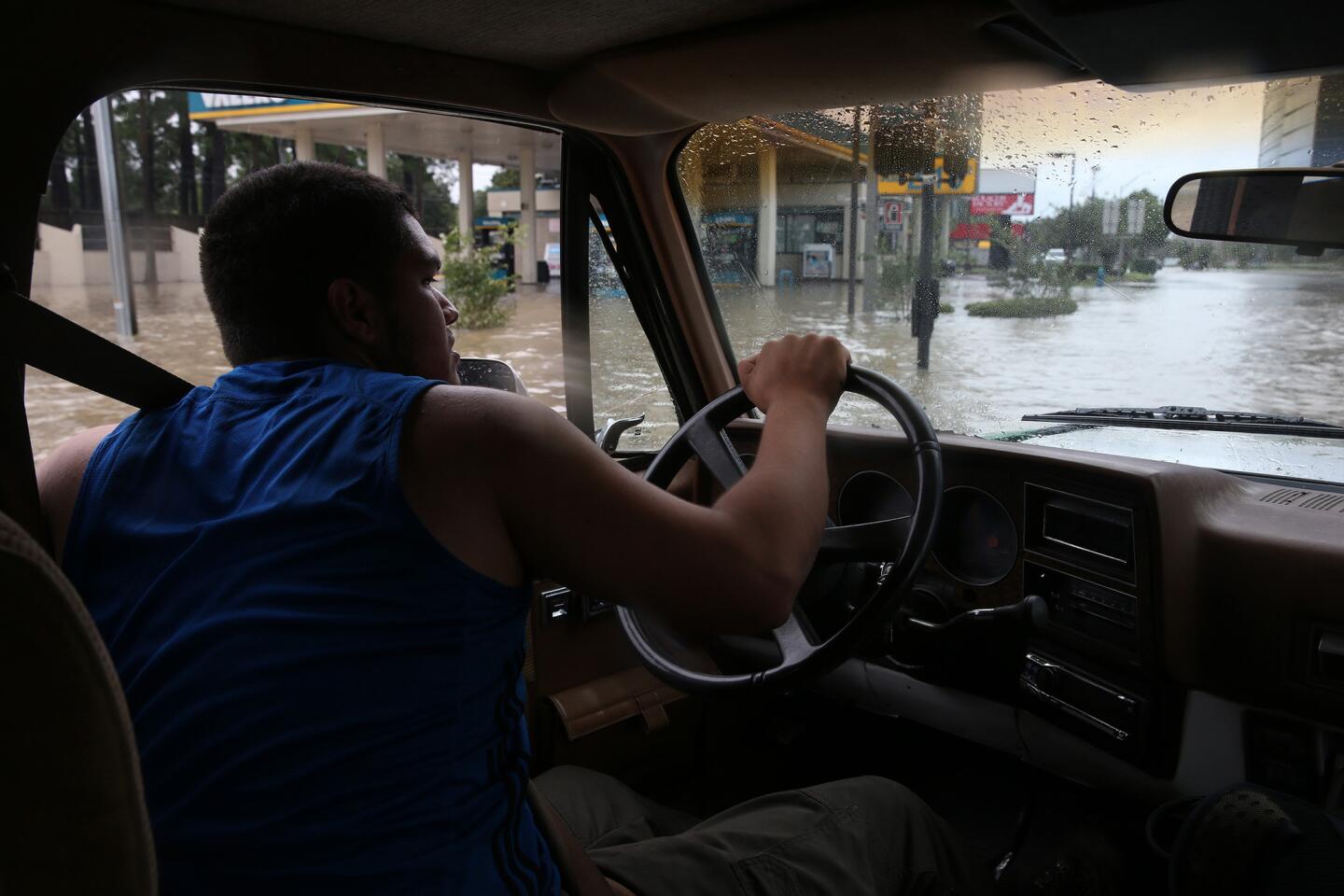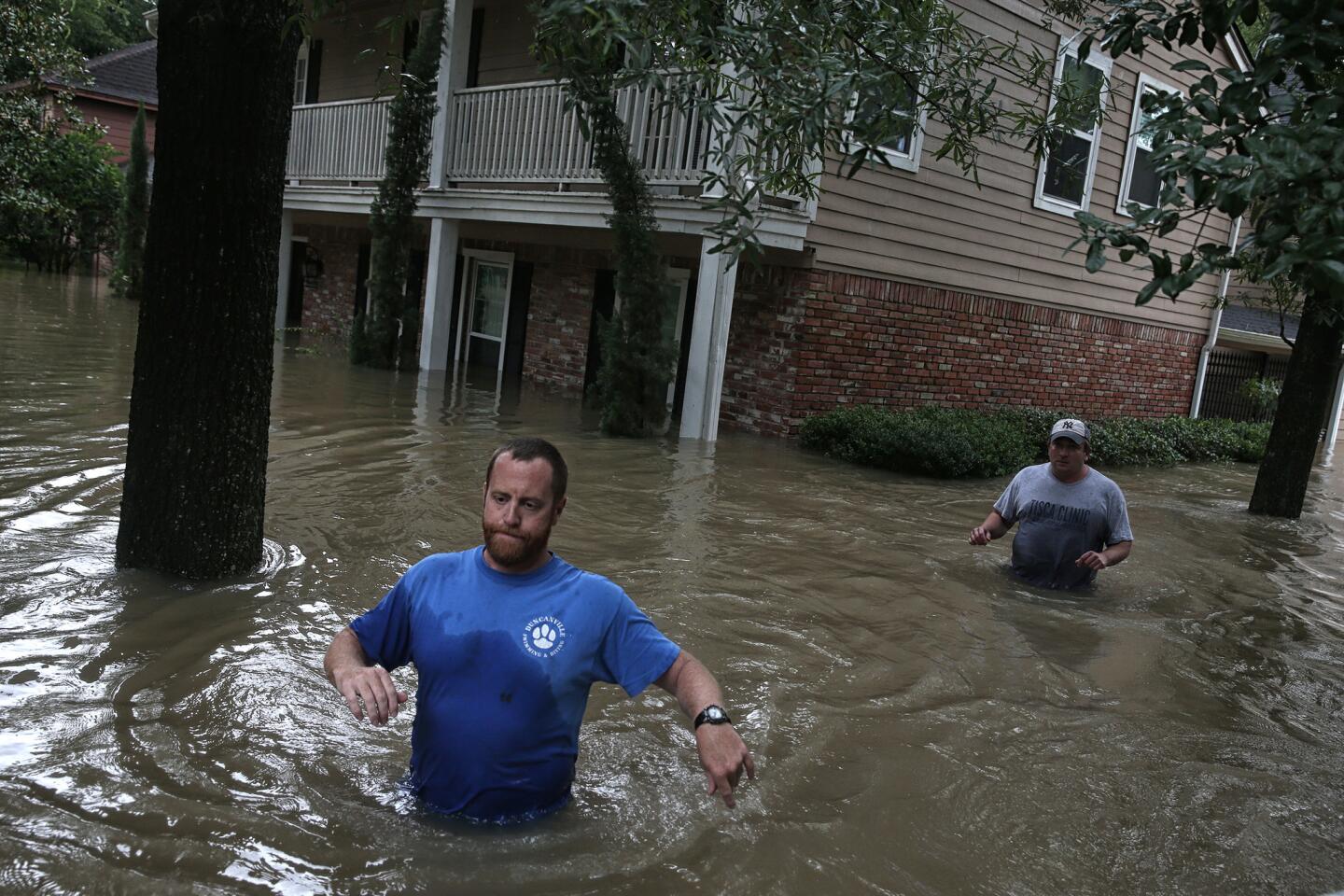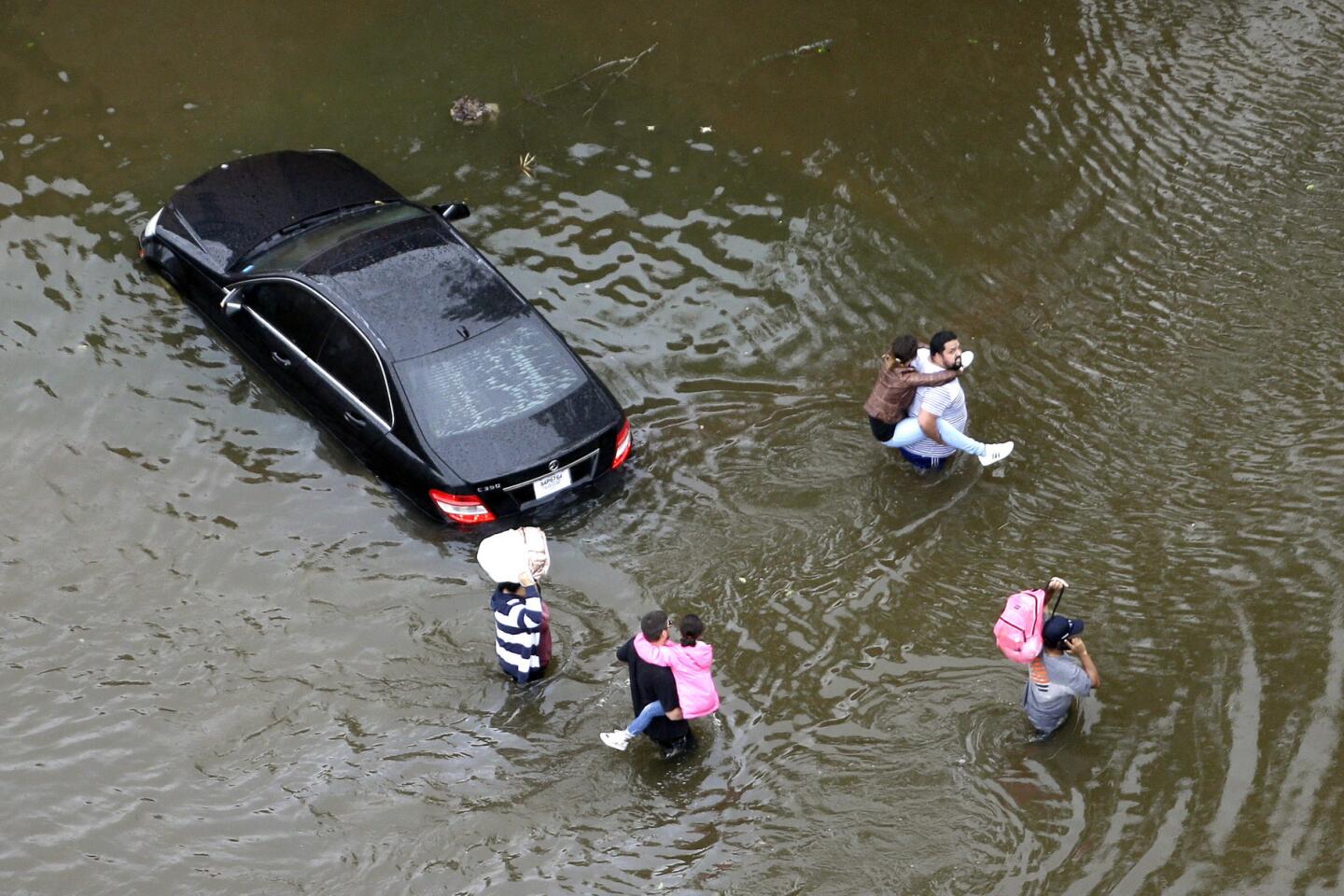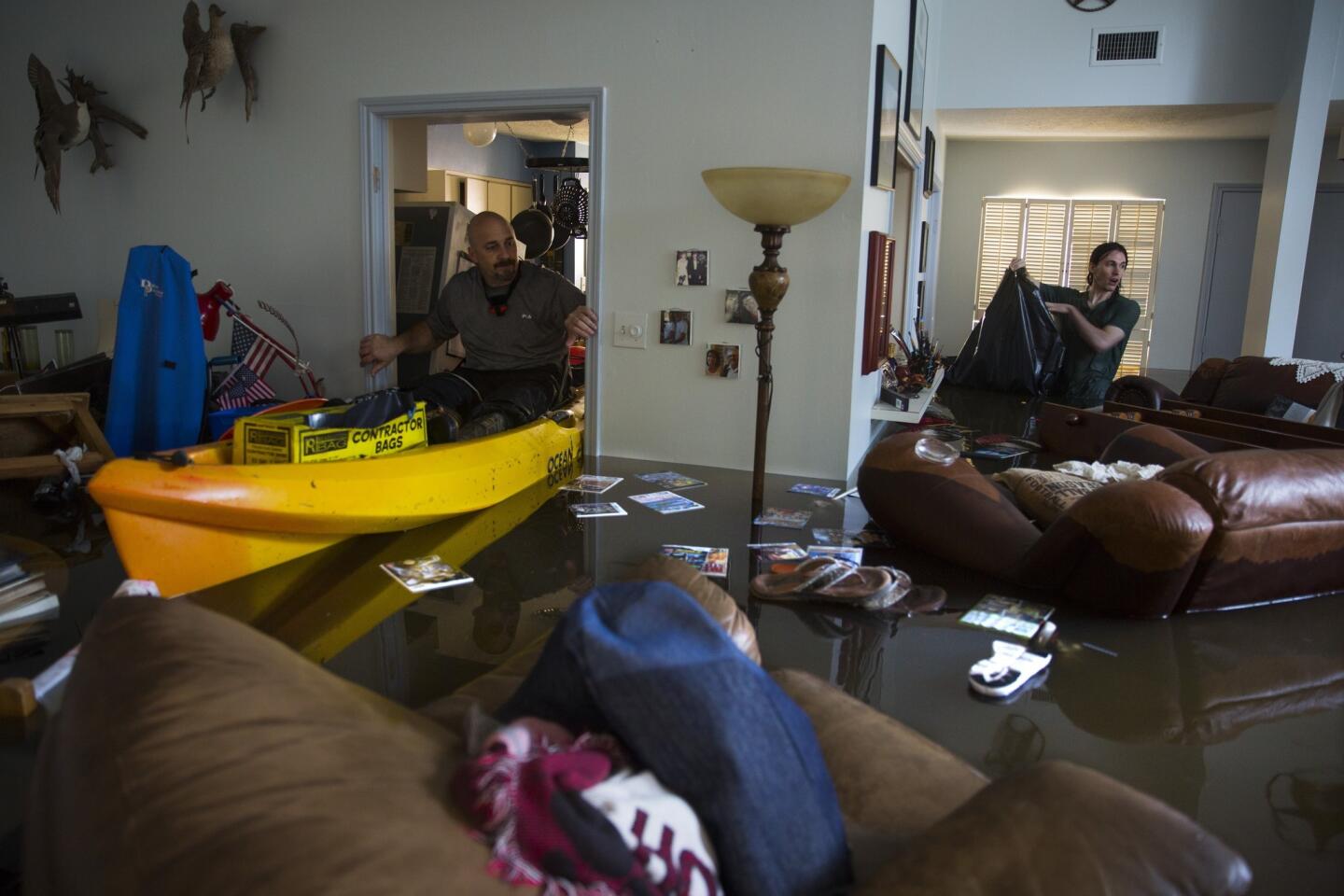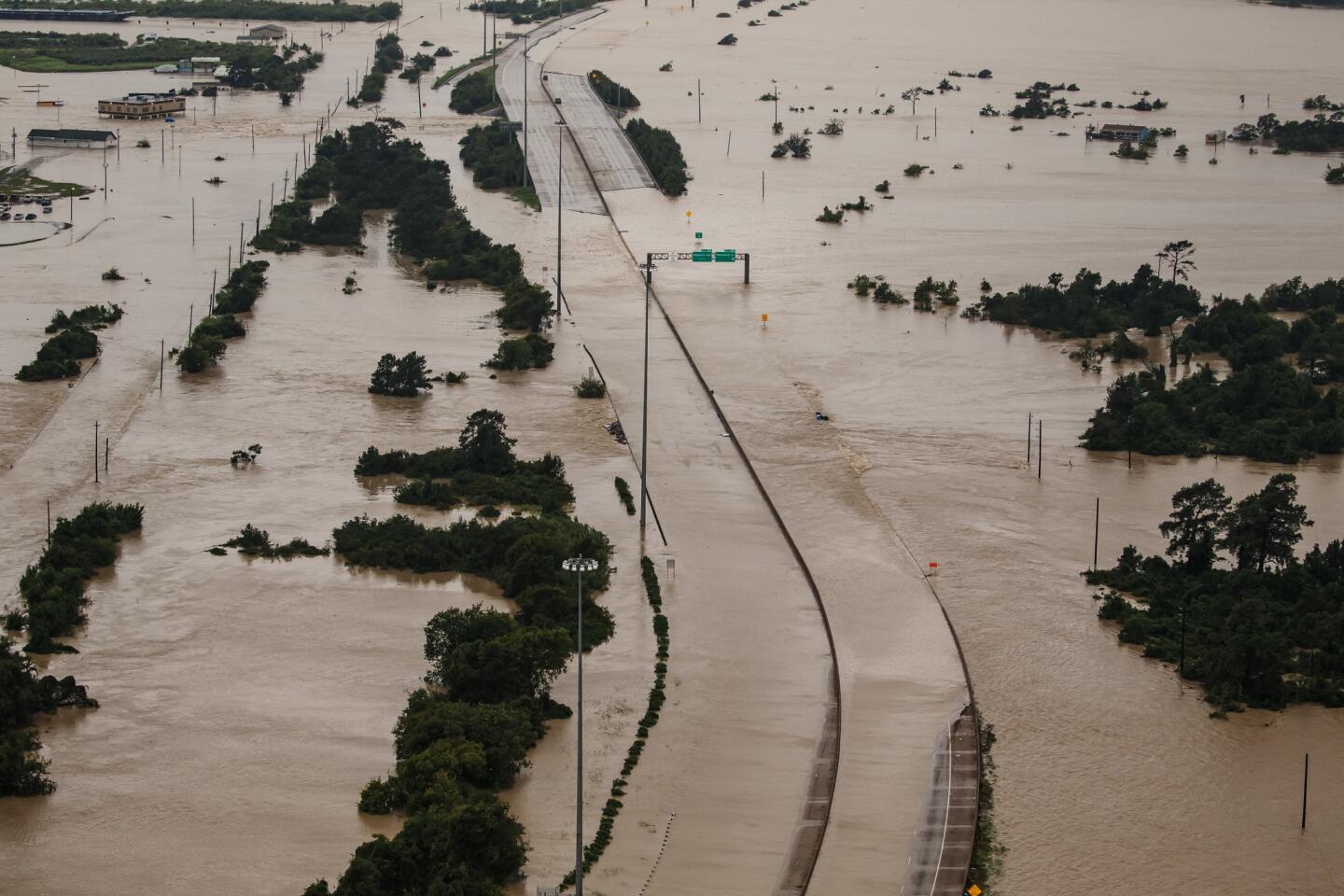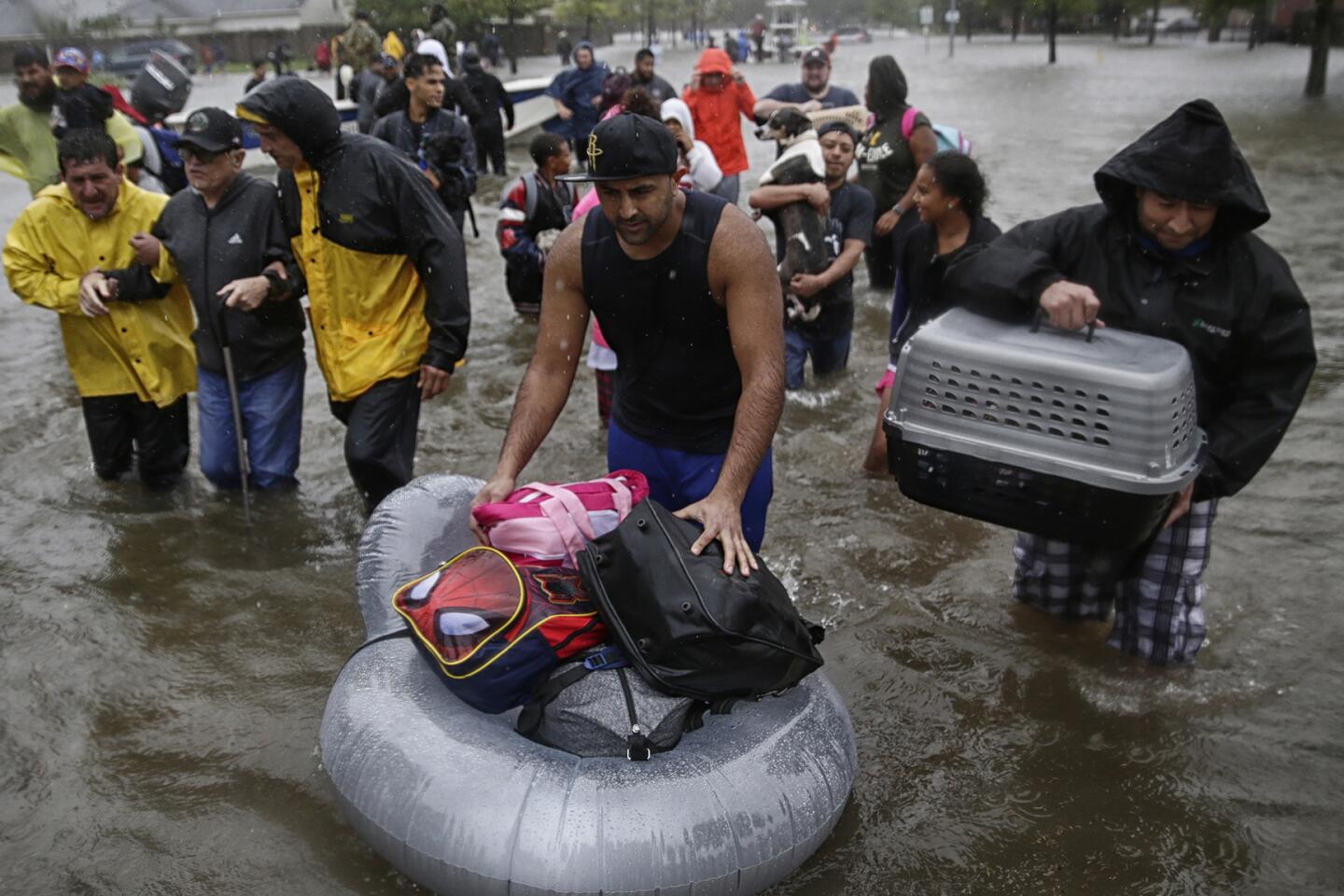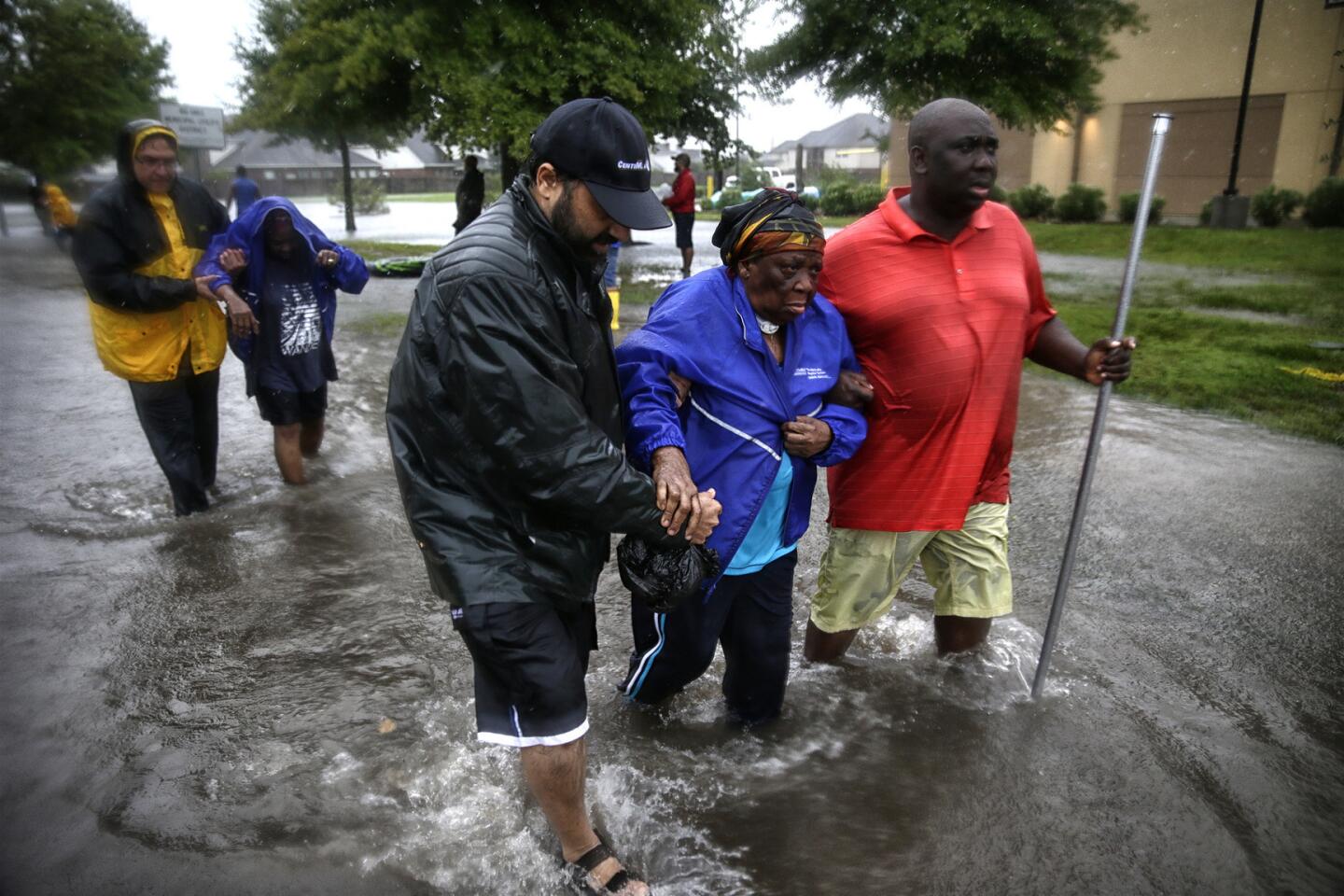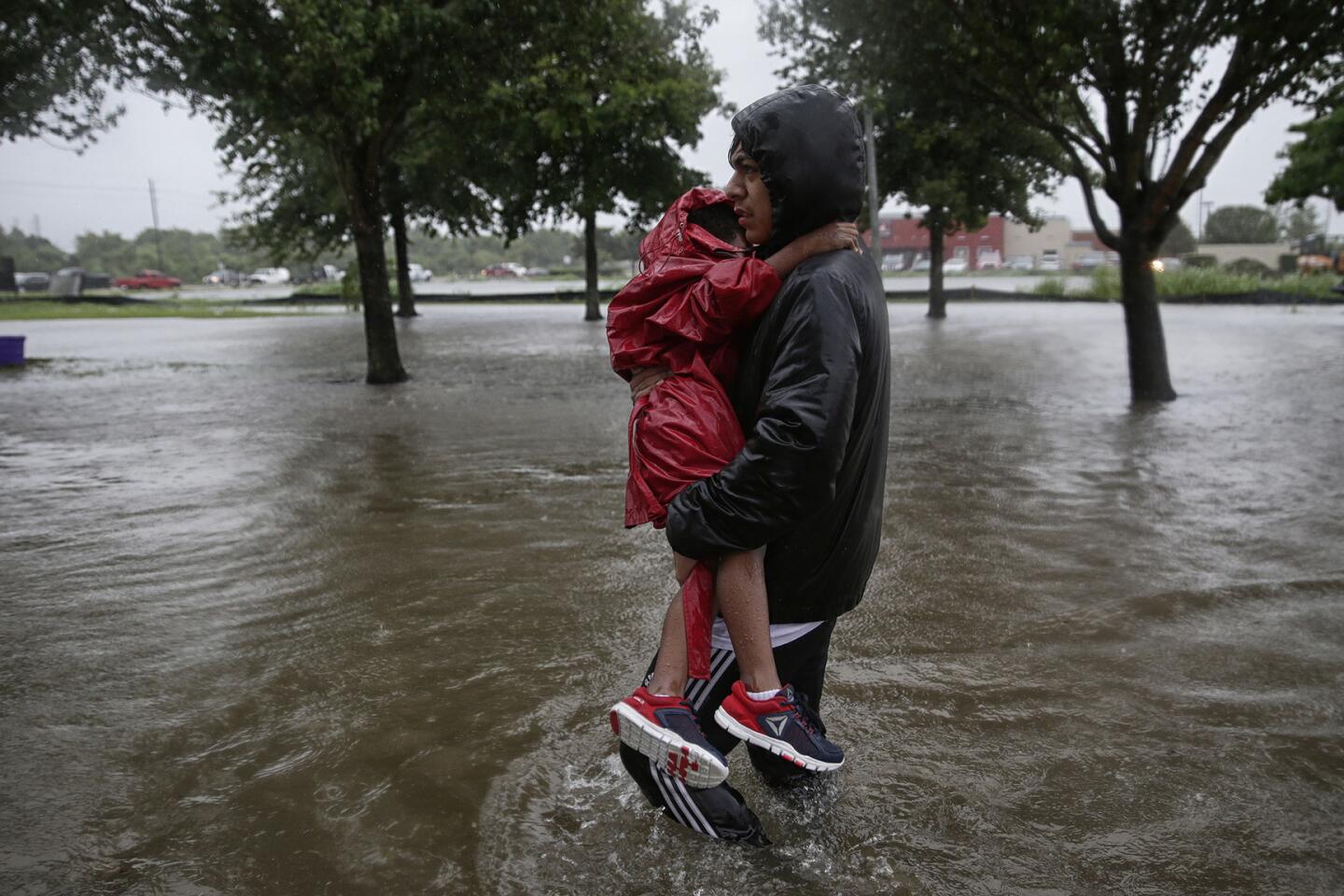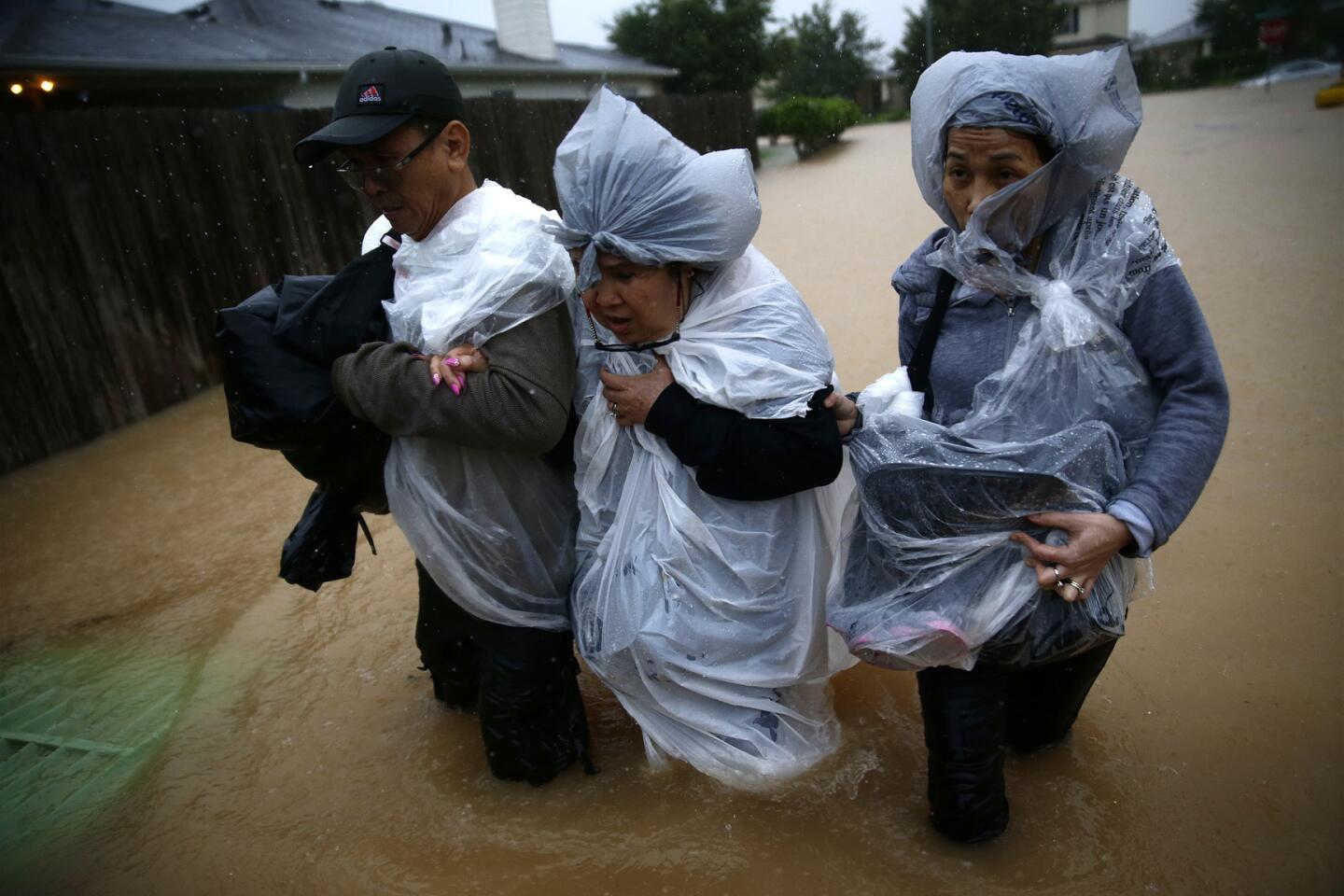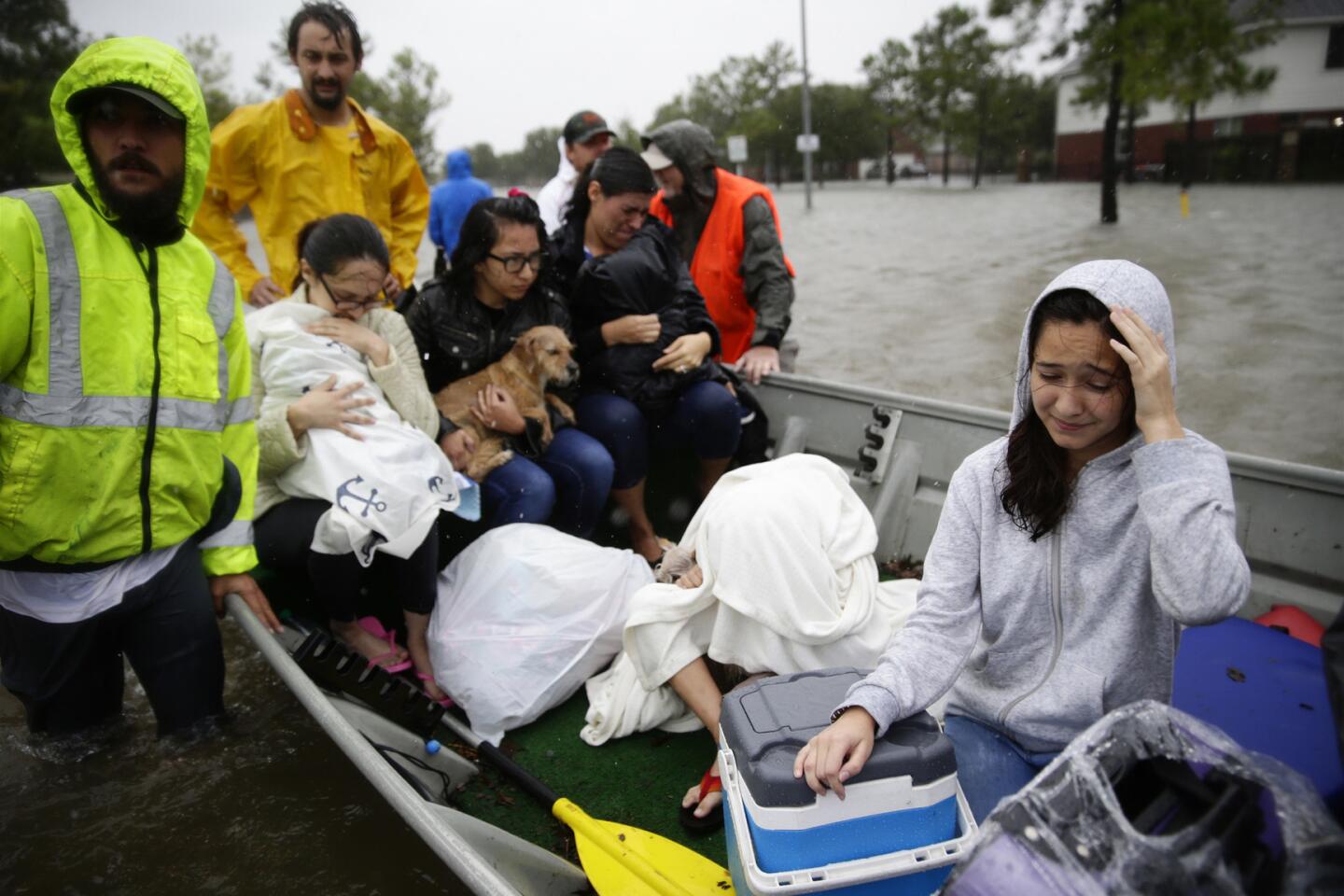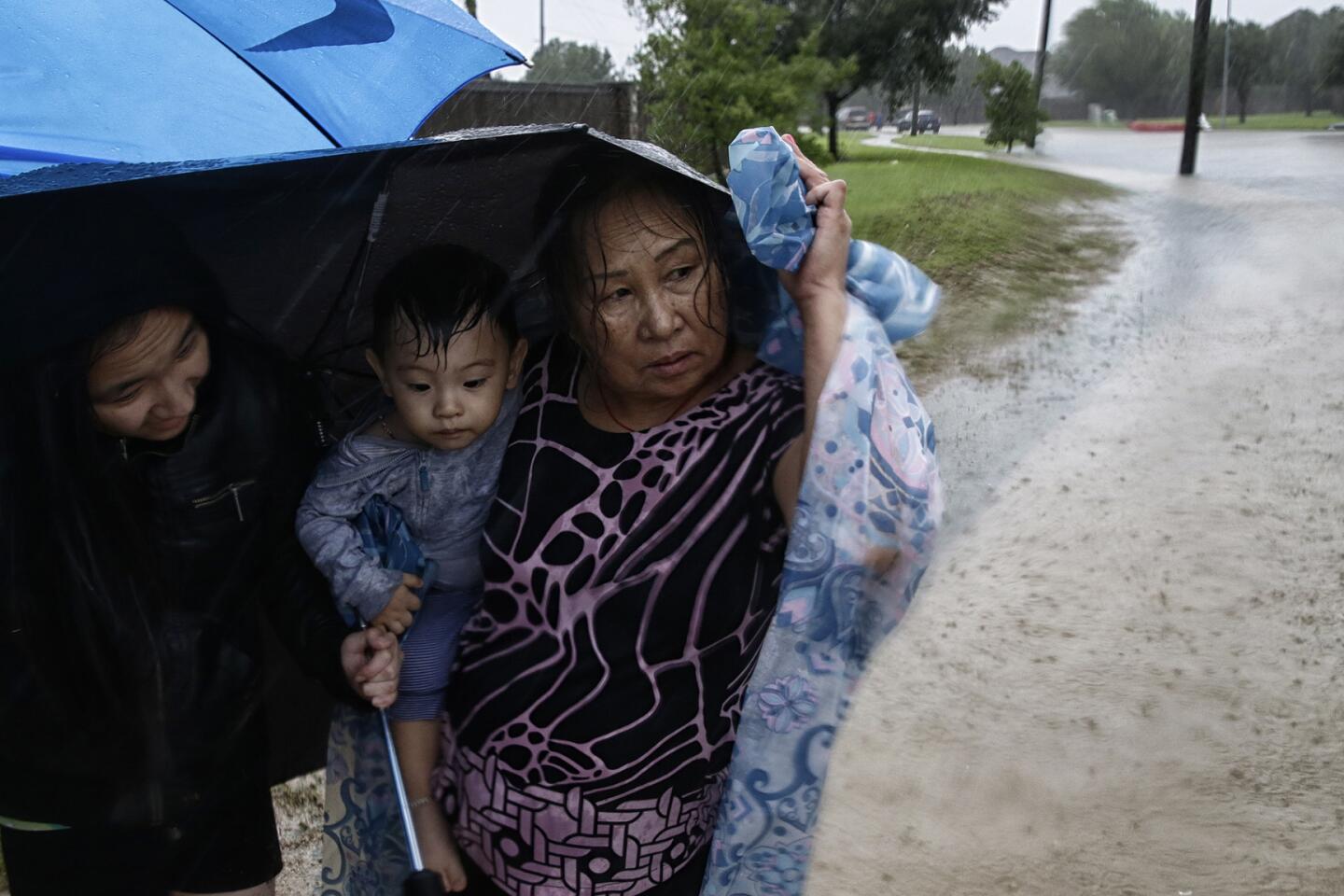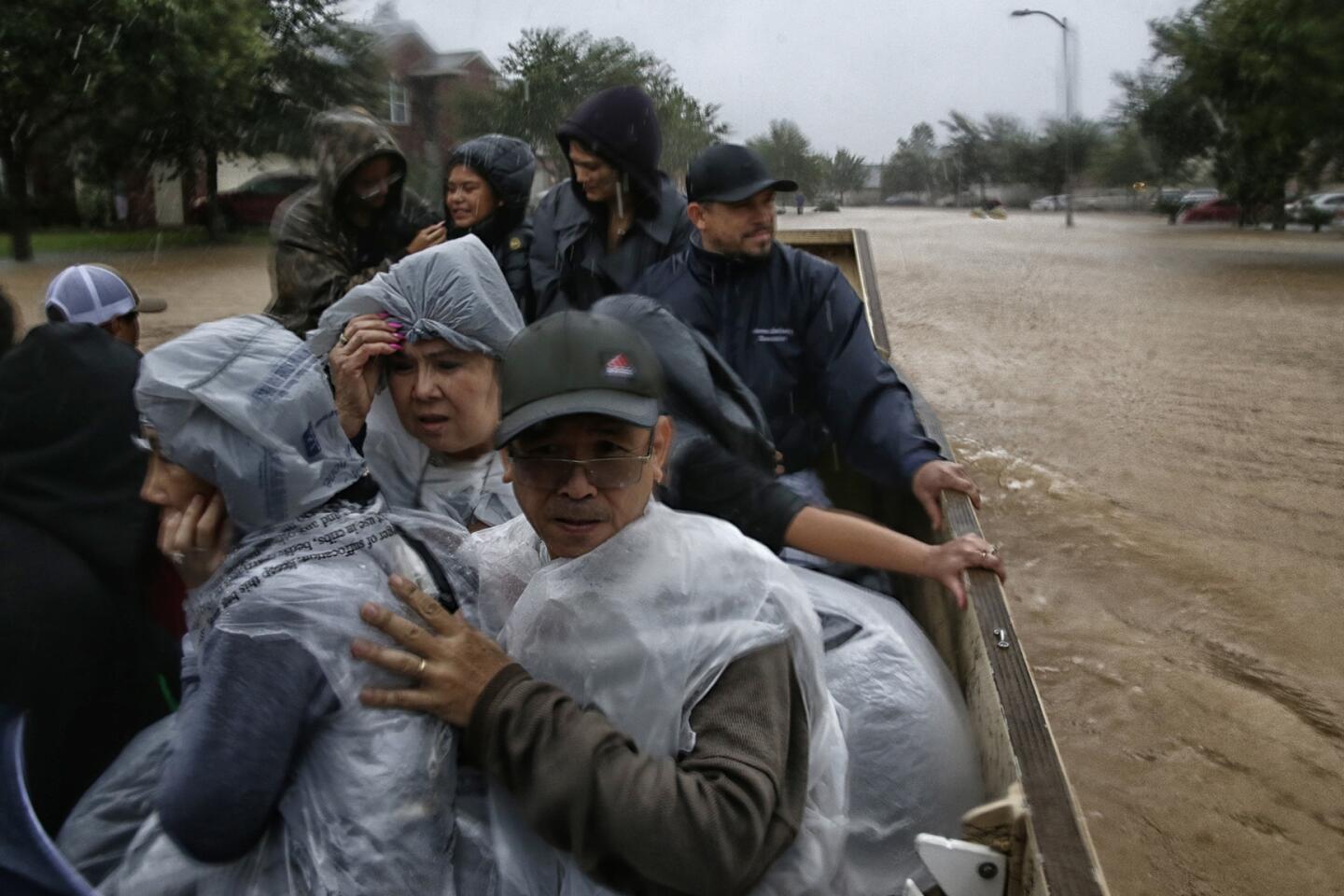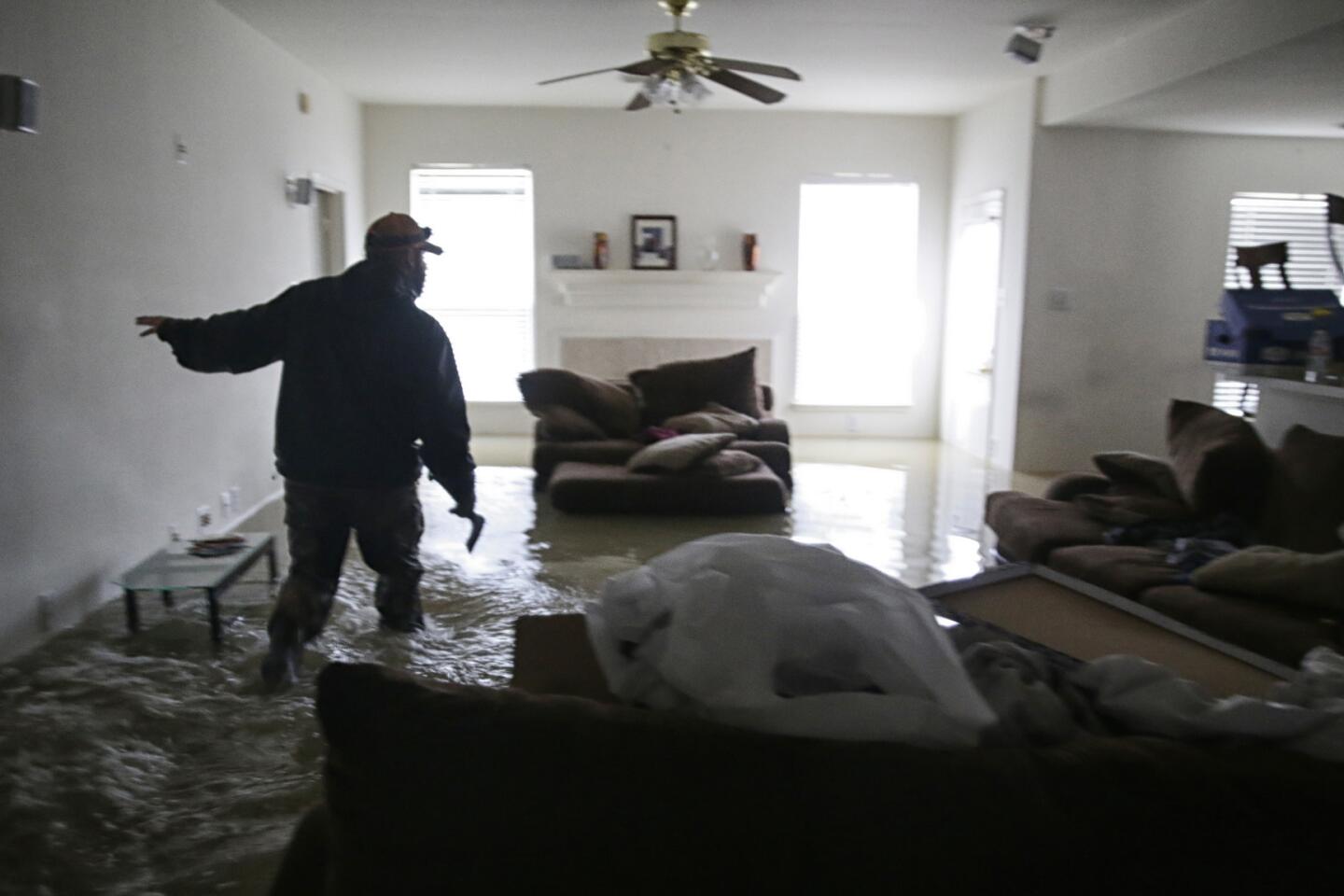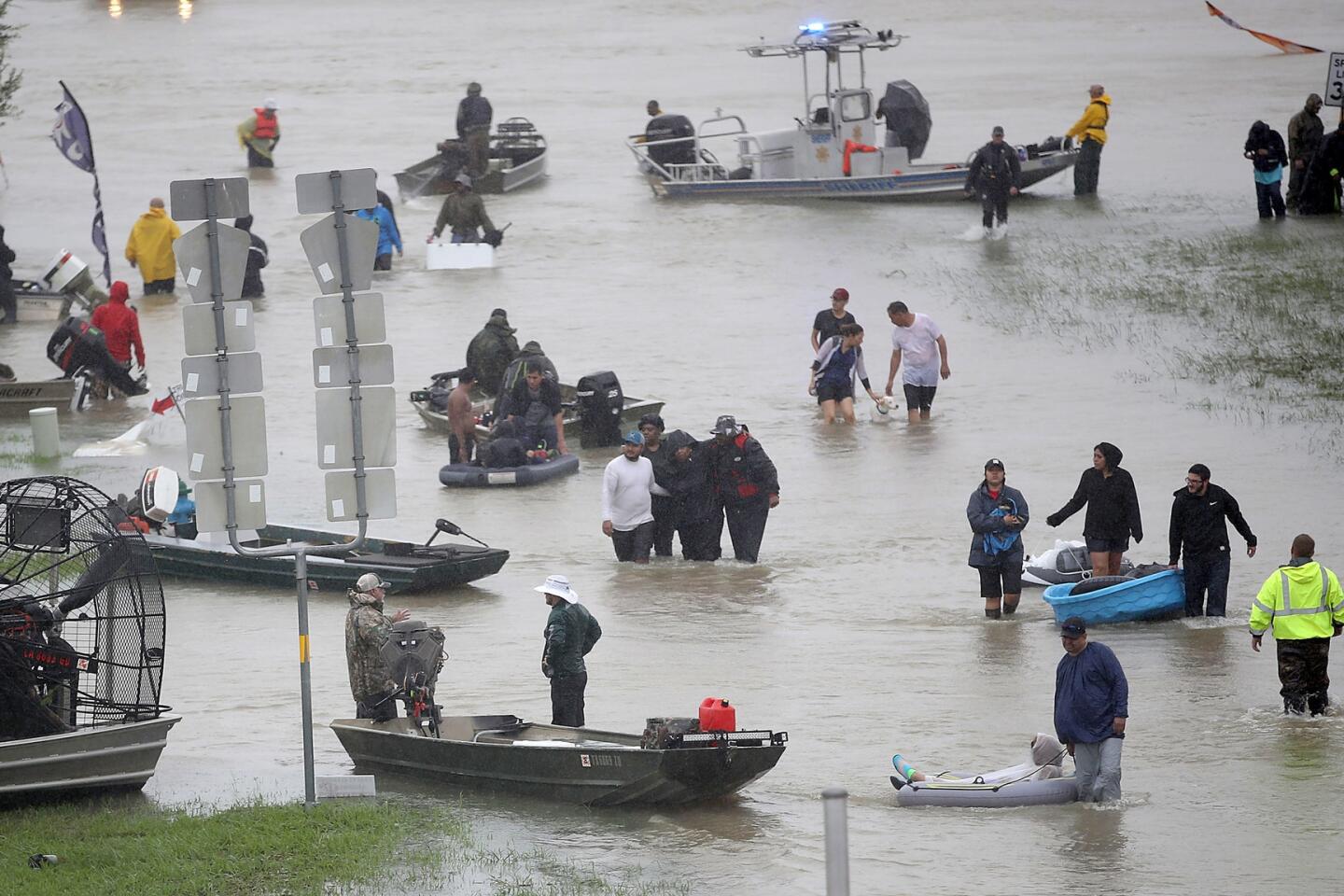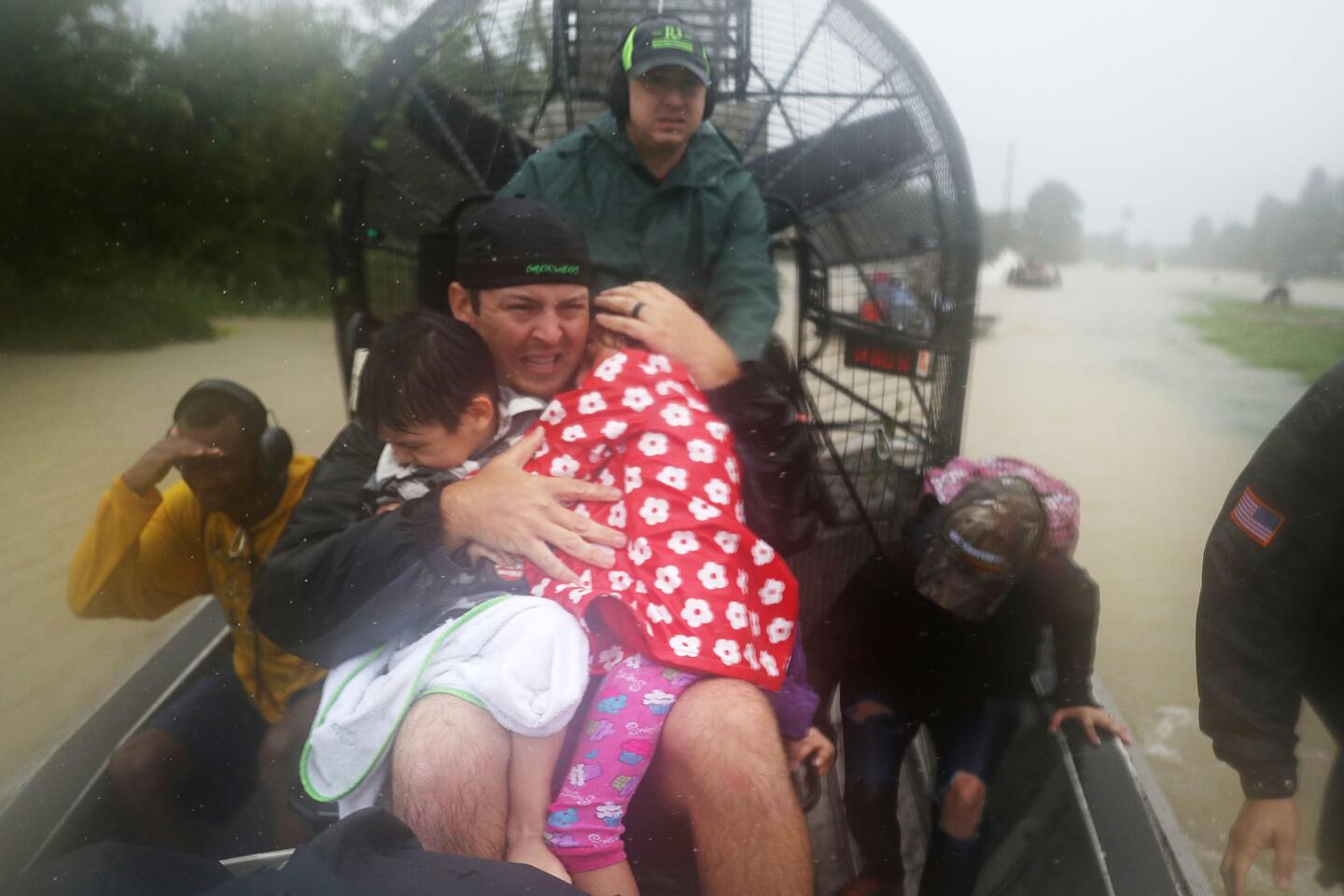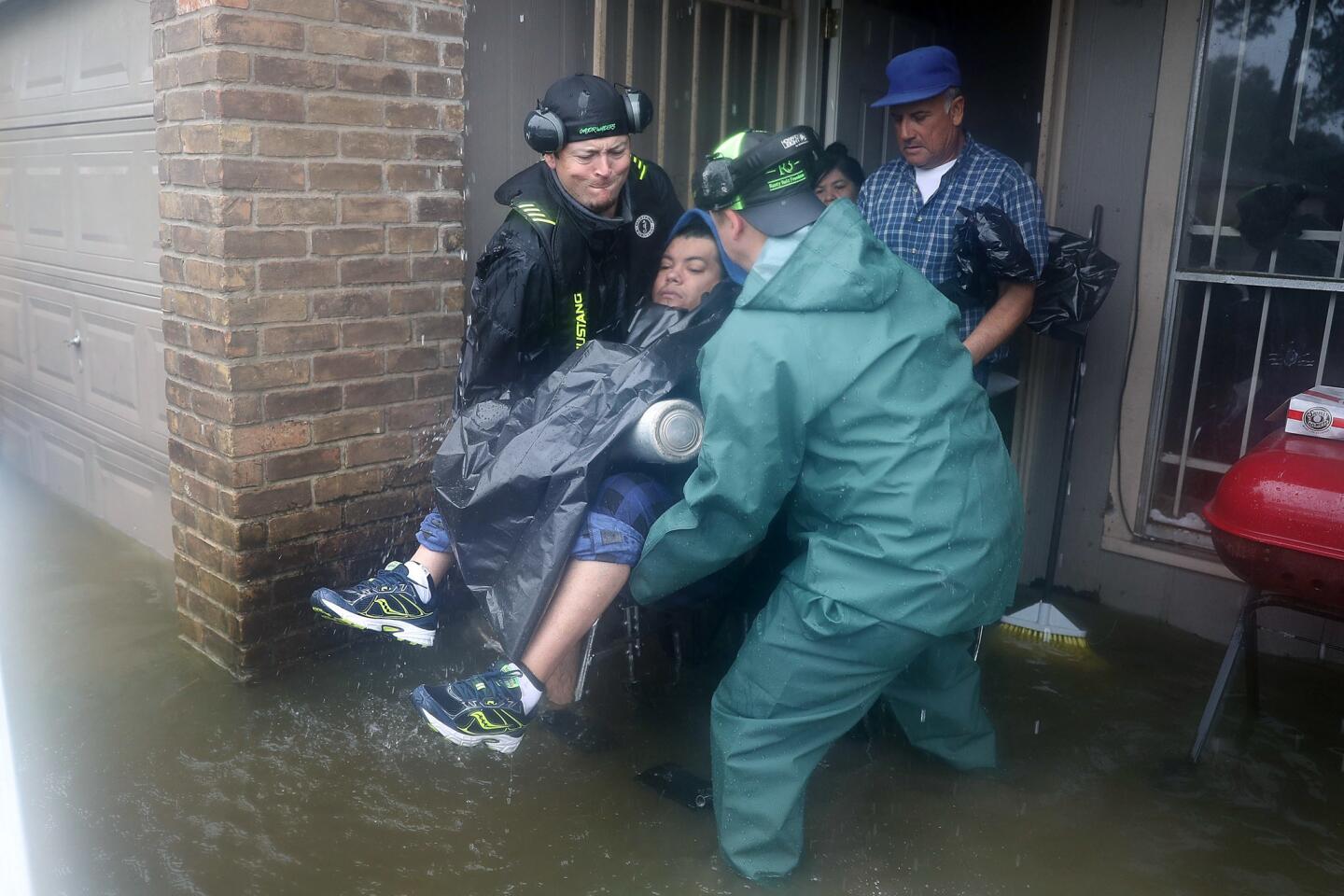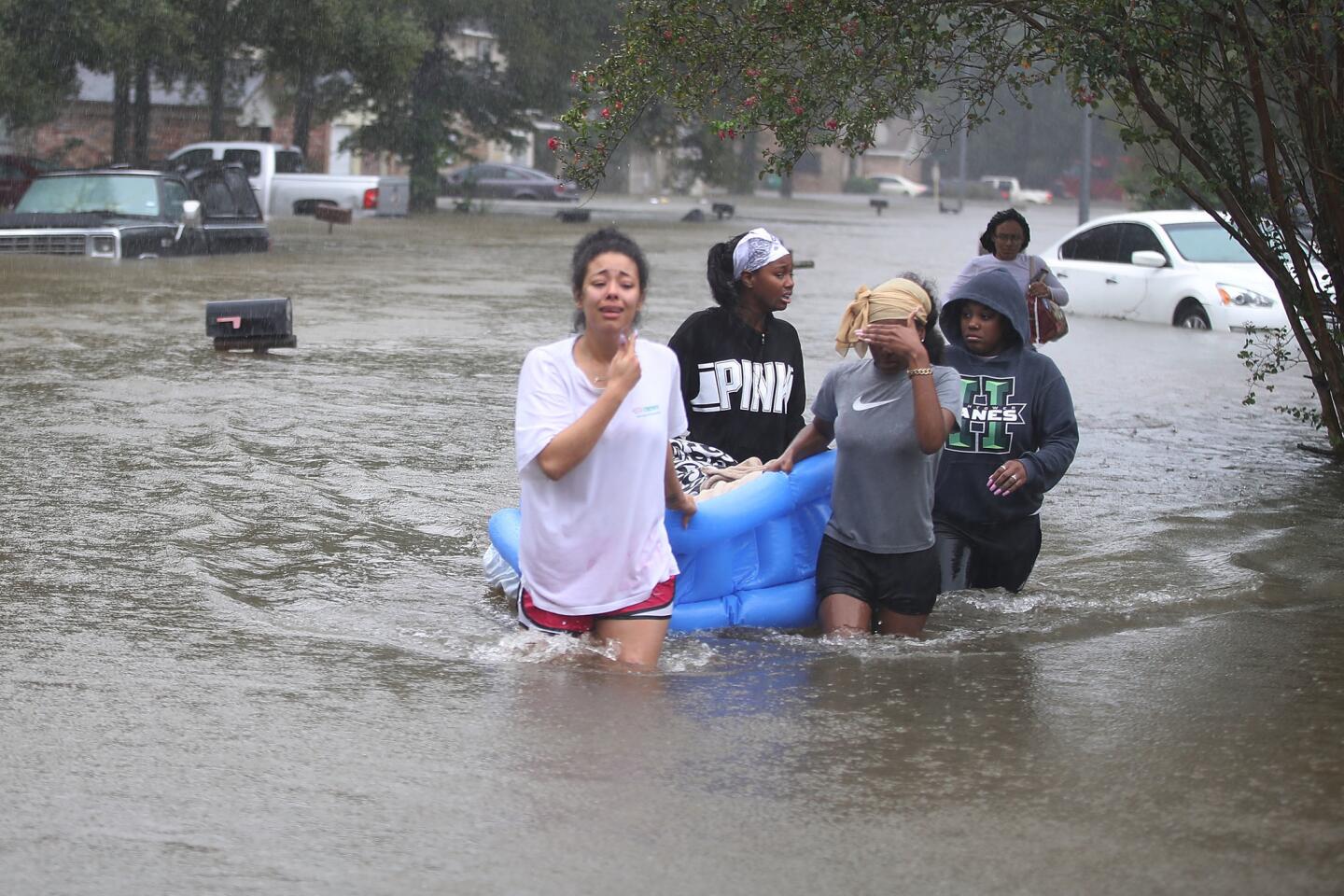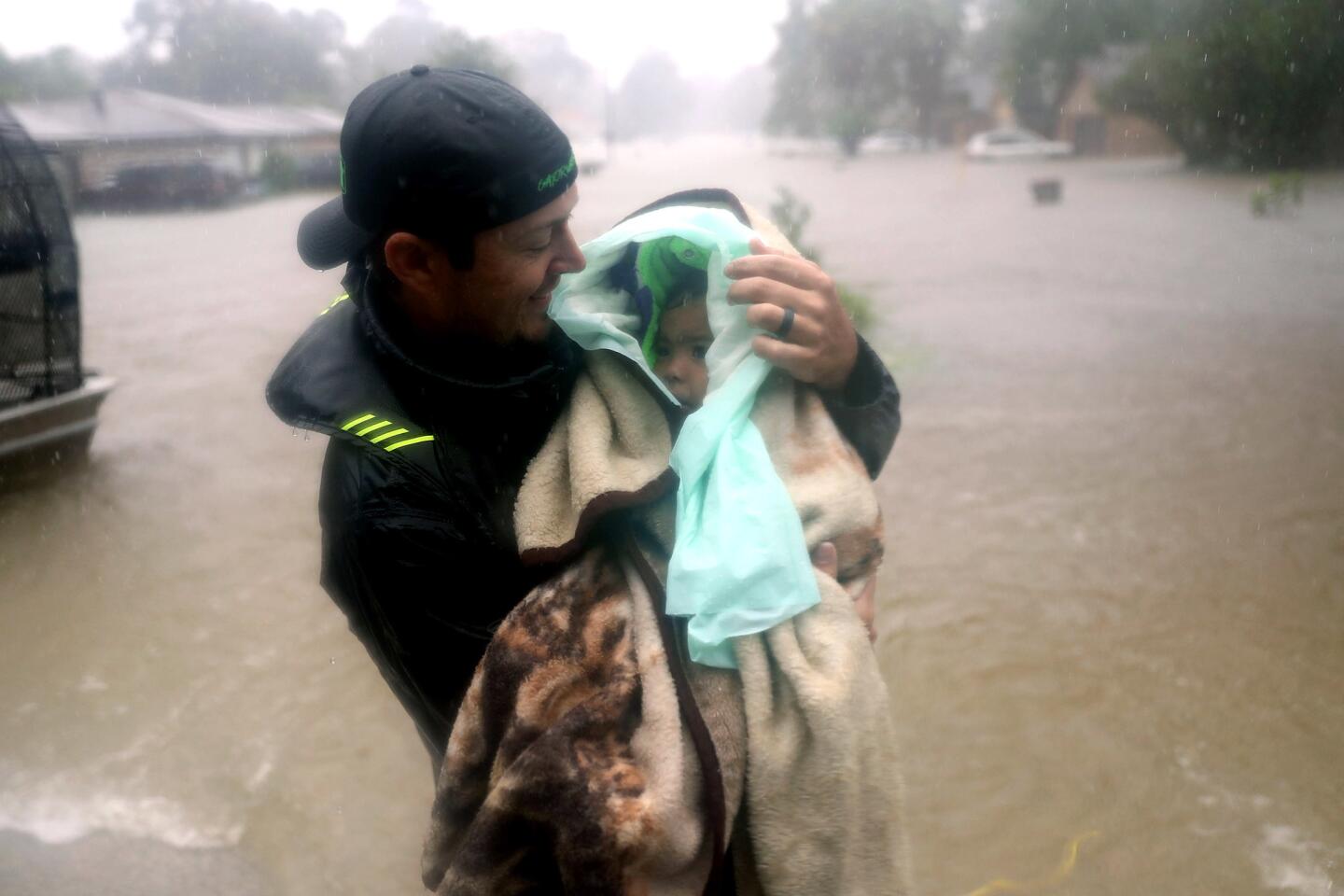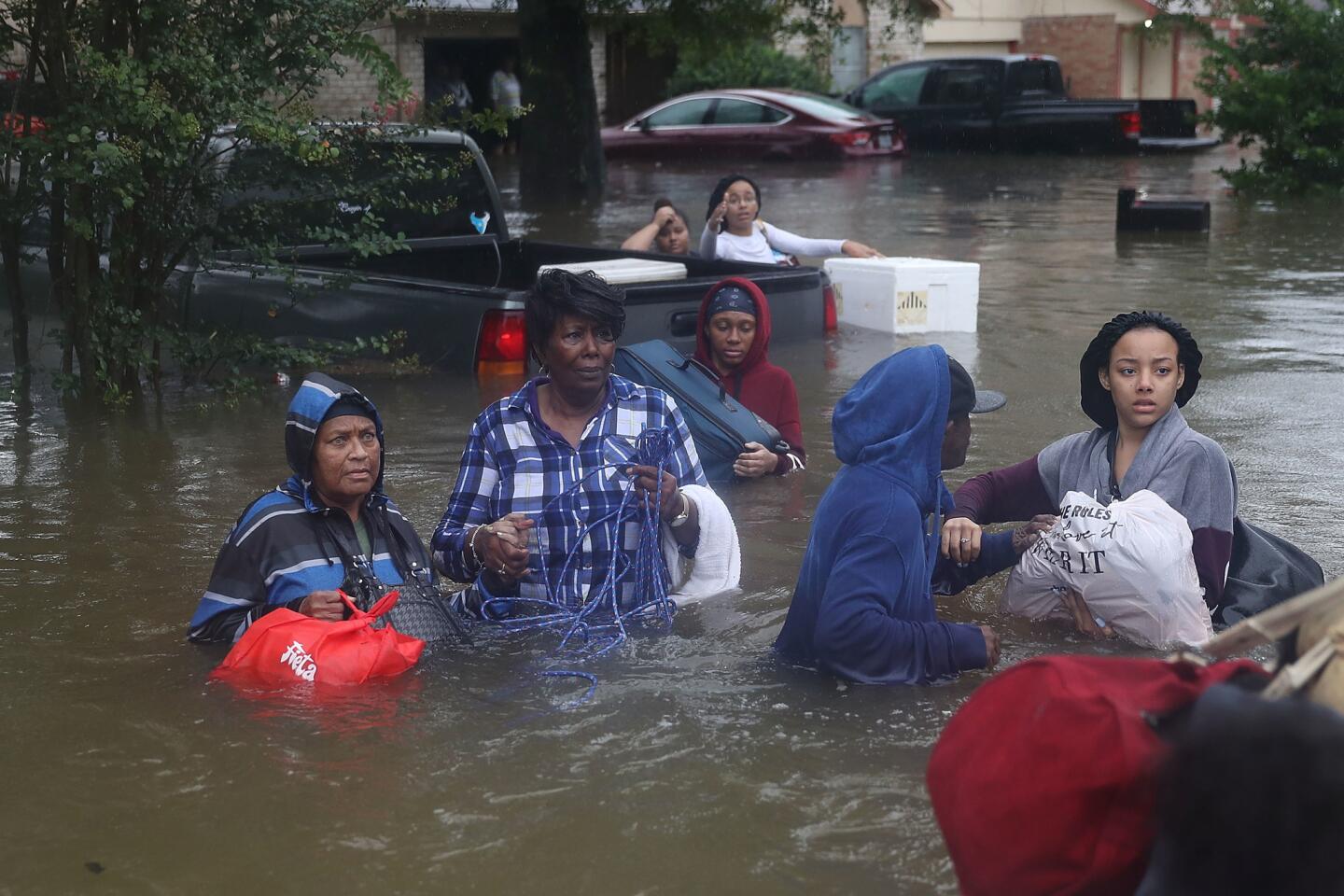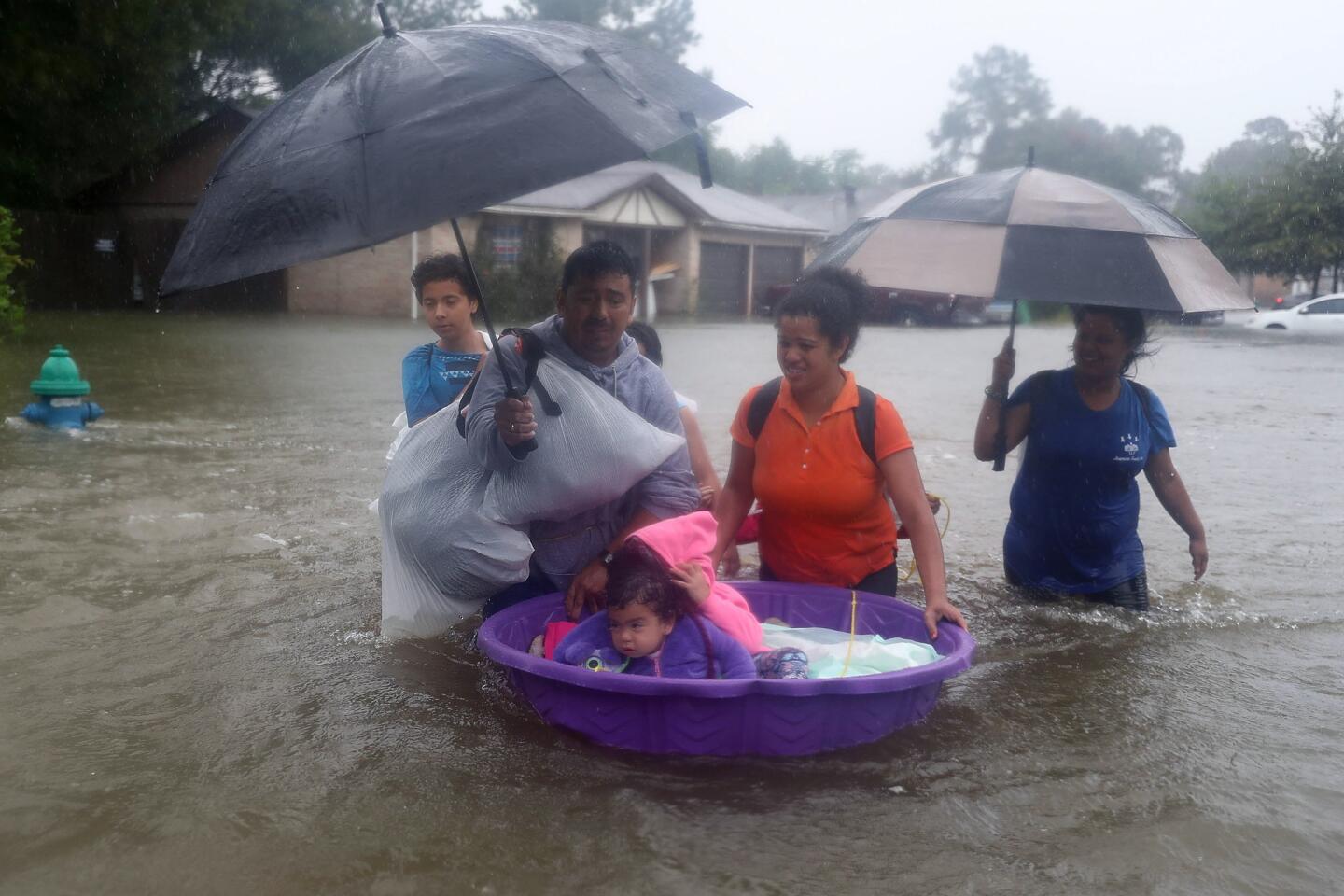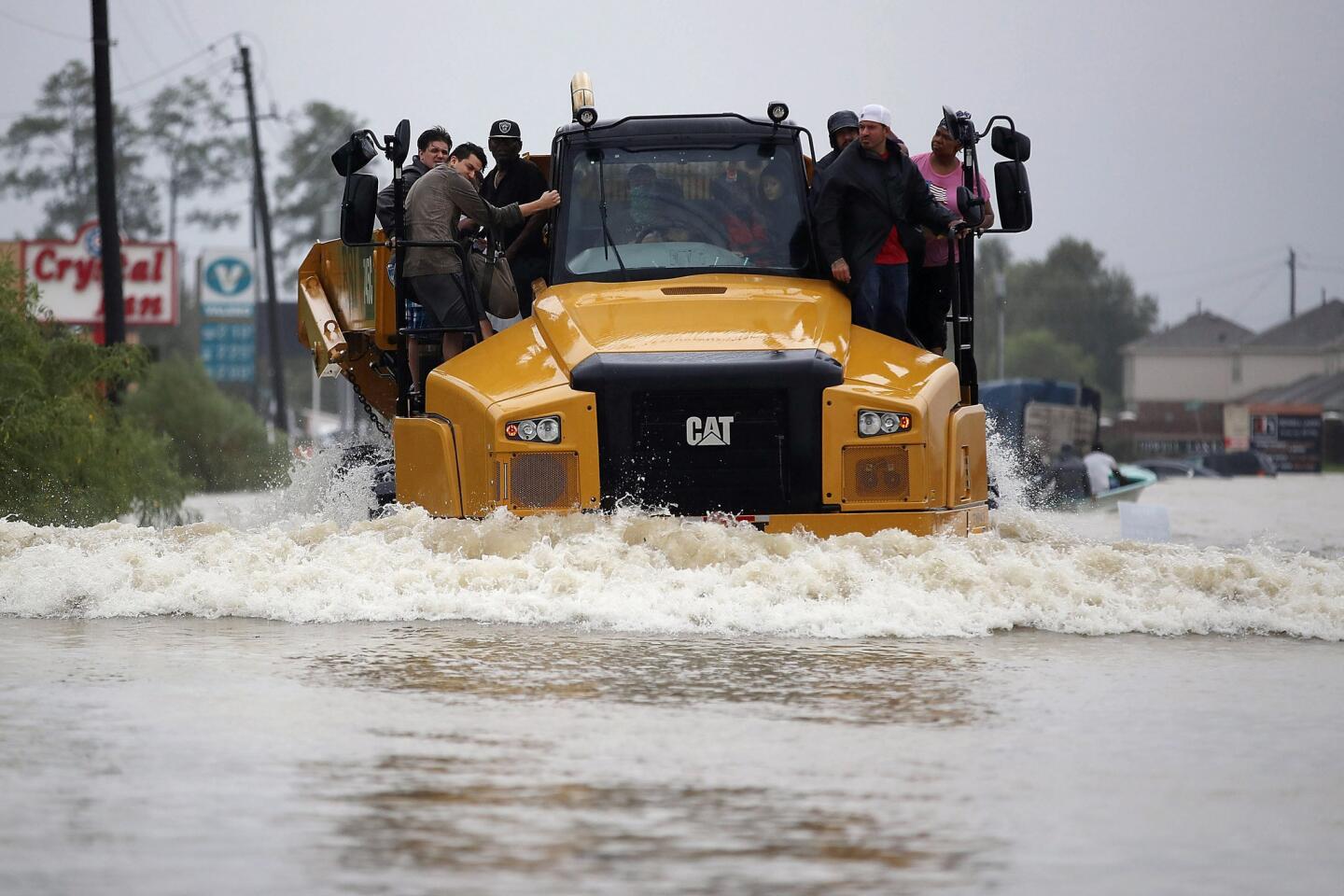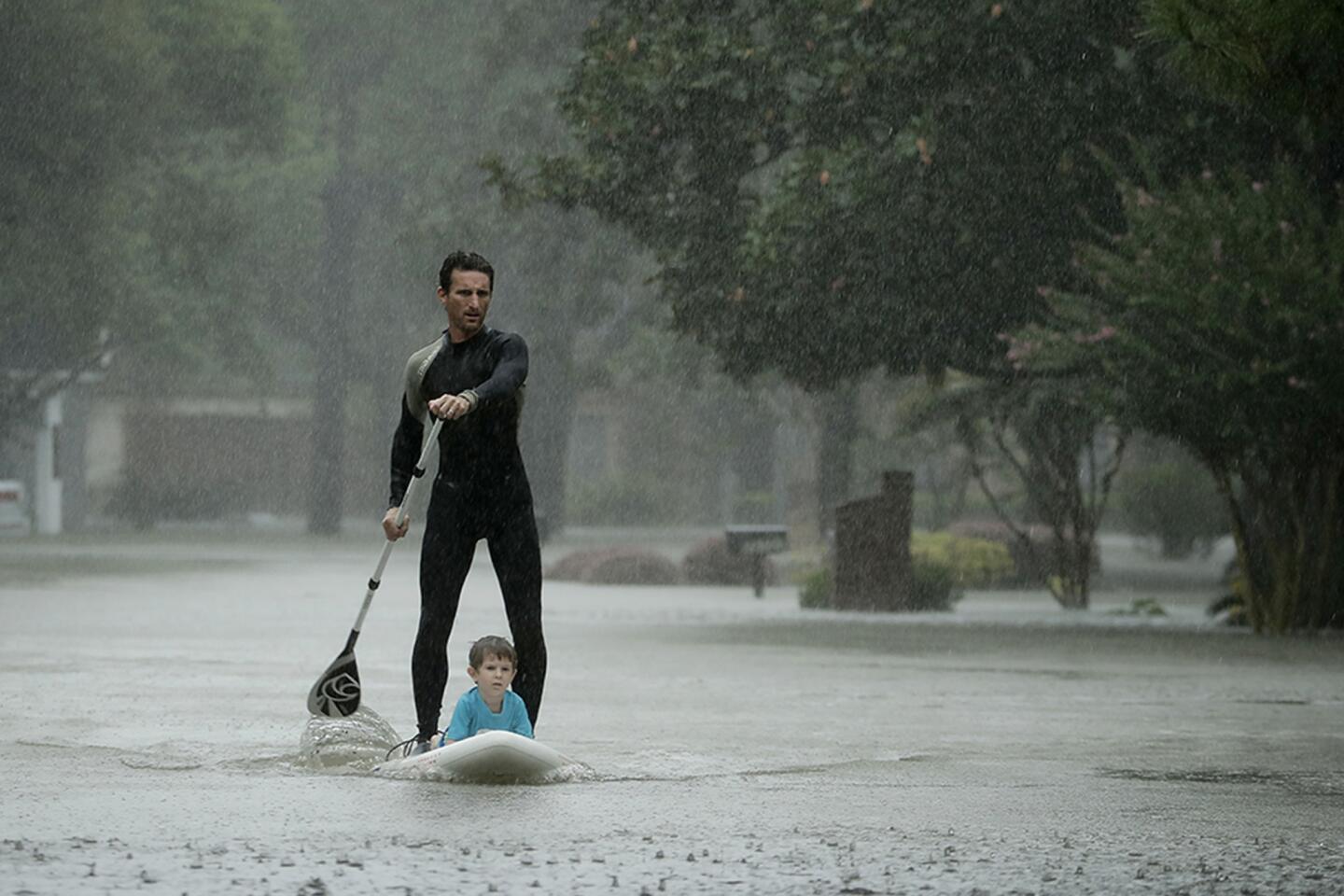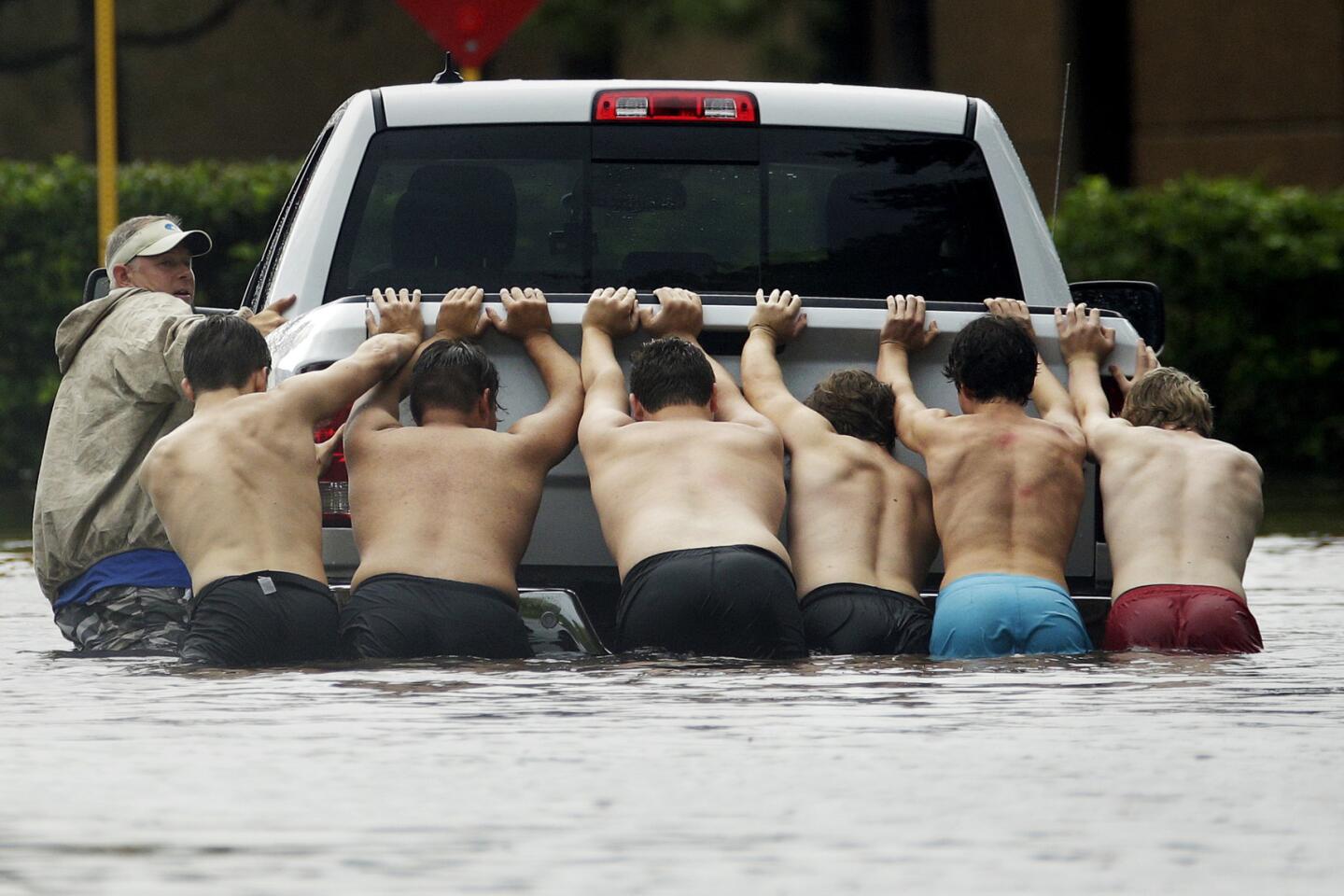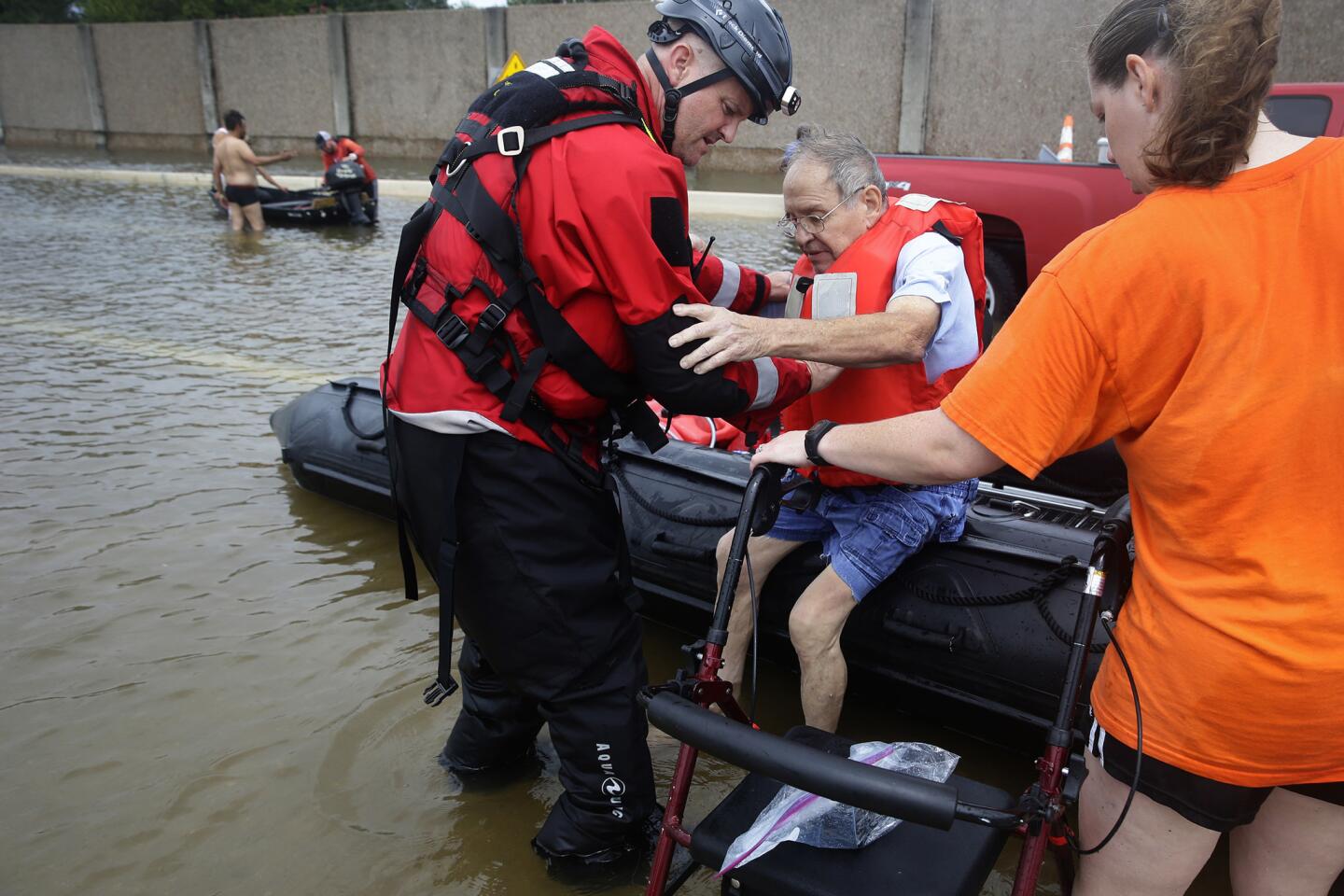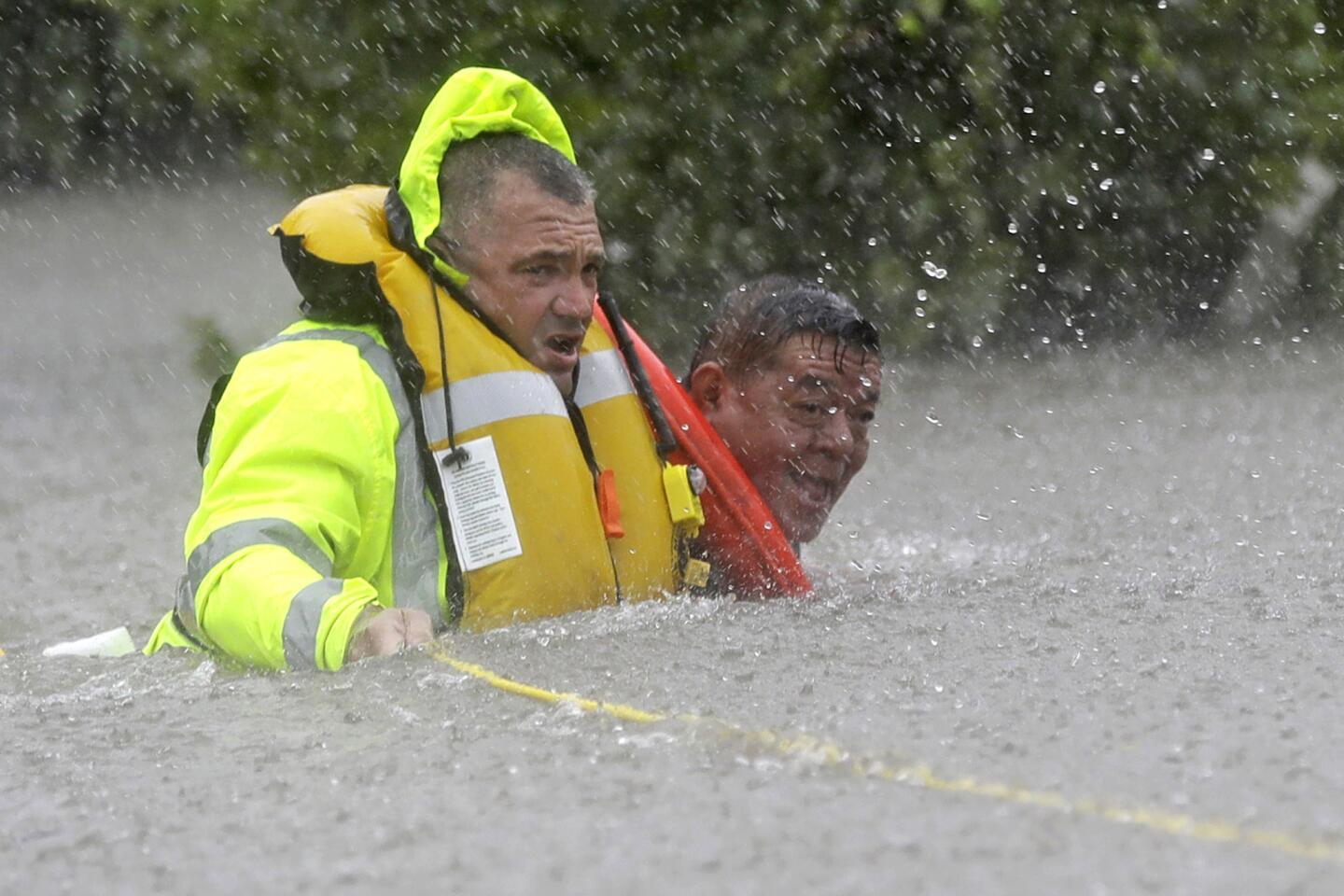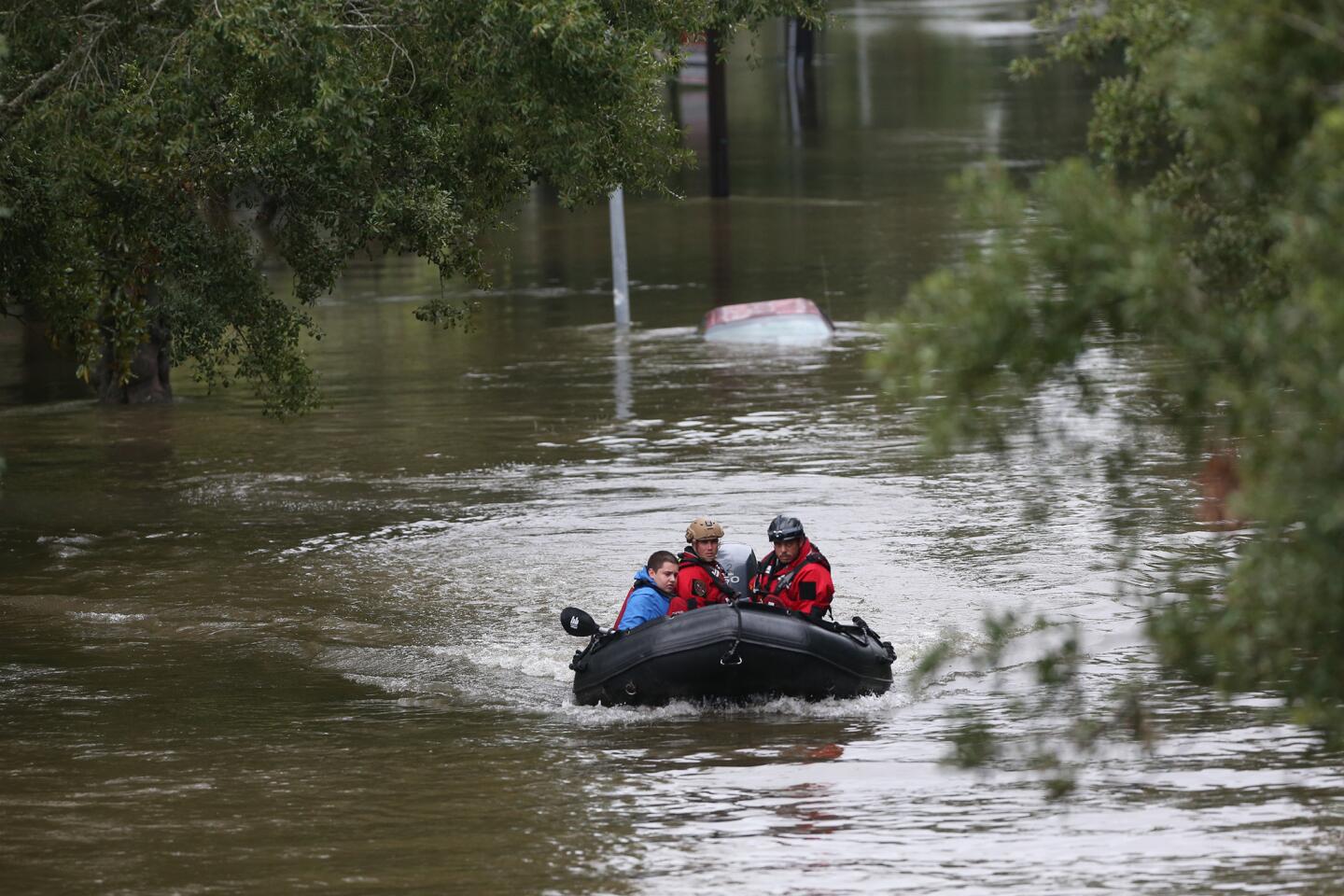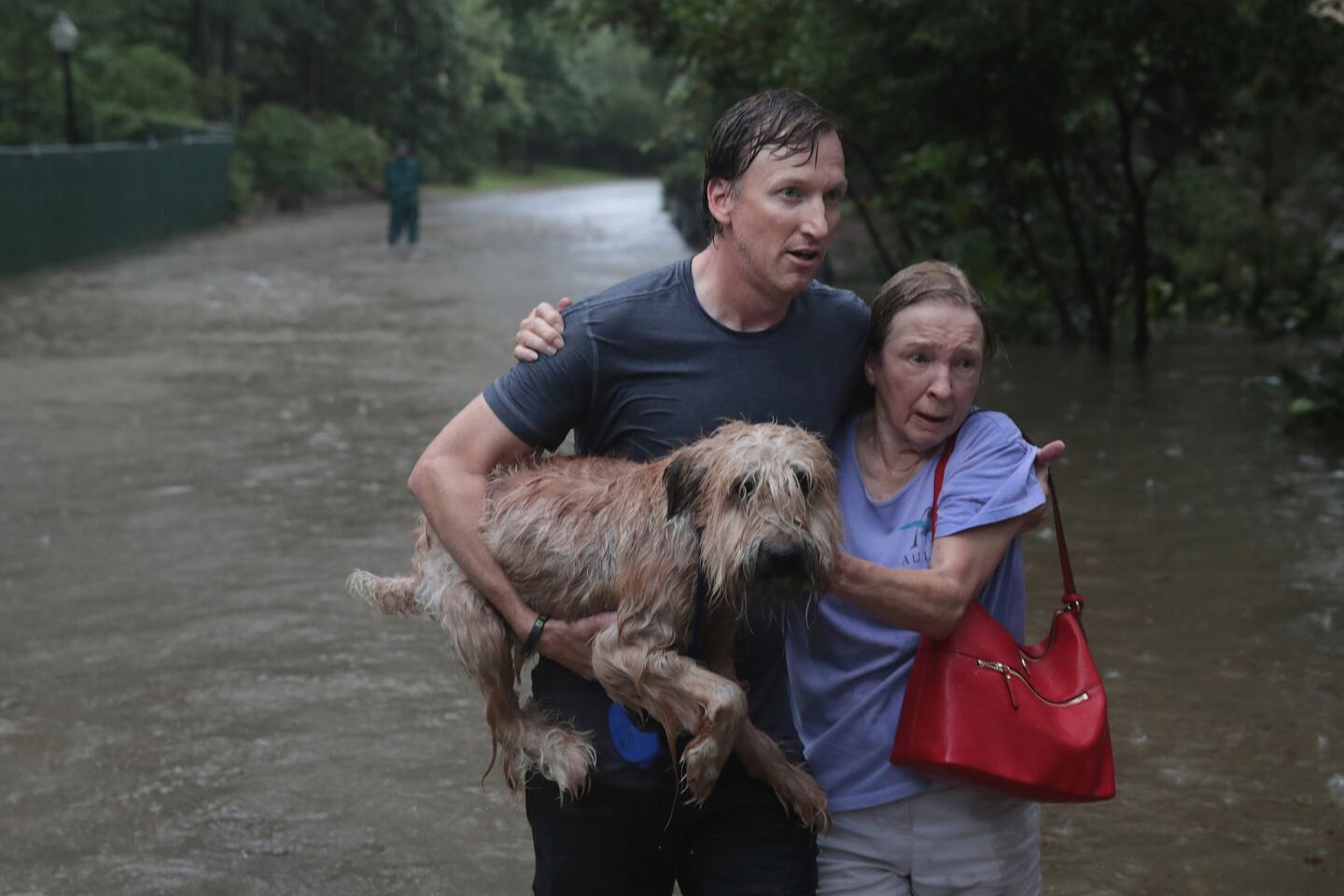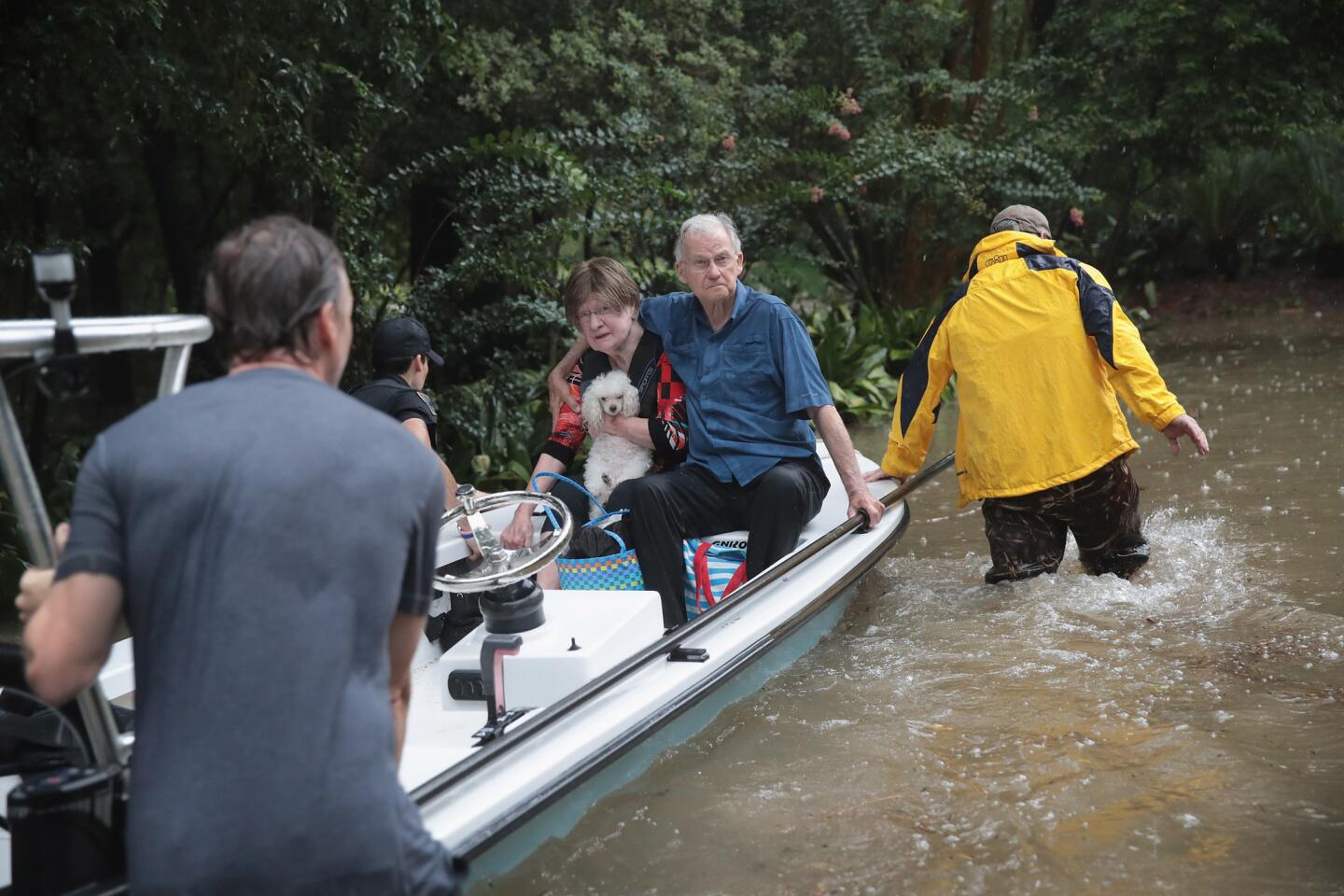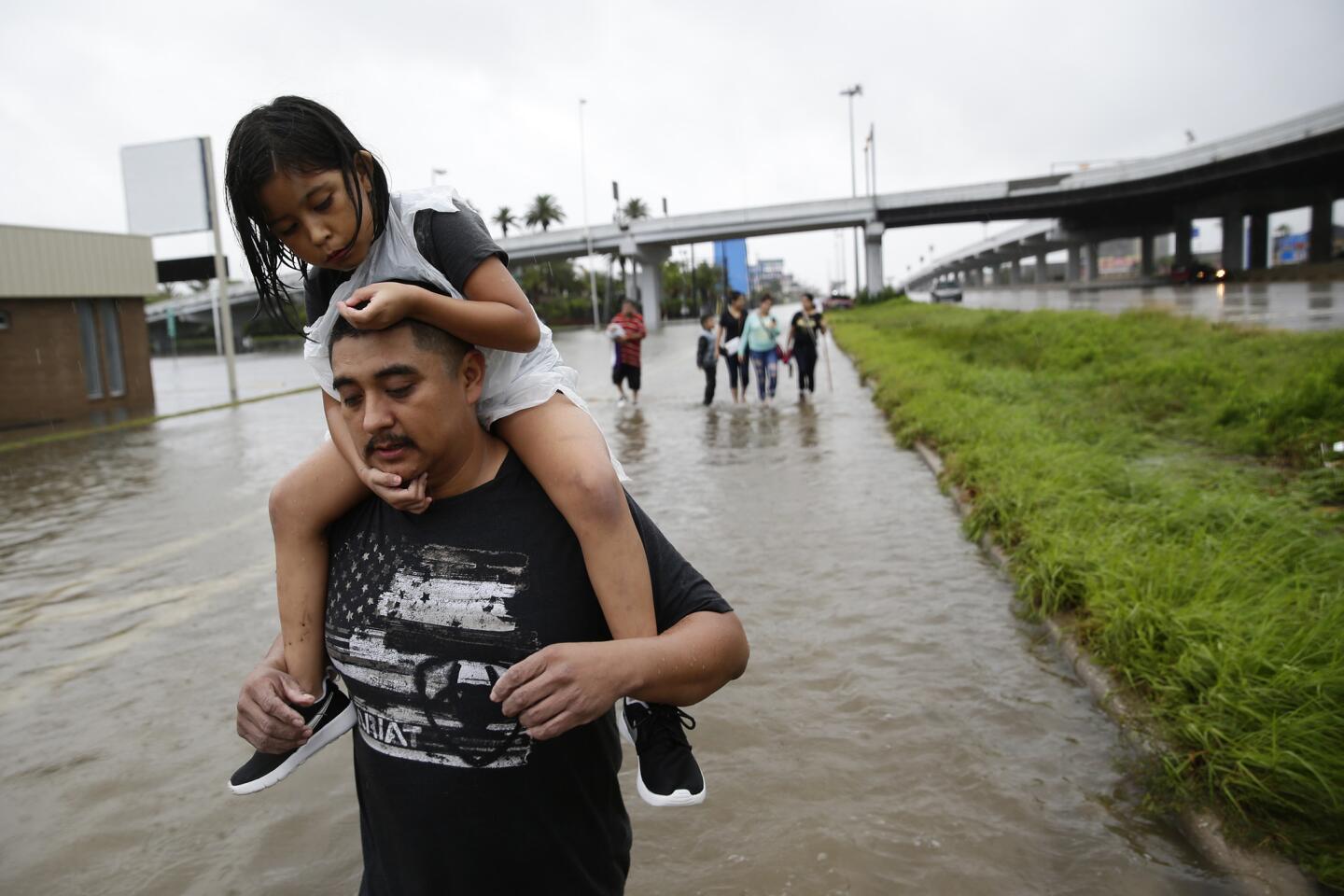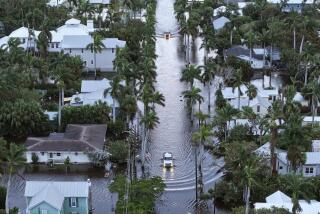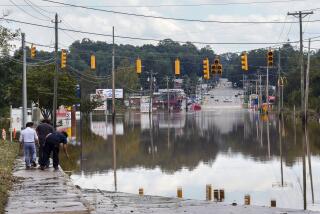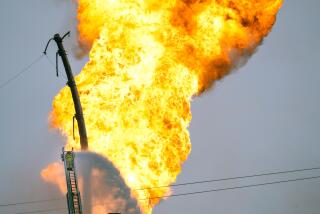Houston is inundated by a storm ‘beyond anything experienced before’
Reporting from HOUSTON — People across southeastern Texas scrambled to find shelter Sunday as Tropical Storm Harvey continued to drench the state, dropping up to 24 inches of rain on Houston in 24 hours and unleashing widespread flooding in one of the worst natural disasters in Texas history.
At least five people were reported dead, according to the National Weather Service in Houston, and authorities expect that number to climb as floodwaters recede.
With some areas bracing for 50 or more inches of rain — more rainfall than many Texas towns get in a year — the National Weather Service warned that “catastrophic” flooding in the nation’s fourth largest city was expected to worsen and could be “unprecedented.”
“Local rainfall amounts of 50 inches would exceed any previous Texas rainfall record,” the weather service said in a statement. “The breadth and intensity of this rainfall are beyond anything experienced before.”
More than 3,000 national and state guard troops were deployed to assist with rescue and recovery efforts Sunday, and the White House announced that President Trump plans to travel to the state on Tuesday.
At a Sunday evening news conference, Houston Mayor Sylvester Turner said that 911 operators had received 56,000 calls since 10 p.m. Saturday. Police and fire departments had received nearly 6,000 calls for rescues and rescued more than 1,000 people.
More than 20 helicopters flew across the city, identifying stranded residents and plucking them off roofs and highways.
“This is a storm that is testing the city of Houston,” Turner said earlier in the day. “I know for a fact that the city of Houston will rise to the occasion.”
Asked why there was no evacuation order — even in low-lying areas prone to flooding — Sylvester said the flooding was unprecedented and noted that the city was not in the direct line of the hurricane.
“So which neighborhood would you have to evacuate?” Turner said. “You literally cannot put 6.5 million [people] on the road. If you think the situation right now is bad — you give an order to evacuate, you are creating a nightmare.”
Across Houston, 911 calls went unanswered. Officials urged residents to be patient and call only if they found themselves in imminent danger.
By Sunday afternoon, Ben Taub Hospital, a 444-bed public facility that includes a trauma care unit, was being evacuated because of flooding problems in the basement that had disrupted power. Critical patients were being moved first.
The city’s two major airports — George Bush Intercontinental Airport and William P. Hobby Airport — were closed to commercial flights until further notice. Houston public schools announced that they were closing until Sept. 5.
With Task Force 1, the state’s urban search and rescue team, unable to enter huge swaths of the city, emergency officials appealed to the public to provide boats and high-water vehicles to assist search and rescue efforts.
“We requested boats — all the things that would normally happen in a well-planned response to an event like this — but they can’t get here,” Harris County Judge Ed Emmett said at an afternoon news briefing.
“We have always been known as a community where neighbors help neighbors,” he said. “To those of you who have boats and high water vehicles that can be used in neighborhoods to help move people out of harm’s way, we need your help. We need to get all these people moved by dark.”
Nearly two days after Harvey slammed into the Gulf Coast on Friday night as a powerful Category 4 hurricane, the full scope of devastation was unknown. Debris and floodwater covered roads across small towns and inner-city neighborhoods, in some cases blocking access for emergency crews.
In Houston, officials said police Saturday night found the body of a woman in the southwest area of the city. She is believed to have been trapped as she drove into high water and tried to get out of her vehicle. She was pronounced dead at the scene.
On the coast, where the eye of the hurricane made landfall about 10 p.m. CDT Friday, emergency officials were still trying to get into blocked areas to assess the damage and conduct search and rescue.
William “Brock” Long, administrator of the Federal Emergency Management Agency, said that although Houston was taking the brunt of the catastrophic rainfall, it was important to remember that “there are many communities inside the state of Texas that are hurting.”
Speaking on CNN’s “State of the Union,” Long said FEMA was prepared to be in Texas “for years,” adding: “This disaster recovery — this disaster — is going to be a landmark event.… We’re setting up and gearing up for the next couple of years.”
Throughout the weekend, news spread of possible storm-related fatalities. In La Marque, a small city 38 miles southeast of Houston, police reported that the body of a 52-year-old homeless man was found Sunday morning at a Wal-Mart parking lot that had been engulfed in high water.
“At this time it is unknown if the subject passed away from health conditions or due to drowning,” the La Marque Police Department said in a statement.
Local reports were at times contradictory. Roy Laird, assistant chief with the Rockport Volunteer Fire Department, said Saturday that three people were dead in Aransas County. Charles Wax, the mayor of Rockport, a small fishing town about 30 miles northeast of Corpus Christi, said Sunday that only one death had been confirmed across the county.
“It’s bad and it’s not getting better as the rain is still continuing,” Wax said Sunday morning, noting that the City Hall is under 2½ feet of water and the county courthouse is severely damaged. “All over, the city is devastated.”
He urged residents who had evacuated not to come back to the city.
“Our residents are still in extreme danger,” he said. “The storm came in from the sea, and now the flooding is going to come down from the inland areas.”
Trump tweeted Sunday morning that he would visit Texas “as soon as that trip can be made without causing disruption,” which the White House later said would be Tuesday.
The state’s Republican governor, Greg Abbott, praised the response of federal authorities to the deadly storm, saying Texas was getting “absolutely everything we need” from the White House.
“We could not be more appreciative of what the federal government has done, from the president on down,” Abbott said on ABC’s “This Week.”
Appearing on the same program, Tom Bossert, the White House Homeland Security advisor, said the president’s travel would be planned so as not to interfere with lifesaving activity.
“The president wants to go to show his support,” Bossert said. “He doesn’t want to go to get in the way, and he’s been very clear about that.”
In Houston, a sprawling metropolitan area with a population of about 6.5 million, the rain flooded vast areas, turning city neighborhoods and low-lying business centers into lakes overnight.
Accidents piled up as people drove the wrong way on the freeway that rings the city. Along the Sam Houston tollway in southeast Houston, construction vehicles, trucks and cars were submerged beneath brown waters that swallowed up side roads and blocked the paths of drivers.
On one partly submerged side road, a group of young men pushed an old blue truck through waters that rose to their thighs, then hopped into the truck’s bed in the rain and made a successful escape.
A column of cars behind them was not so lucky. Vehicles were marooned on a slightly elevated stretch of road with the path behind them and in front blocked by floodwaters and littered with the cars of other drivers who had tried and failed to escape.
“I barely squeezed through the first time,” David Martinez said as he sat in his black luxury sedan, the wipers running, the car parked, referring to the flooding behind him. “My plan is to stay here and let this water recede.”
Some traversed the city on foot.
For more than three hours, three generations of the Castro clan made a wretched trek through their flooded city.
They had been waiting out the storm Saturday in Yeselia Castro’s home, but then the waters began pouring in. They tried putting the children on tables and on the bed to keep out of the water. Their brother-in-law, Jesus, even got on the roof.
“I called 911 like nine times, but nobody came,” Yeselia Castro said.
Police boats and a helicopter passed through but didn’t stop. Finally, the family decided to flee on their own out the back of the property, where a creek had swollen into a river — a dangerous trip.
“None of us can swim,” Rosalinda, Yeselia’s sister, said.
So they began their long trek to Rosalinda’s house, several miles away, sometimes through flooded roads and sidewalks. Yeselia had only one rain boot; the other had been sucked away by water as she escaped, so she was making the trek barefoot.
Rosalinda was also barefoot. She had given her sandals to her mother, Ofelia, who swaddled a Chihuahua, Niña, in a sweater wrapped with a plastic bag to keep the pet out the rain.
The family had only one umbrella among them. Soaking wet, they held hands as they walked, cars passing them on the inundated roads along the Gulf Freeway.
In a stream of public safety messages on social media, officials urged residents escaping rising water to climb to their roofs, not their attics, and to carry axes and hammers.
“There is flooding all over this city,” Houston Police Chief Art Acevedo said in a livestream video early Sunday morning, noting the rain was likely to continue for hours. “Please, please, please stay home.”
In the darkness, Acevedo waded across a flooded parking lot at an apartment complex near Greens Bayou.
“Hey, is there anybody up there who wants to go?” he hollered.
Emergency responders carrying flashlights were moving scores of residents — including the elderly and small children — to safety by boat, he said, but some residents on the second floor decided to stay.
“Look how high this is,” Acevedo said as his camera scanned the flooded parking lot. I’m 6 foot tall and I’m waist deep.”
A little later, he sighed.
“It breaks your heart for our city and our state,” he said. “But it’s Texas. We’ll get through it.”
In neighboring Louisiana, Gov. John Bel Edwards urged residents to remain vigilant as forecasts showed the storm system bringing heavy rainfall, and potentially life-threatening flooding, to Louisiana over the next 48 hours. Just a few inches of rain could cause severe challenges in New Orleans, which is still recovering from flooding after thunderstorms earlier this month overwhelmed the city’s drainage system.
At 7 p.m., the National Hurricane Center reported that Harvey was about 15 miles northeast of Victoria, drifting slowly southeast at about 3 mph. On Monday, it is expected to move off the middle Texas coast and meander just offshore through Monday night.
“It’s critically important for the people of Louisiana, particularly those in Southwest Louisiana, to recognize that we are not out of the woods,” he said in a statement. “We are closely monitoring this storm system and coordinating with our local and federal partners.”
Edwards said he had dispatched emergency personnel to Texas to assist search and rescue efforts.
“Nearly 12 years ago, Texans opened their doors to the people of Louisiana when Hurricane Katrina devastated our state,” Edwards said. “We will do nothing less to support the people of Texas in any way that we can as they respond and recover from Hurricane Harvey.”
As houses, apartments and a nursing home became submerged in water, residents posted photos from their roofs online, pleading for the “Cajun Navy” to come rescue them. Volunteers used apps, Google documents and crowdfunding to respond.
Tommy Wade, commander of Cajun Coast Search and Rescue, a non-profit formed in response to massive flooding in western Louisiana last summer, drove toward Houston on Sunday with a team of 36 volunteers and an 18-wheeler loaded with boats, a high-water rescue vehicle and other supplies.
“This is what we do,” Wade said as he awaited orders from local officials outside the emergency operations center in Dickinson, Texas, a hard-hit area 30 miles southeast of Houston in Galveston County. “We’re dedicated to saving human life.”
Twitter: @mattdpearce
Jarvie is a special correspondent.
Times staff writer Pearce reported from Houston and special correspondent Jarvie from Atlanta. Times photographer Robert Gauthier in Houston and Times staff writers Laura J. Nelson in Los Angeles, Molly Hennessy-Fiske in Dallas and Laura King in Washington contributed to this report.
UPDATES:
5:35 p.m.: This article has been updated with the mayor’s news conference.
3:20 p.m.: This article has been updated with Trump plans, national and state guard deployed, “Cajun Navy” arriving, other details.
1:30 p.m.: This article has been updated with new death toll, other details.
12:45 p.m.: This article has been updated with latest National Weather Service statement, search and rescue team unable to enter parts of city, other details.
11:15 a.m.: This article has been updated with hospital evacuation, situation in Louisiana.
10:15 a.m.: This article has been updated with more remarks from mayor, details on evacuees.
9 a.m.: This article has been updated with comments by Turner, Abbot, Long, other details.
8:15 a.m.: This article has been updated throughout with staff reporting.
This article was originally posted at 7:30 a.m.
More to Read
Sign up for Essential California
The most important California stories and recommendations in your inbox every morning.
You may occasionally receive promotional content from the Los Angeles Times.
